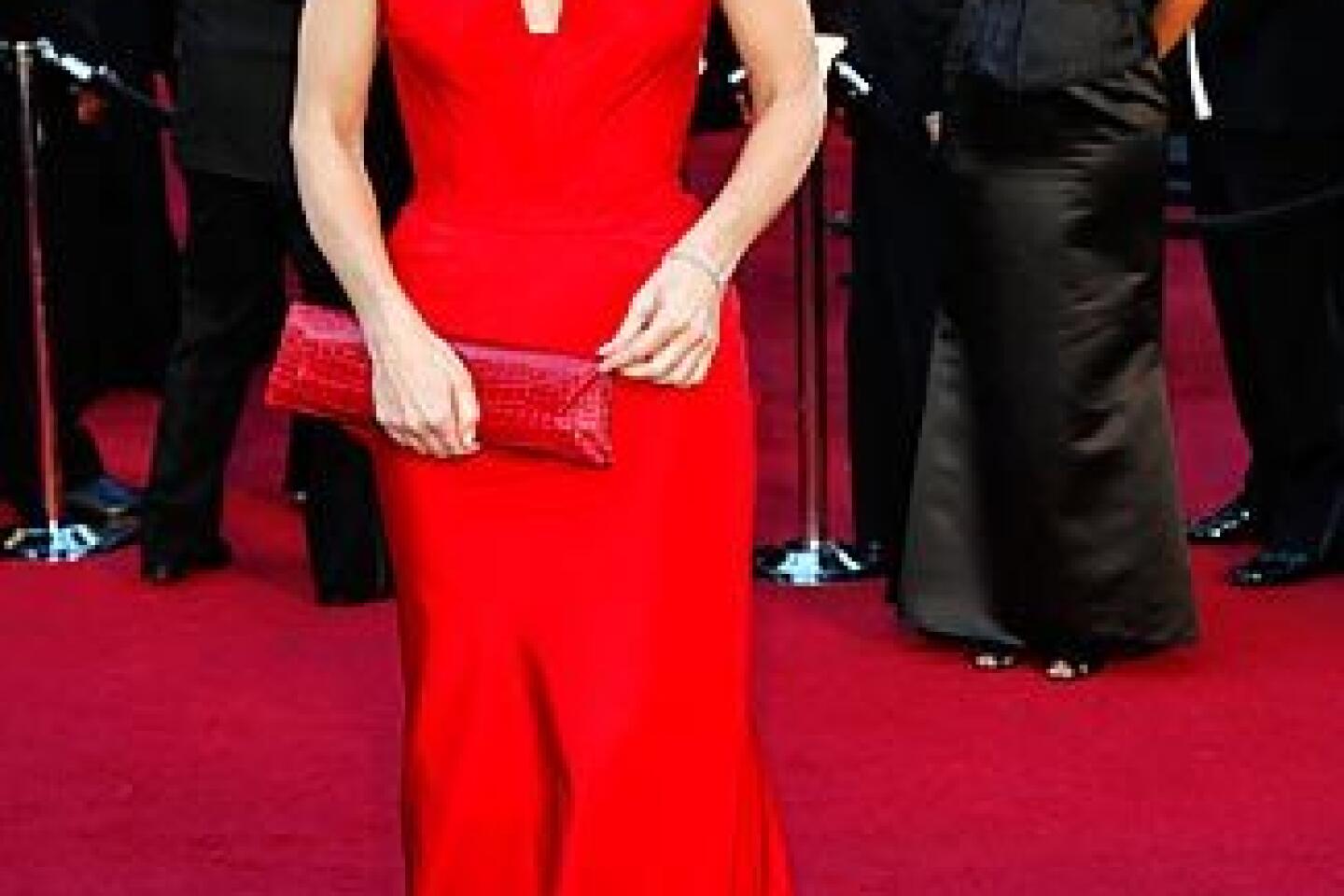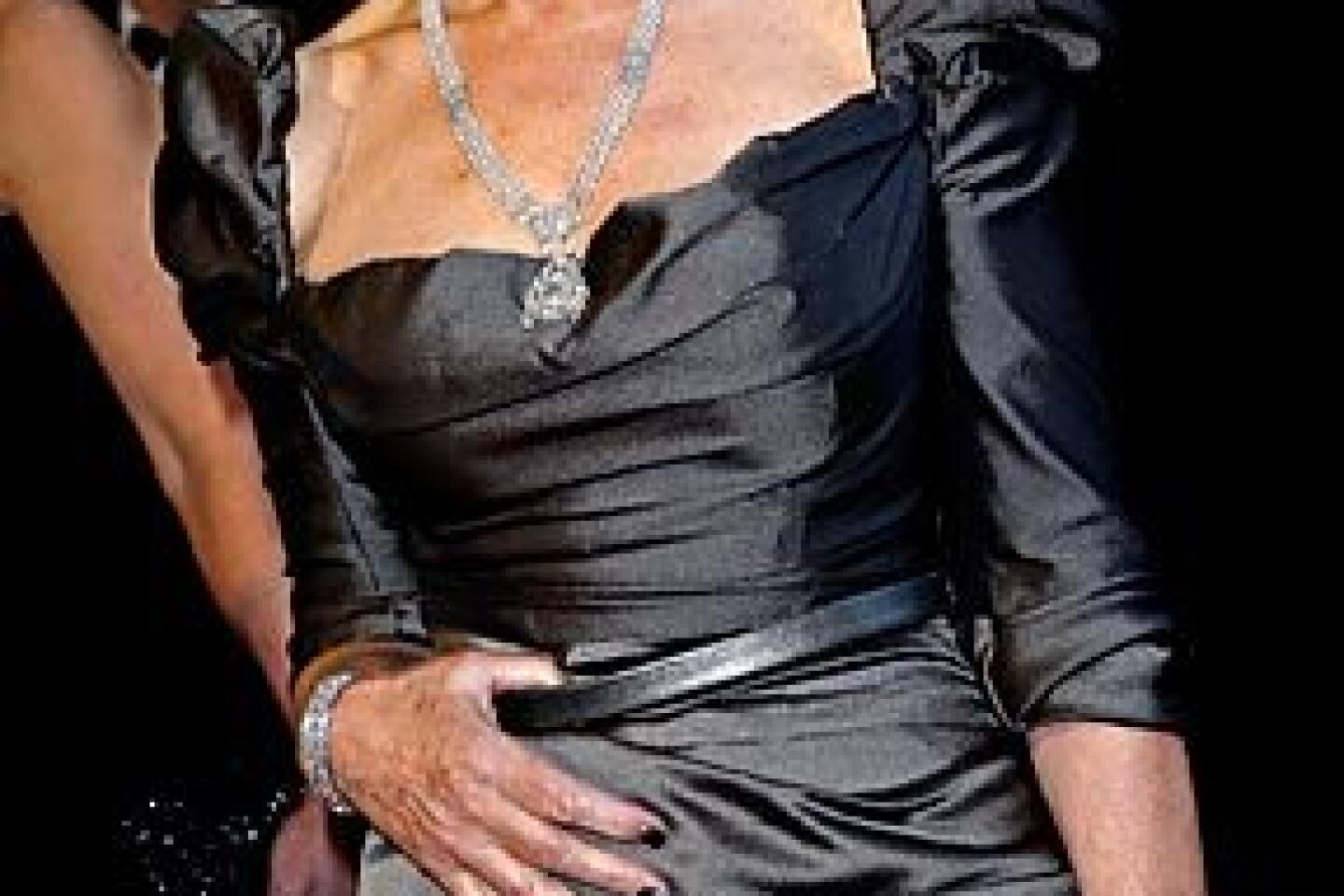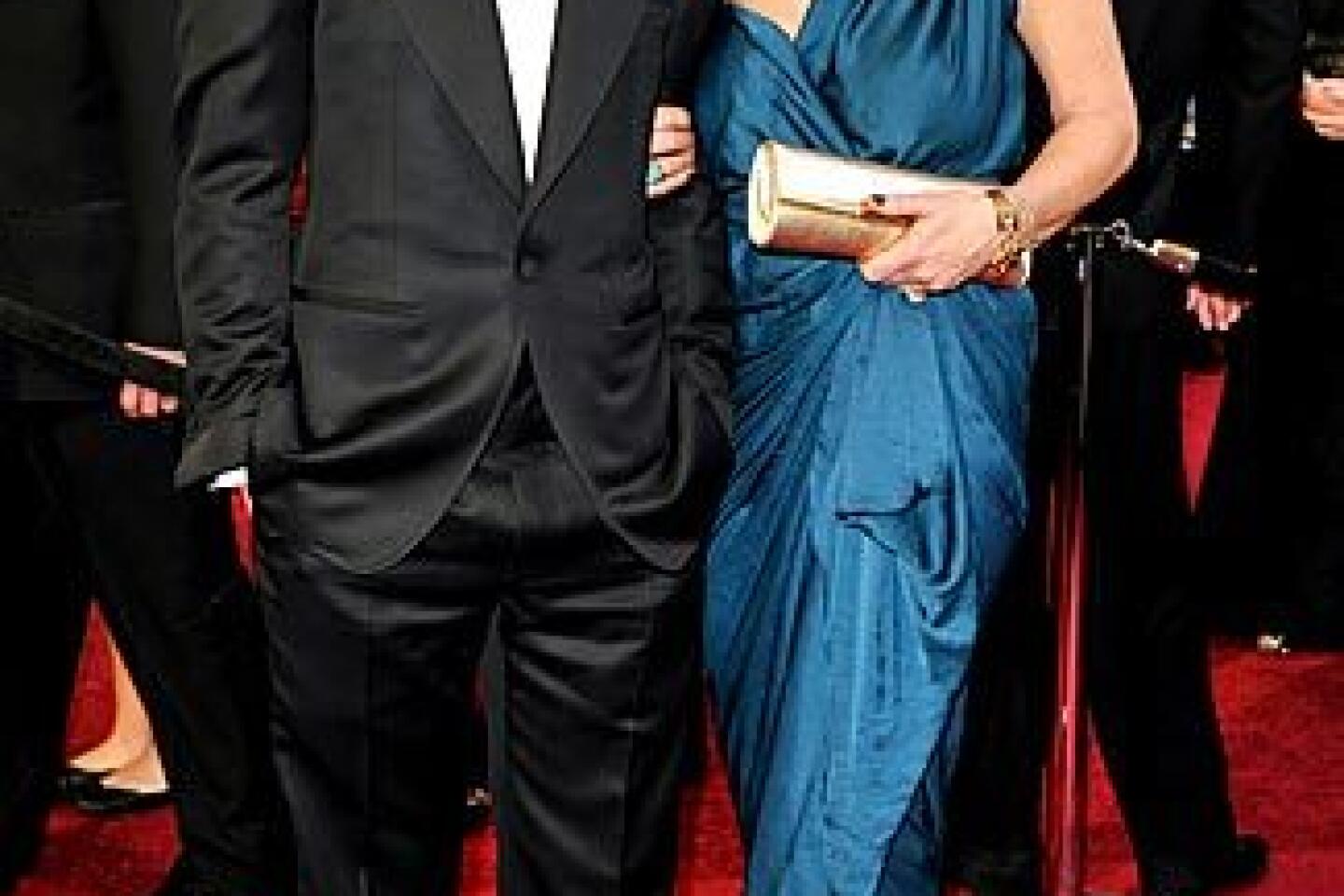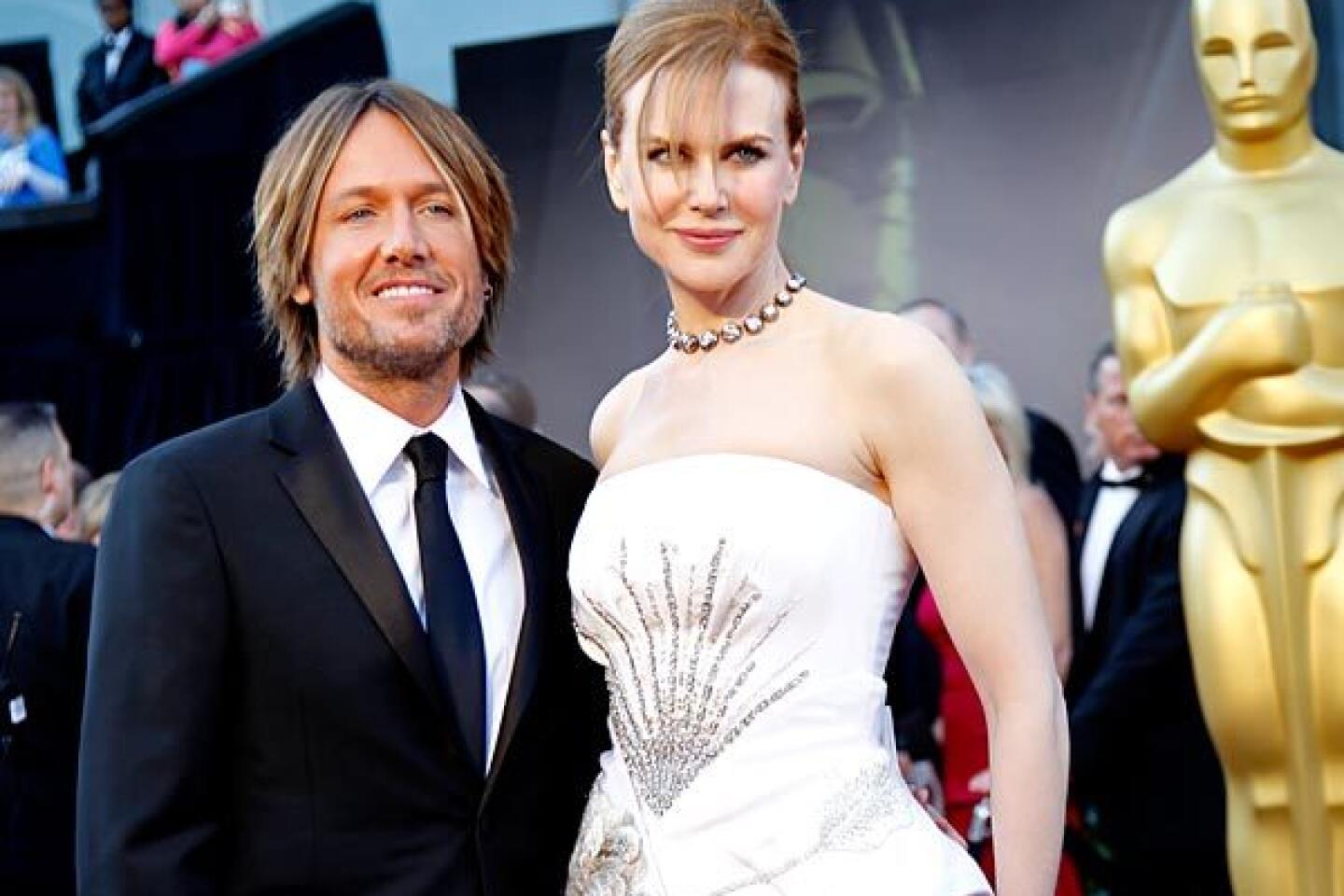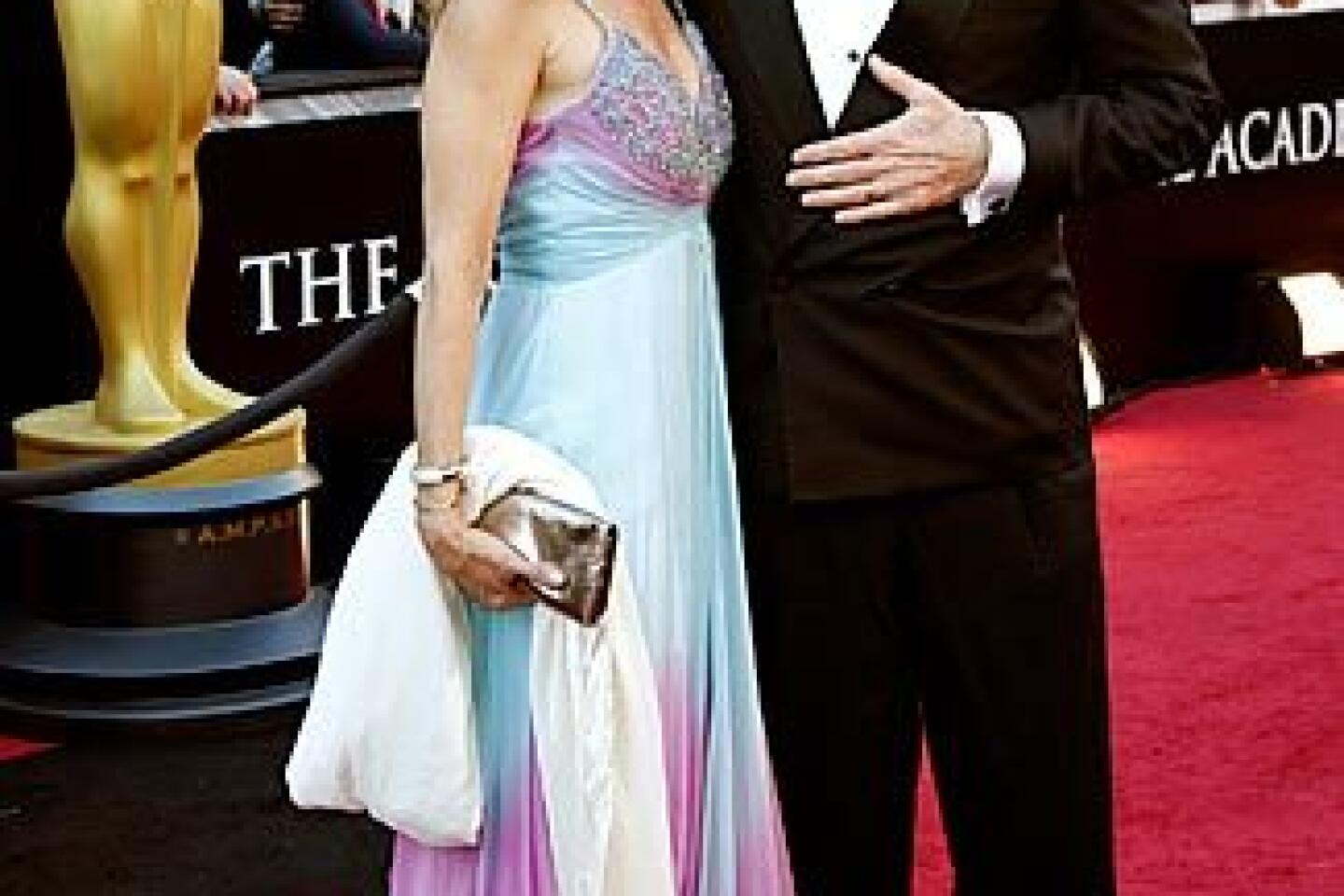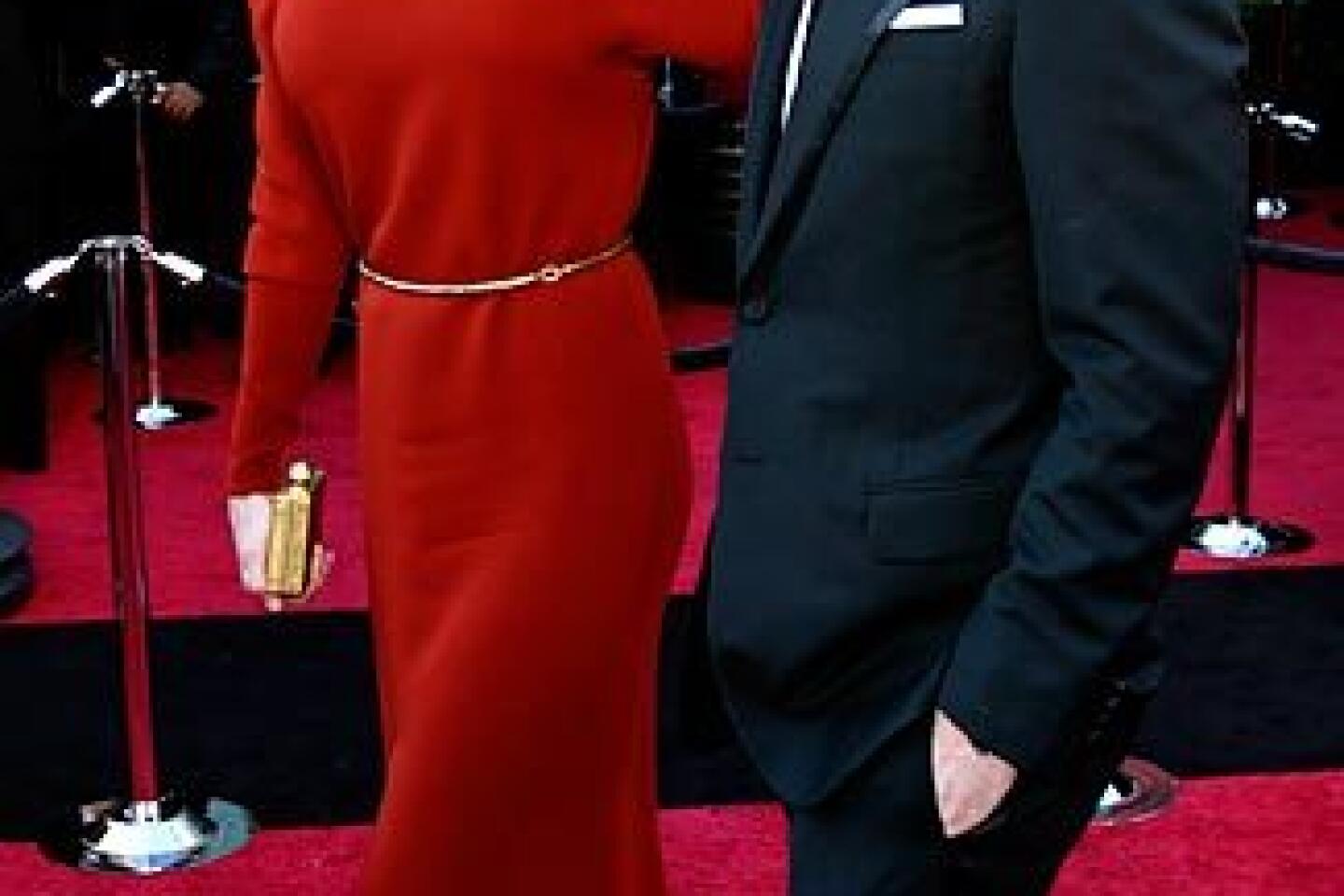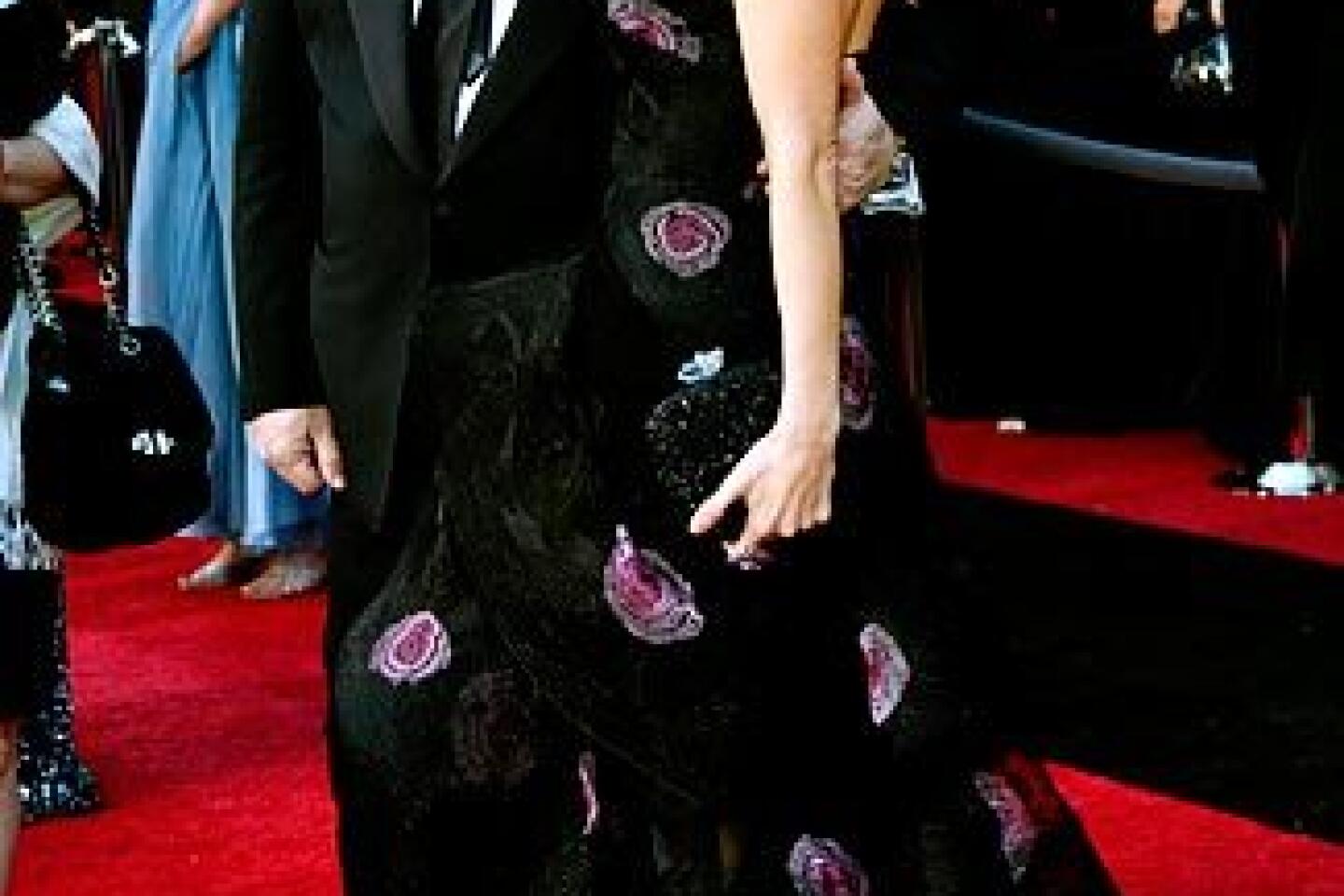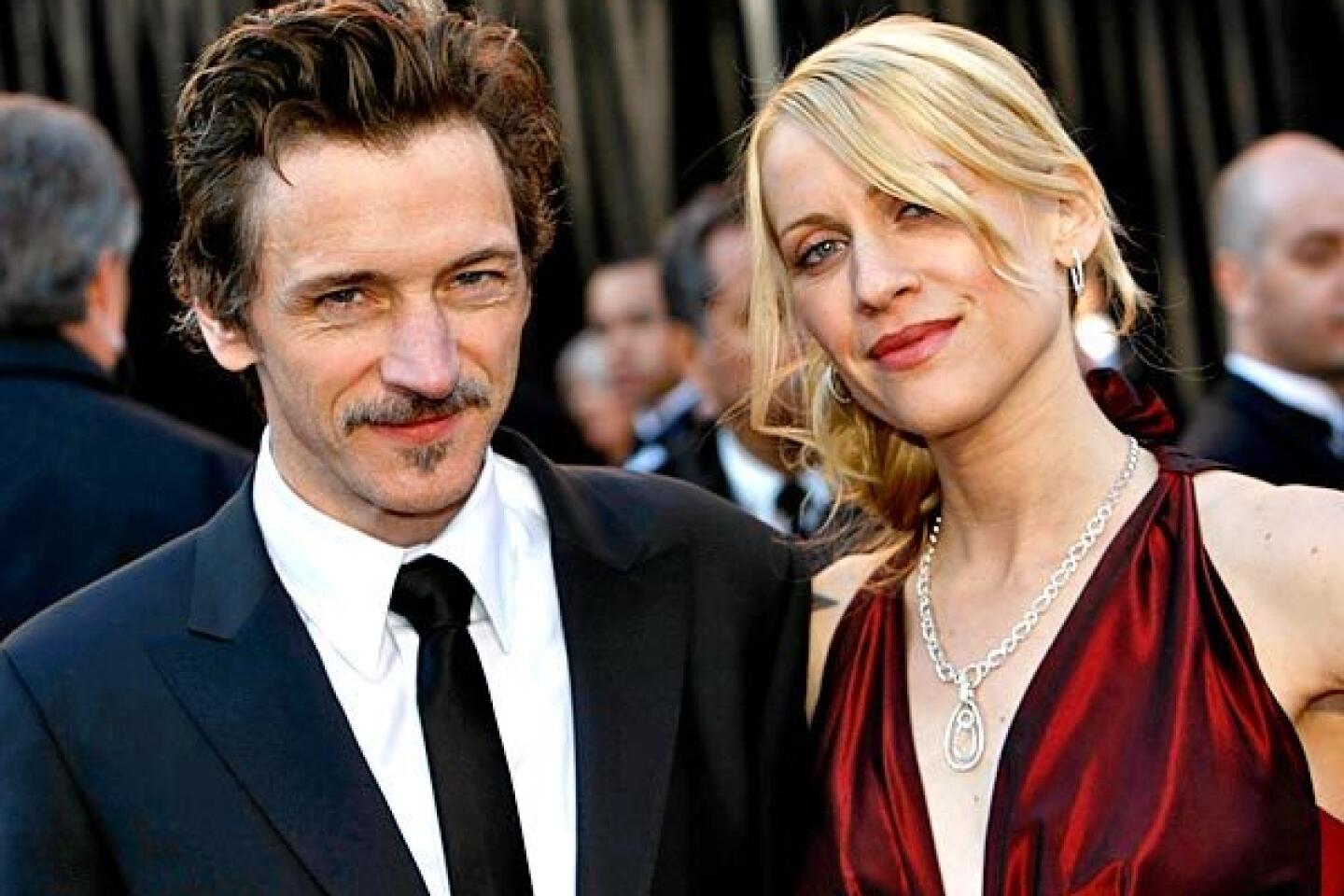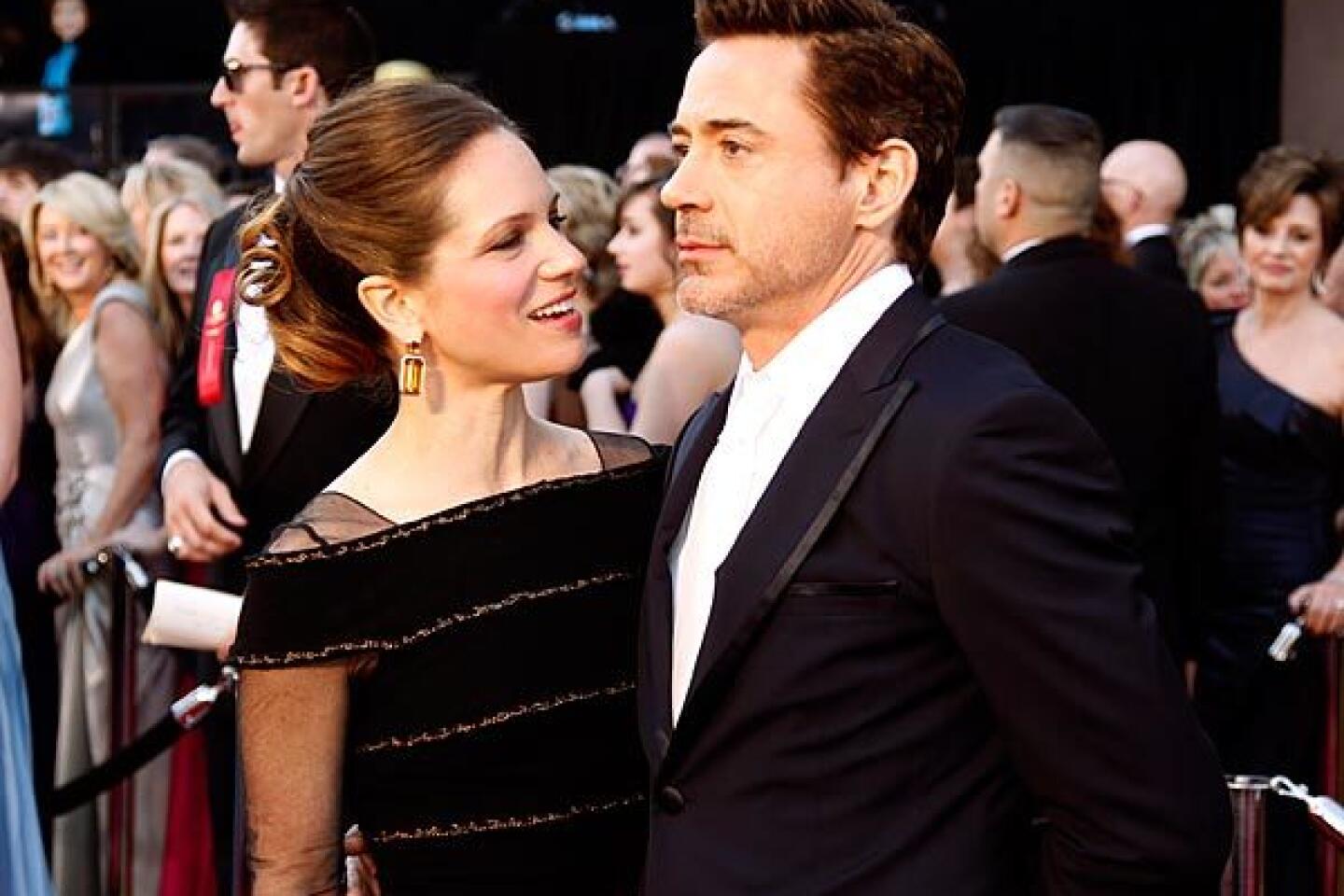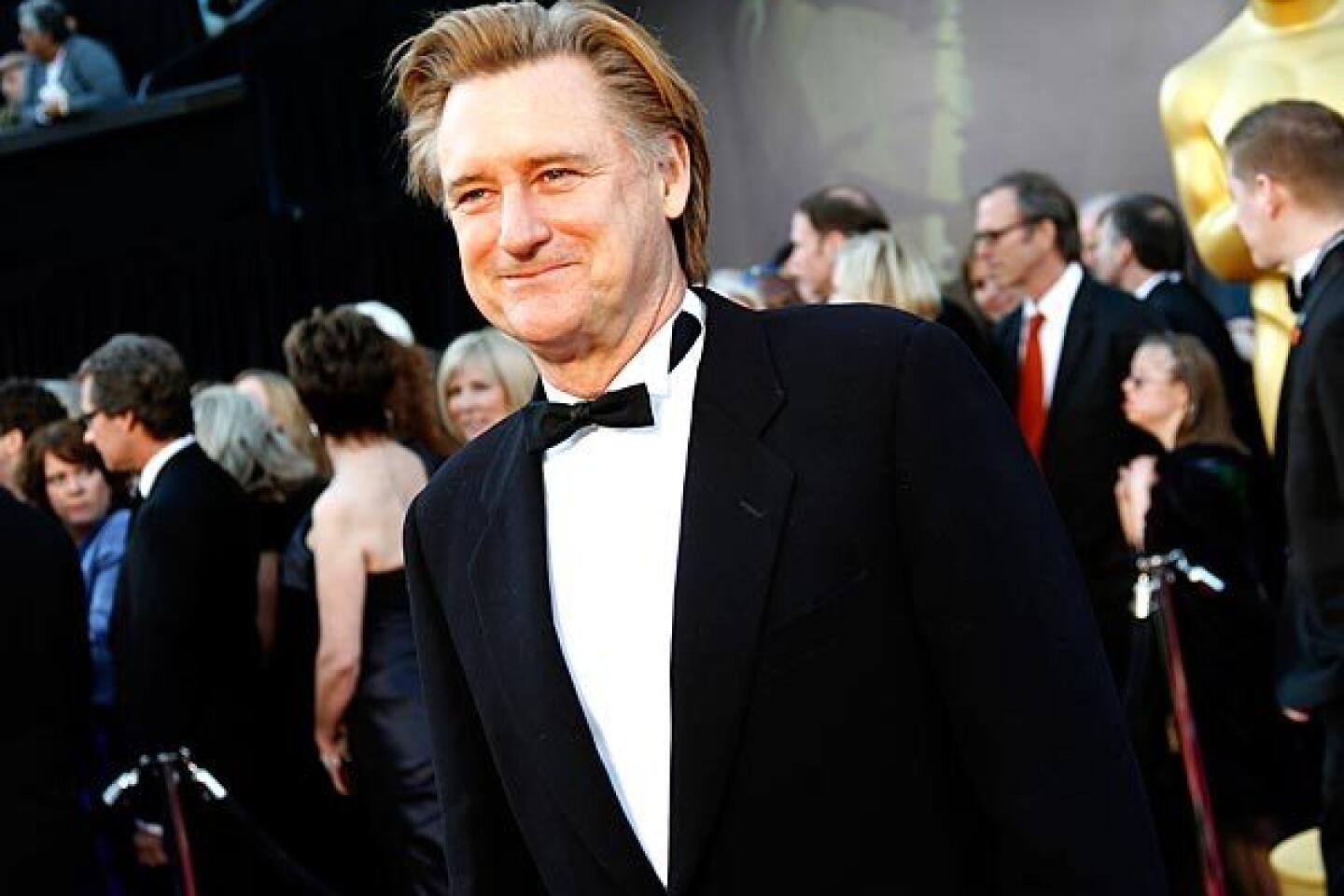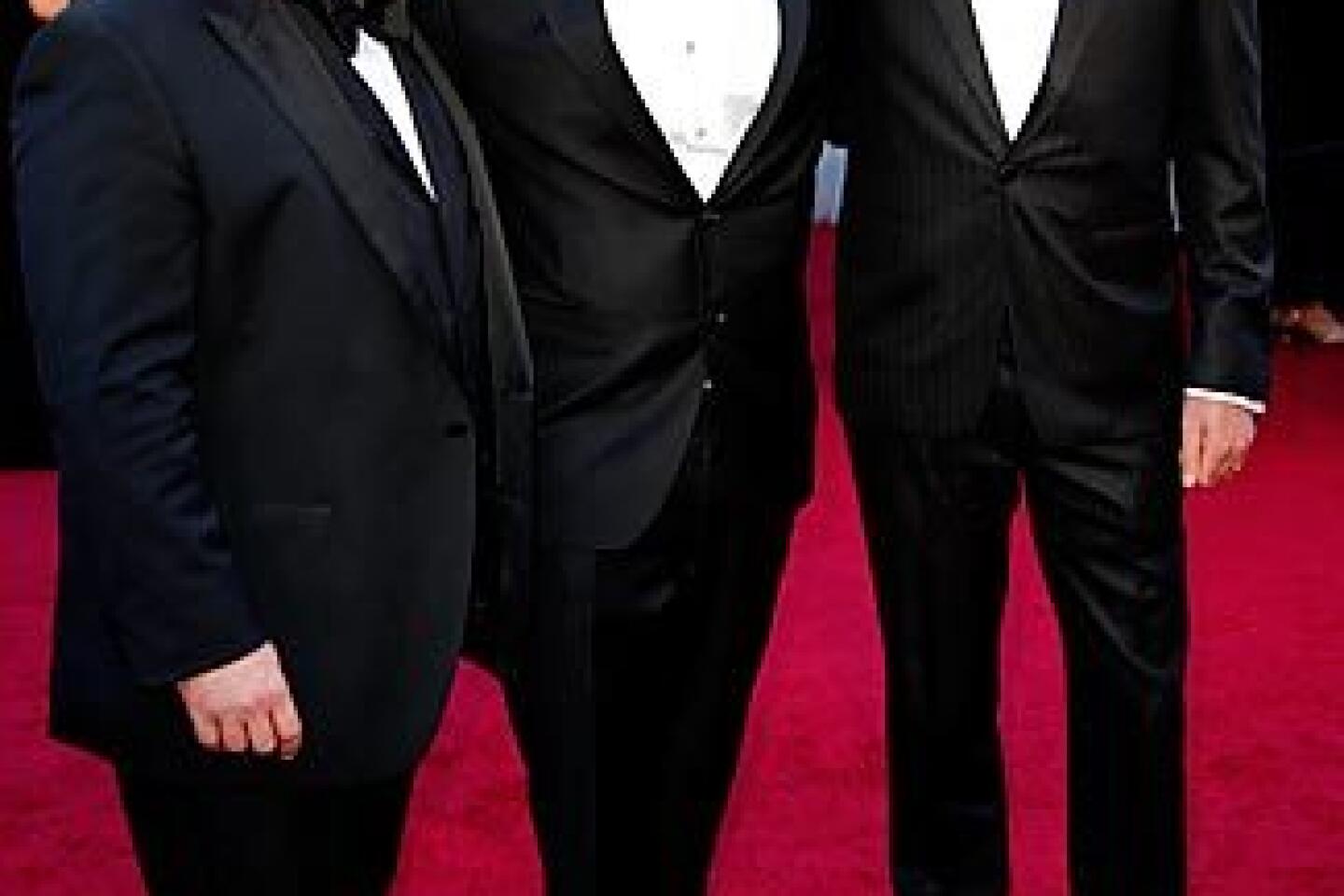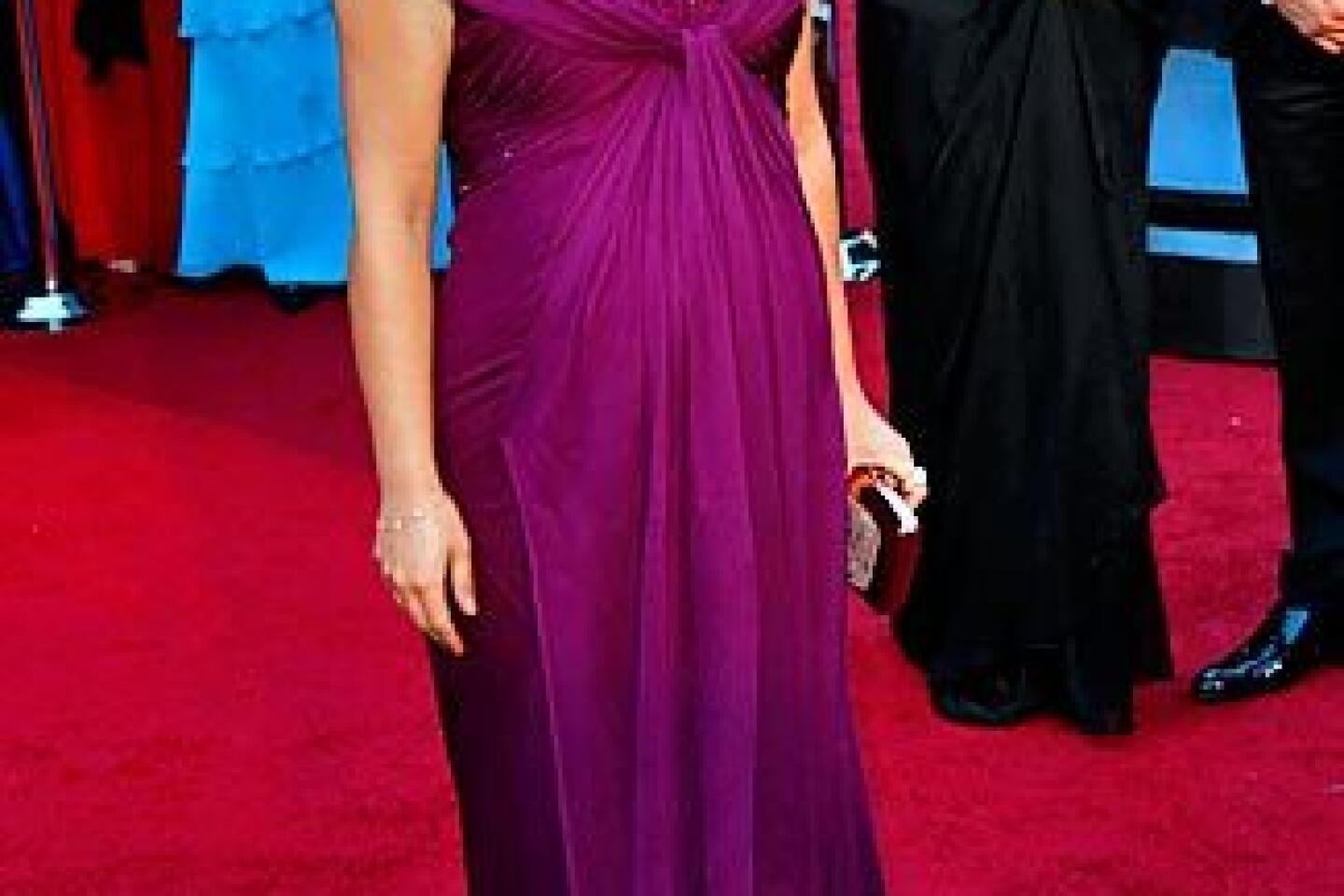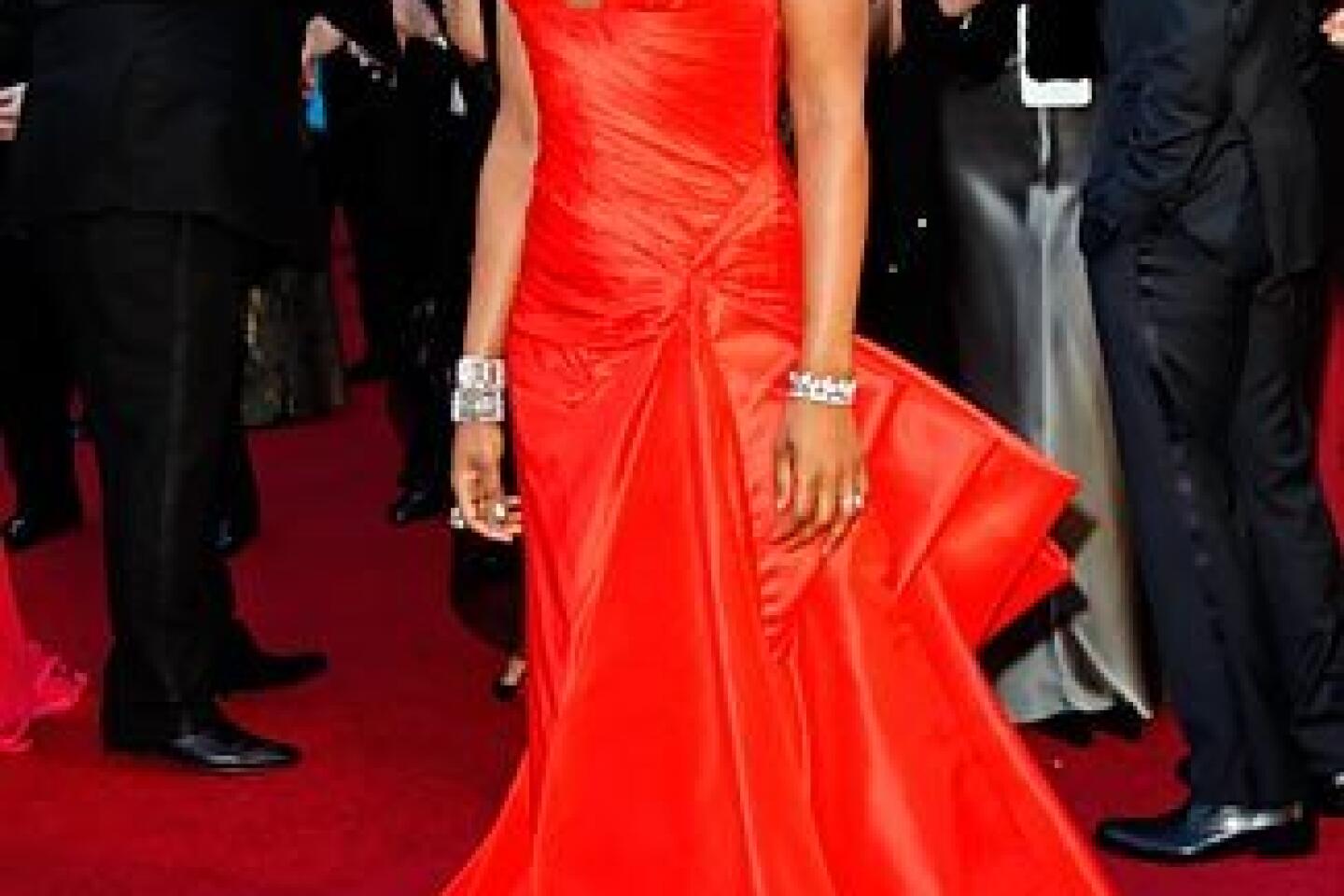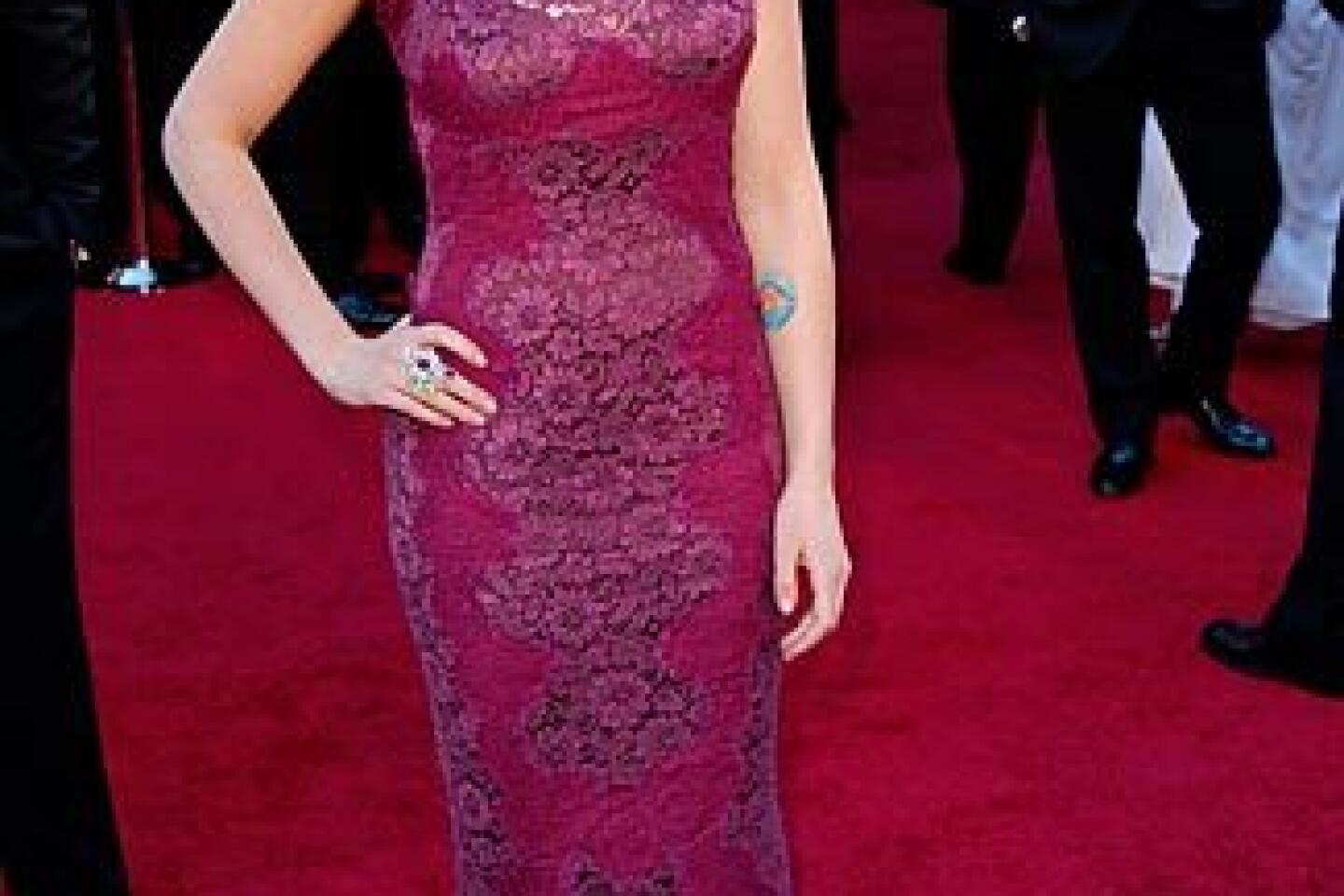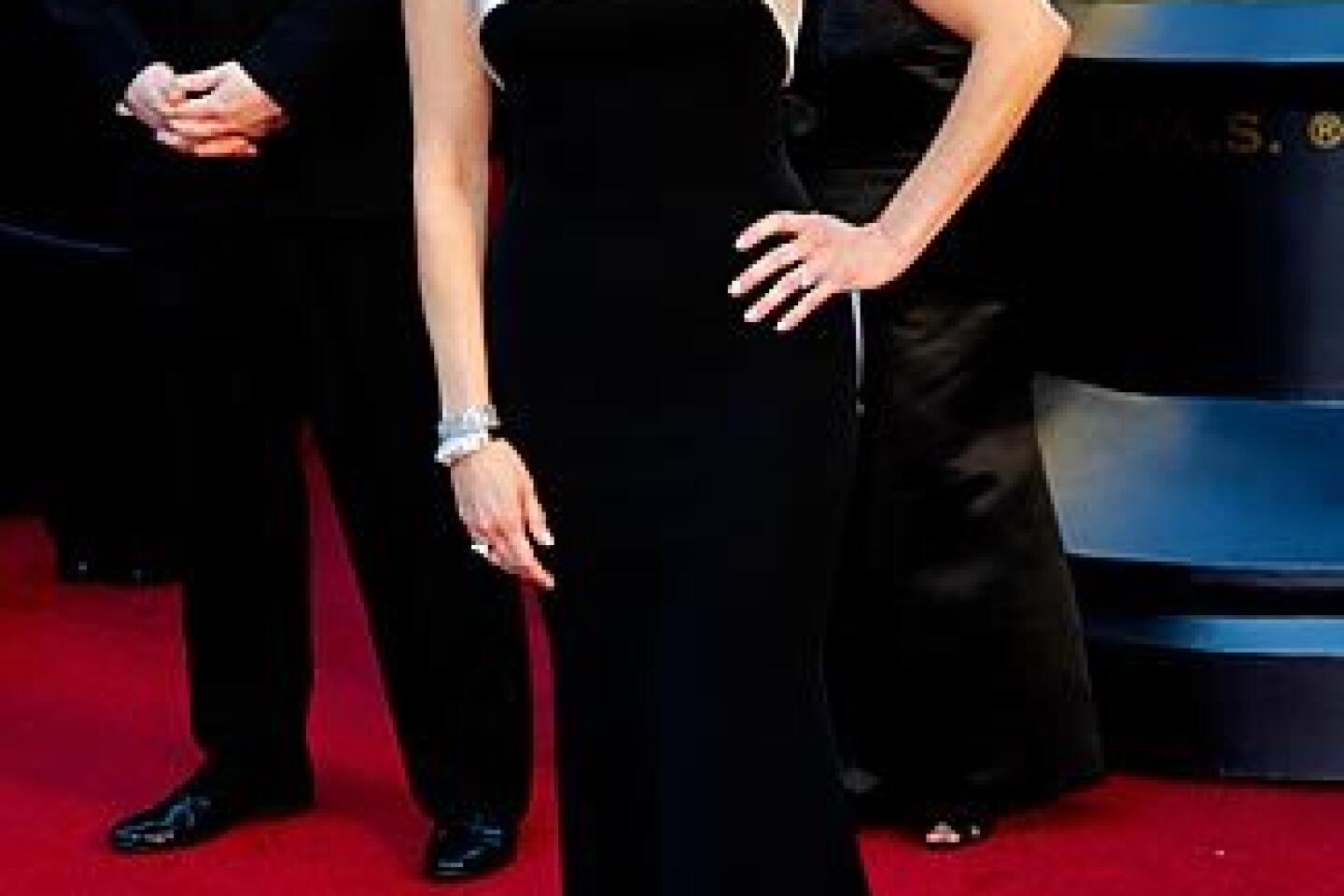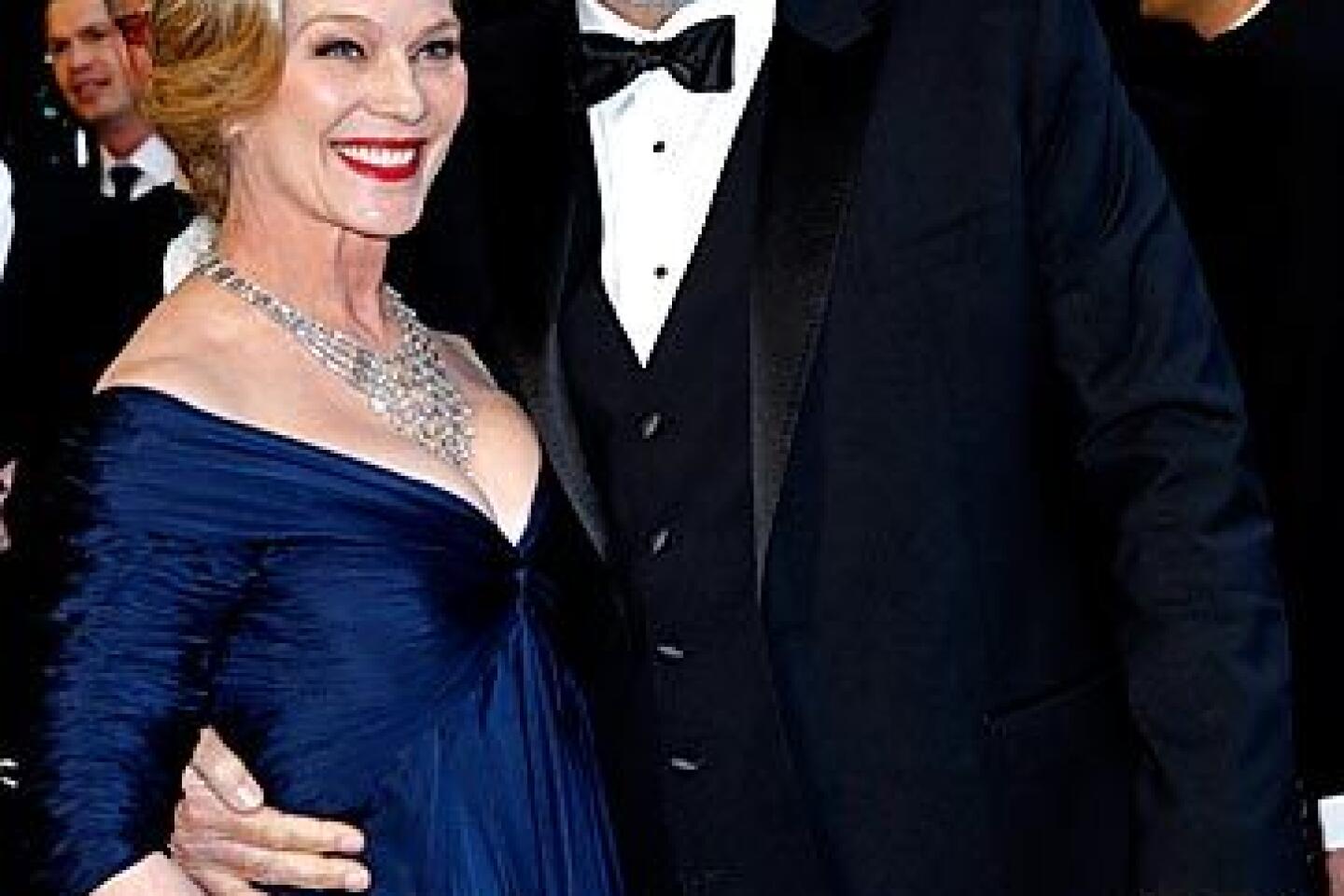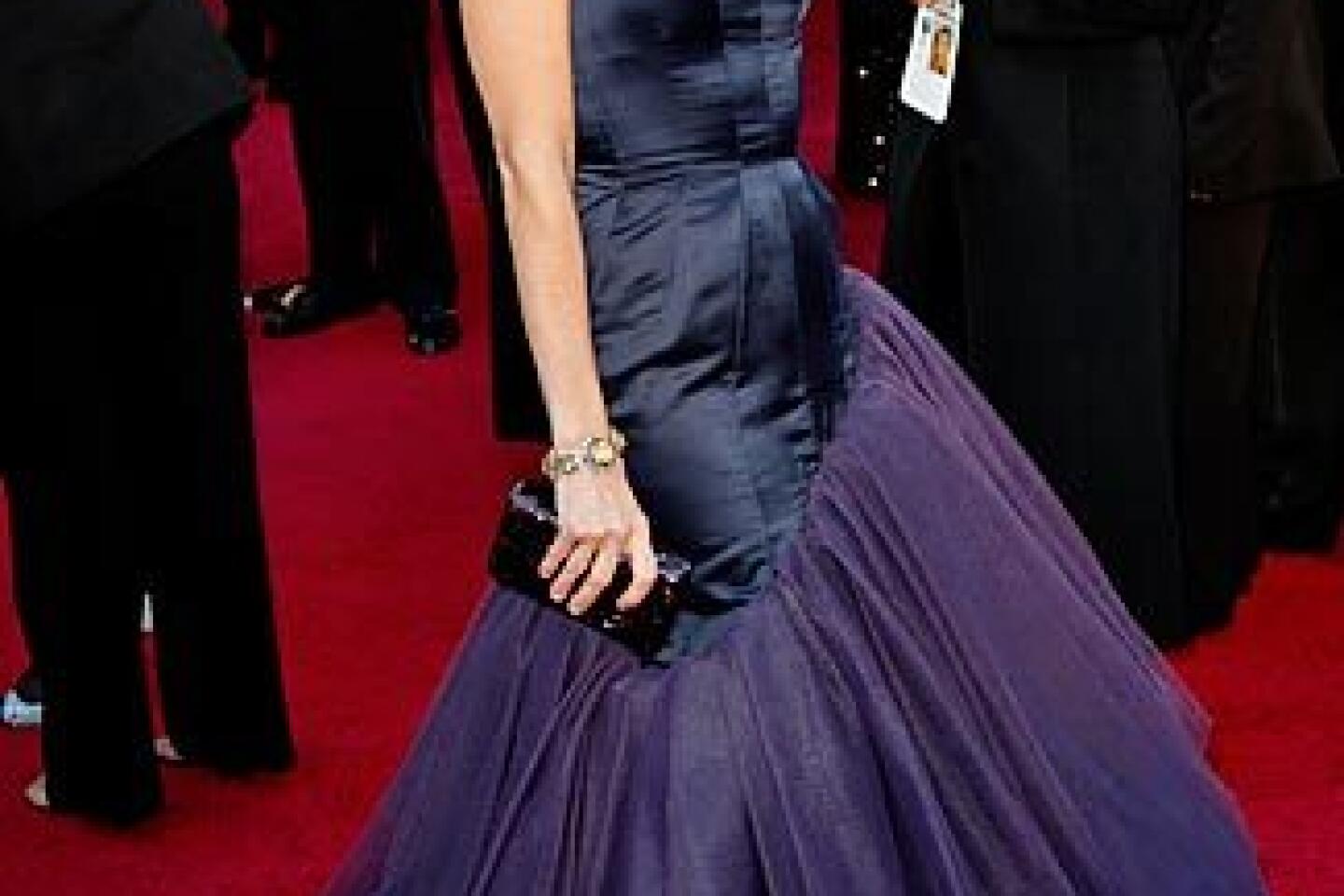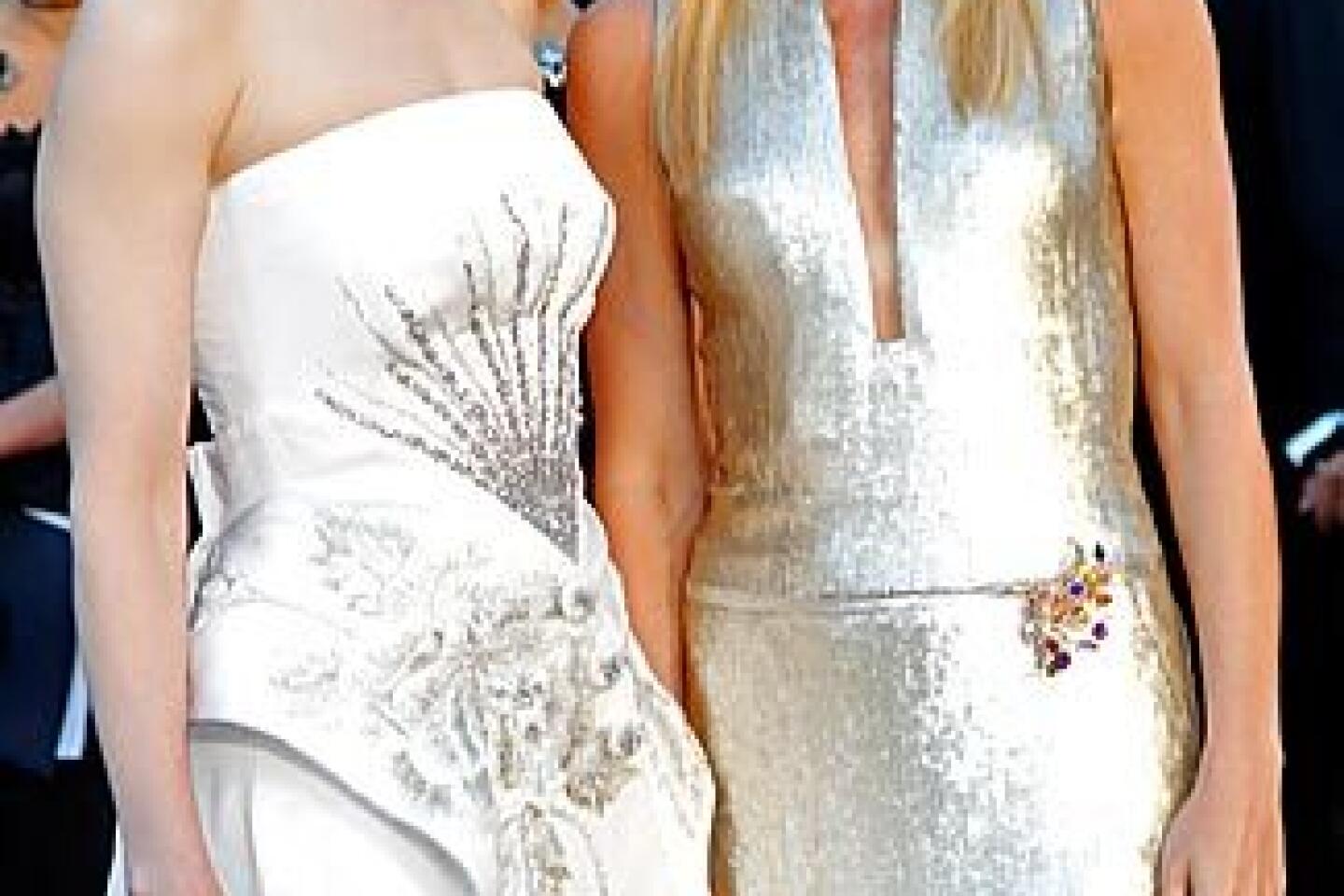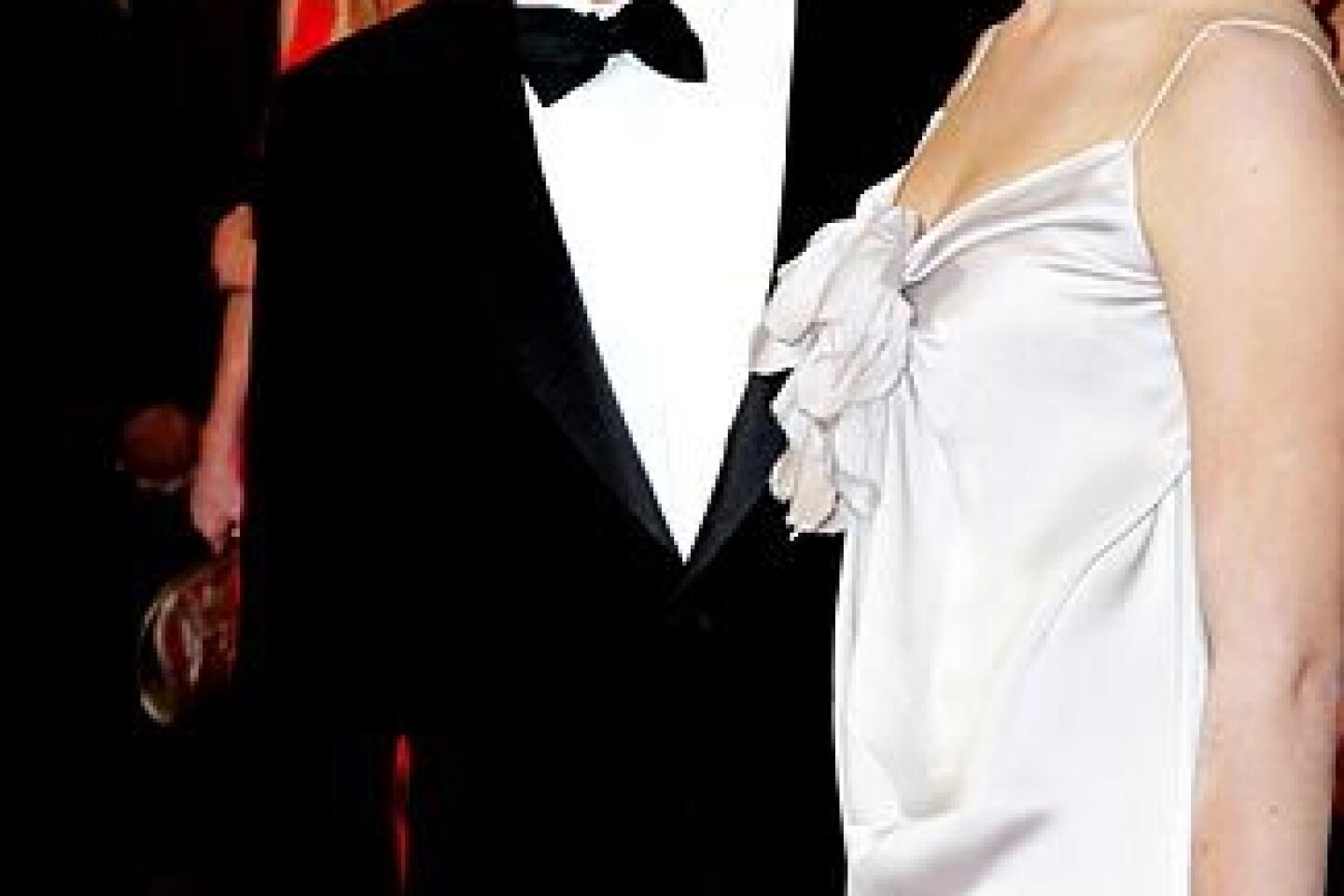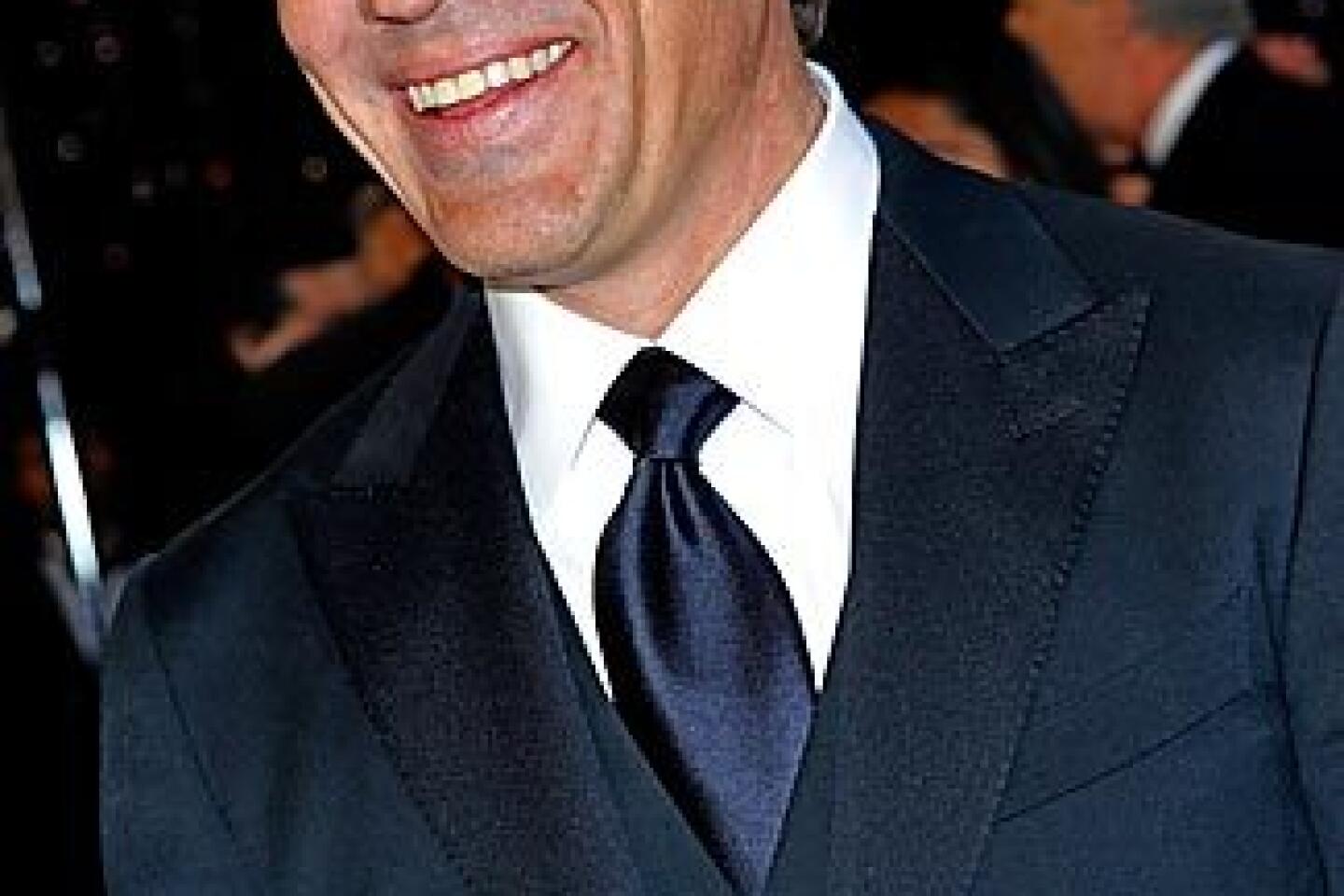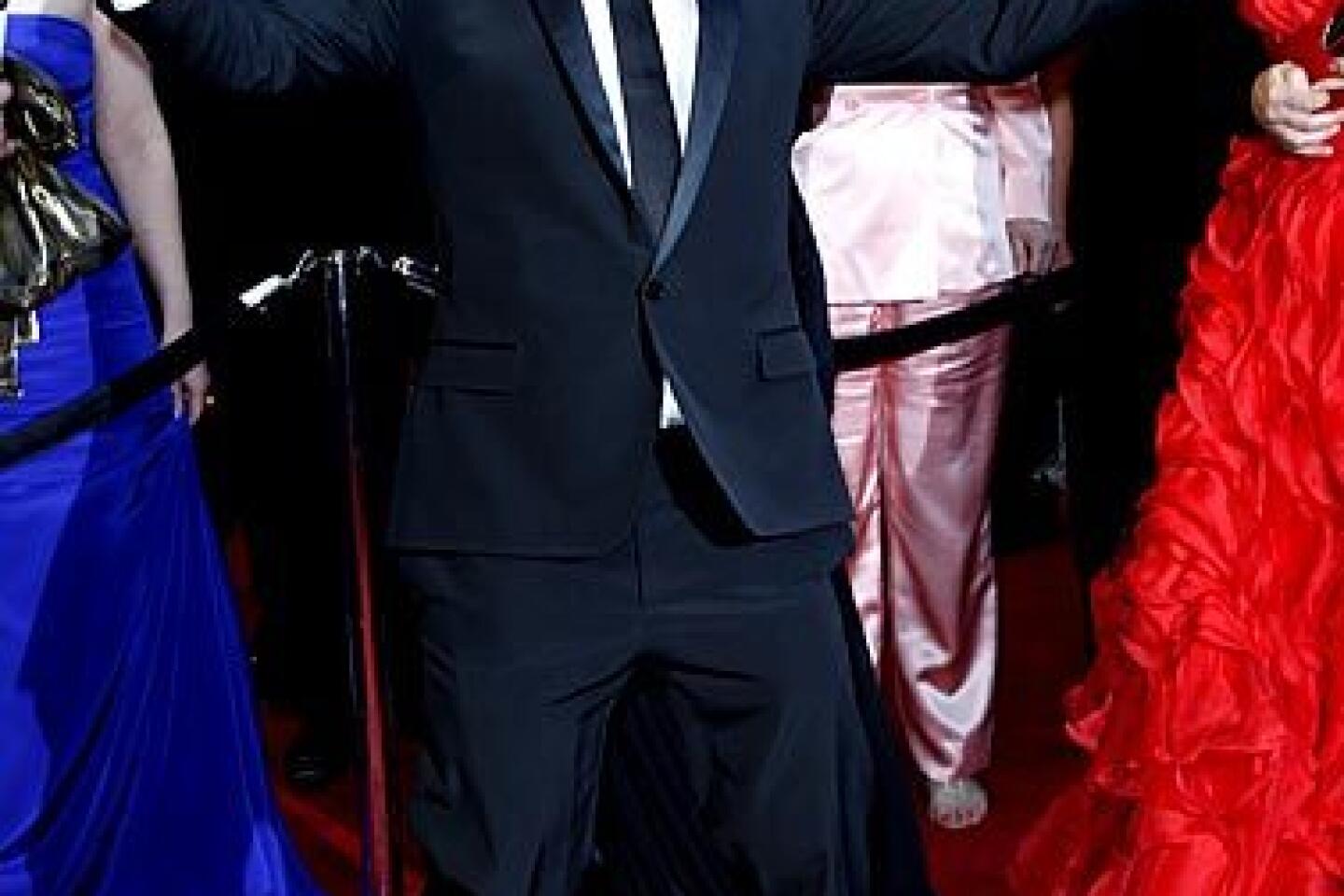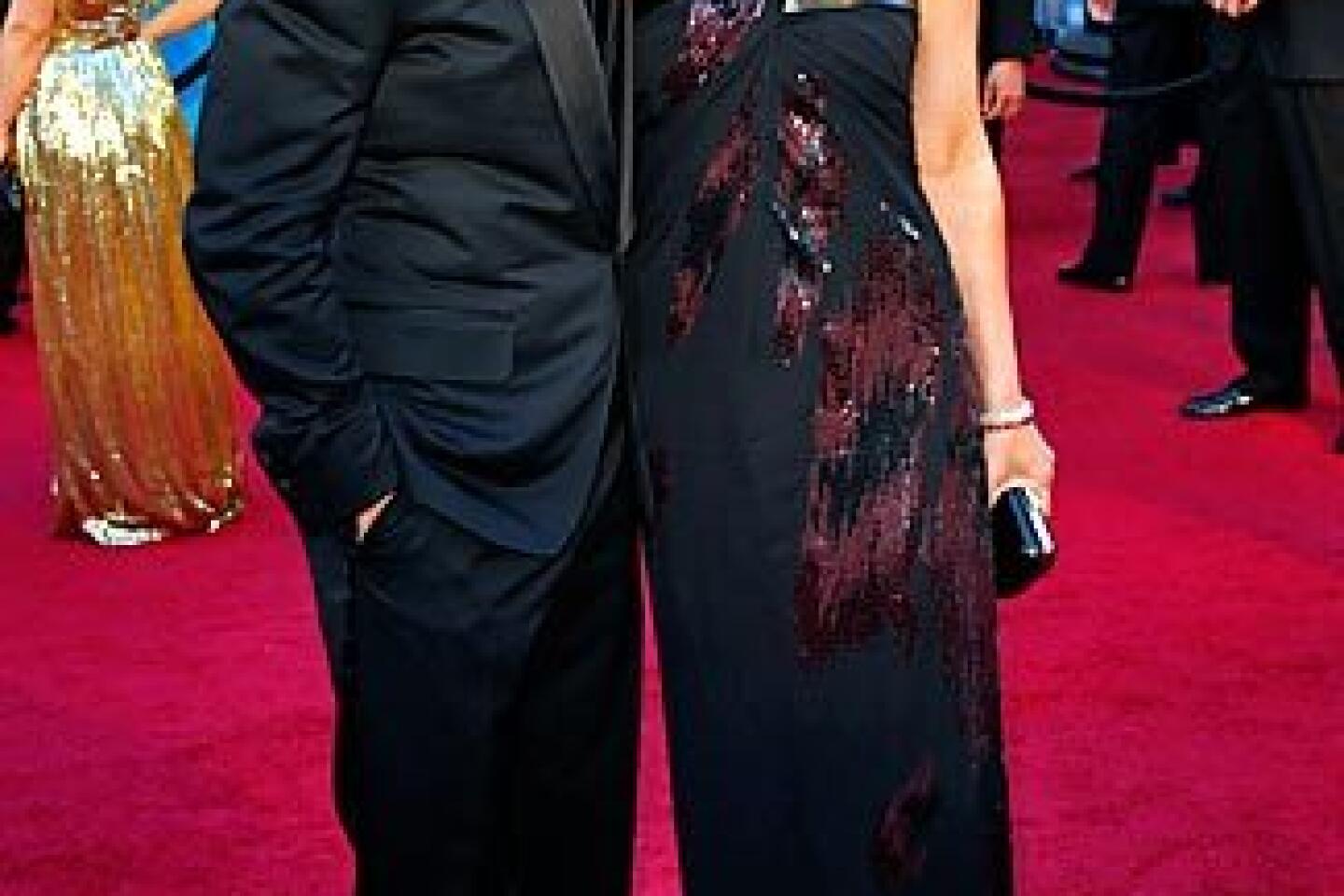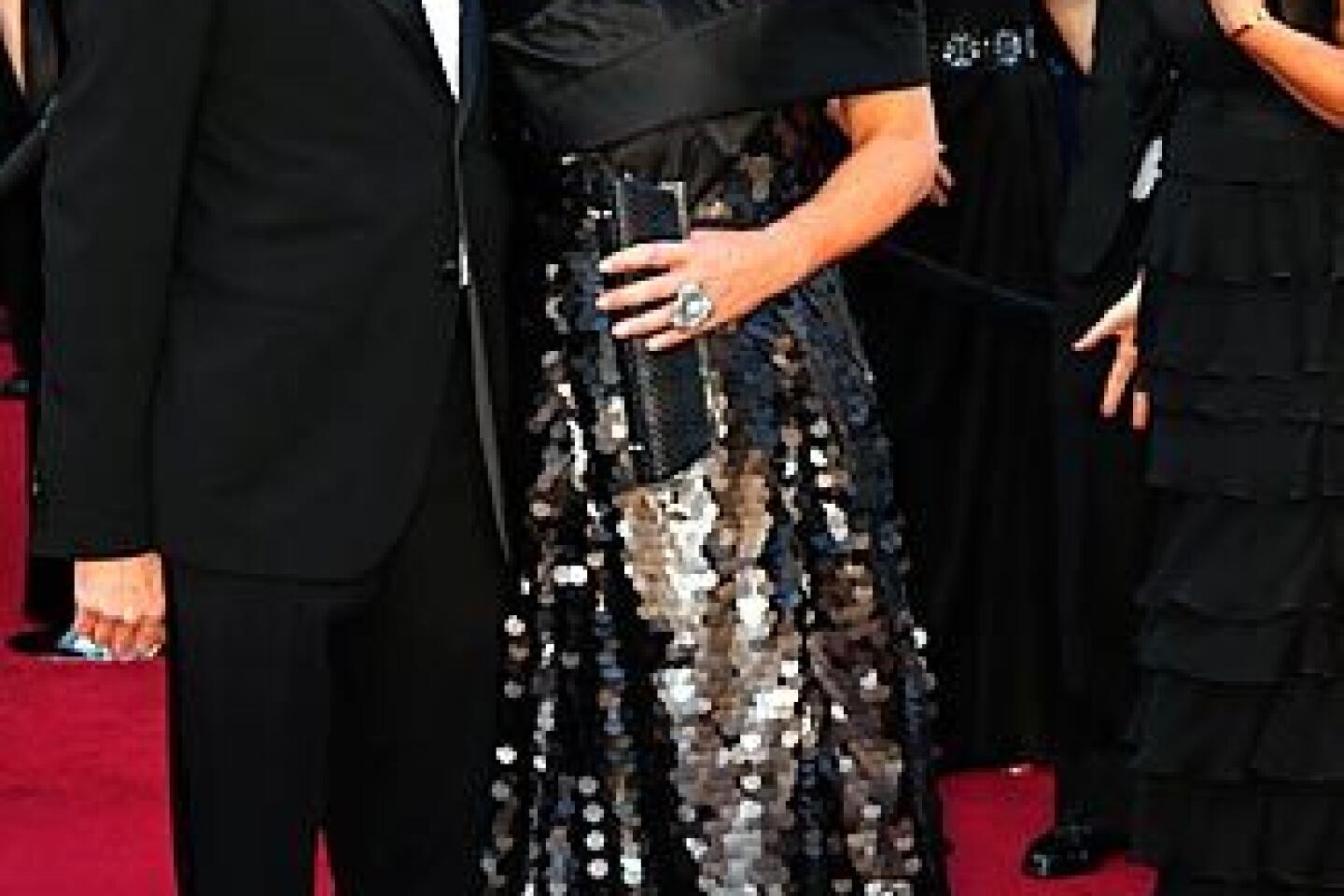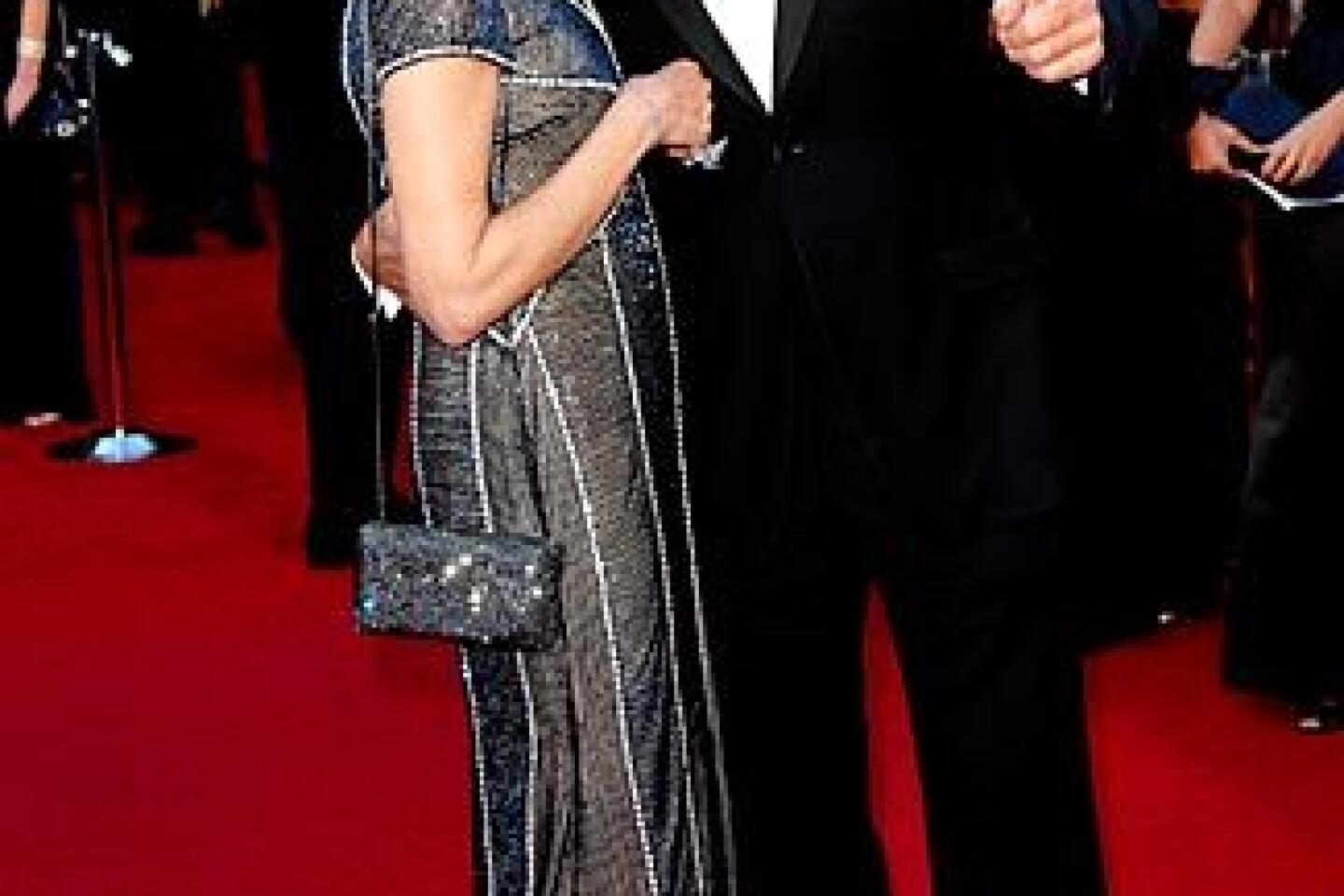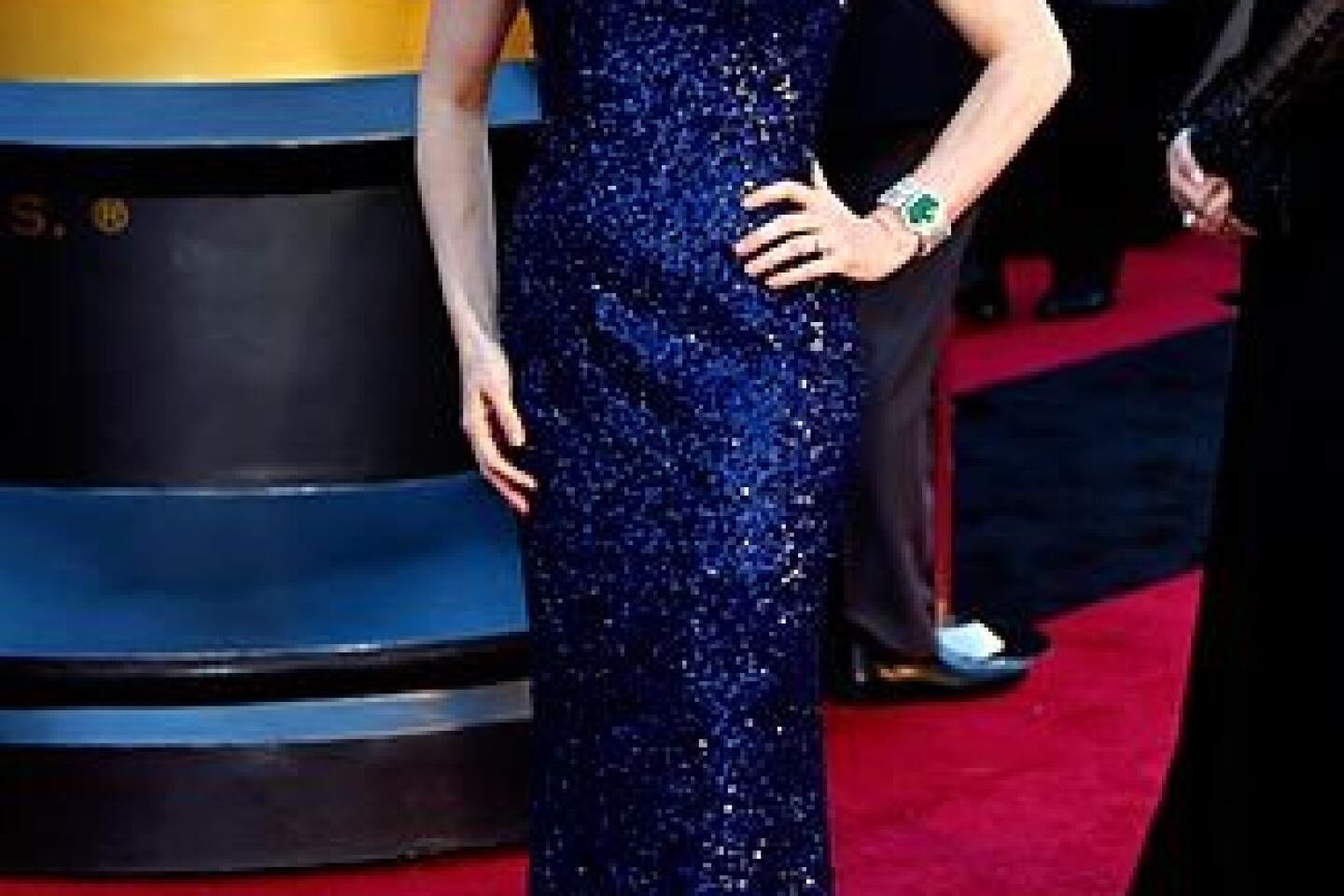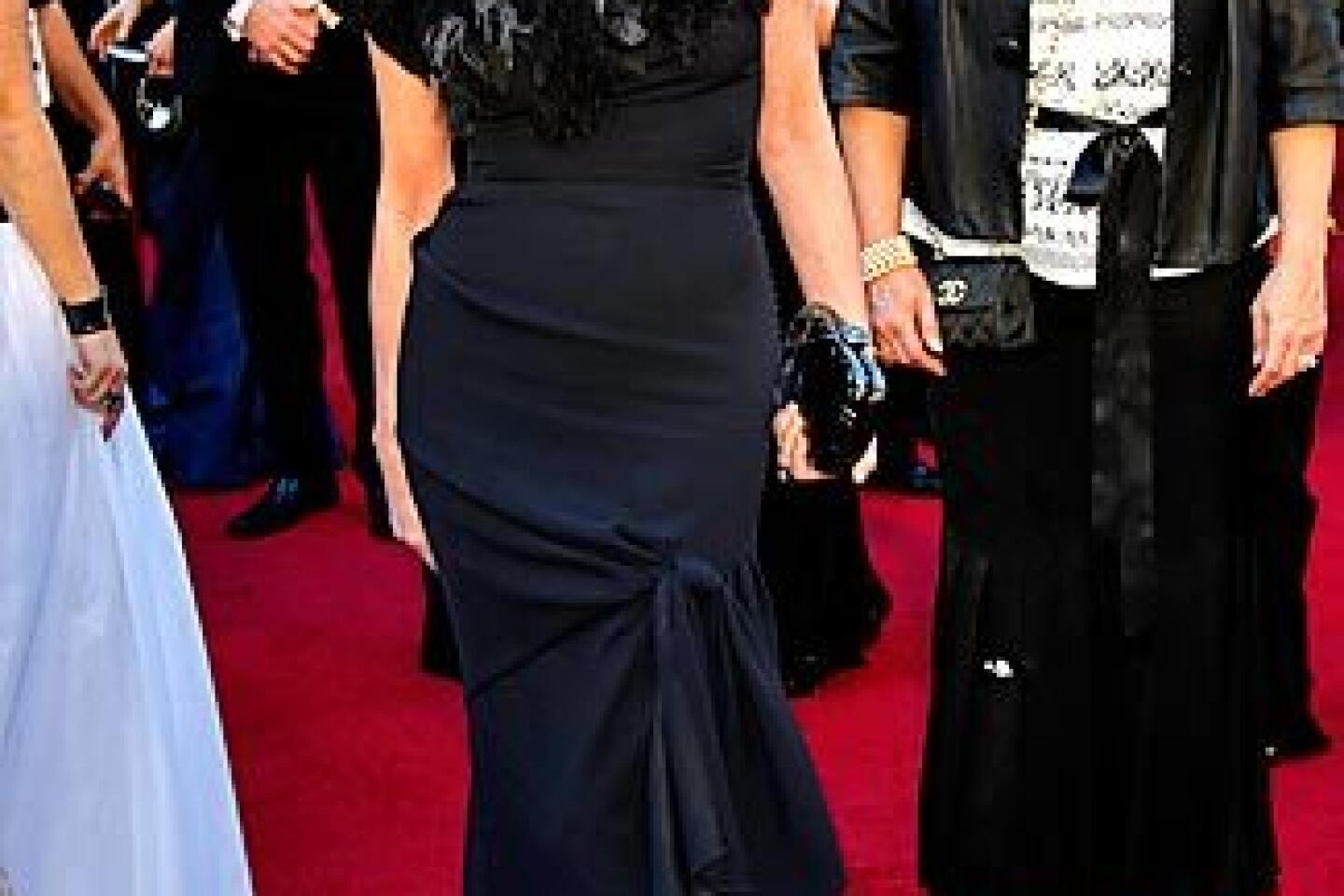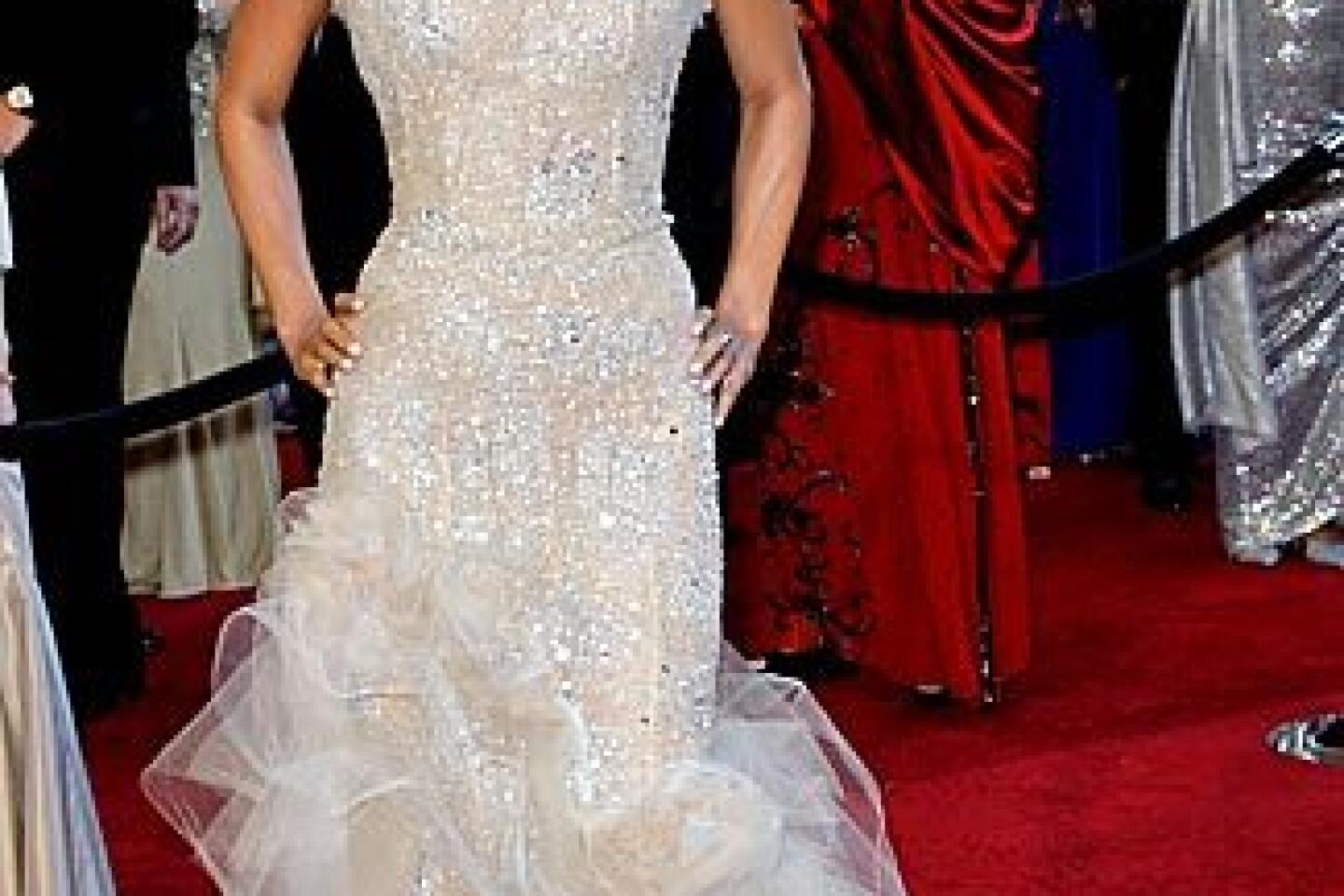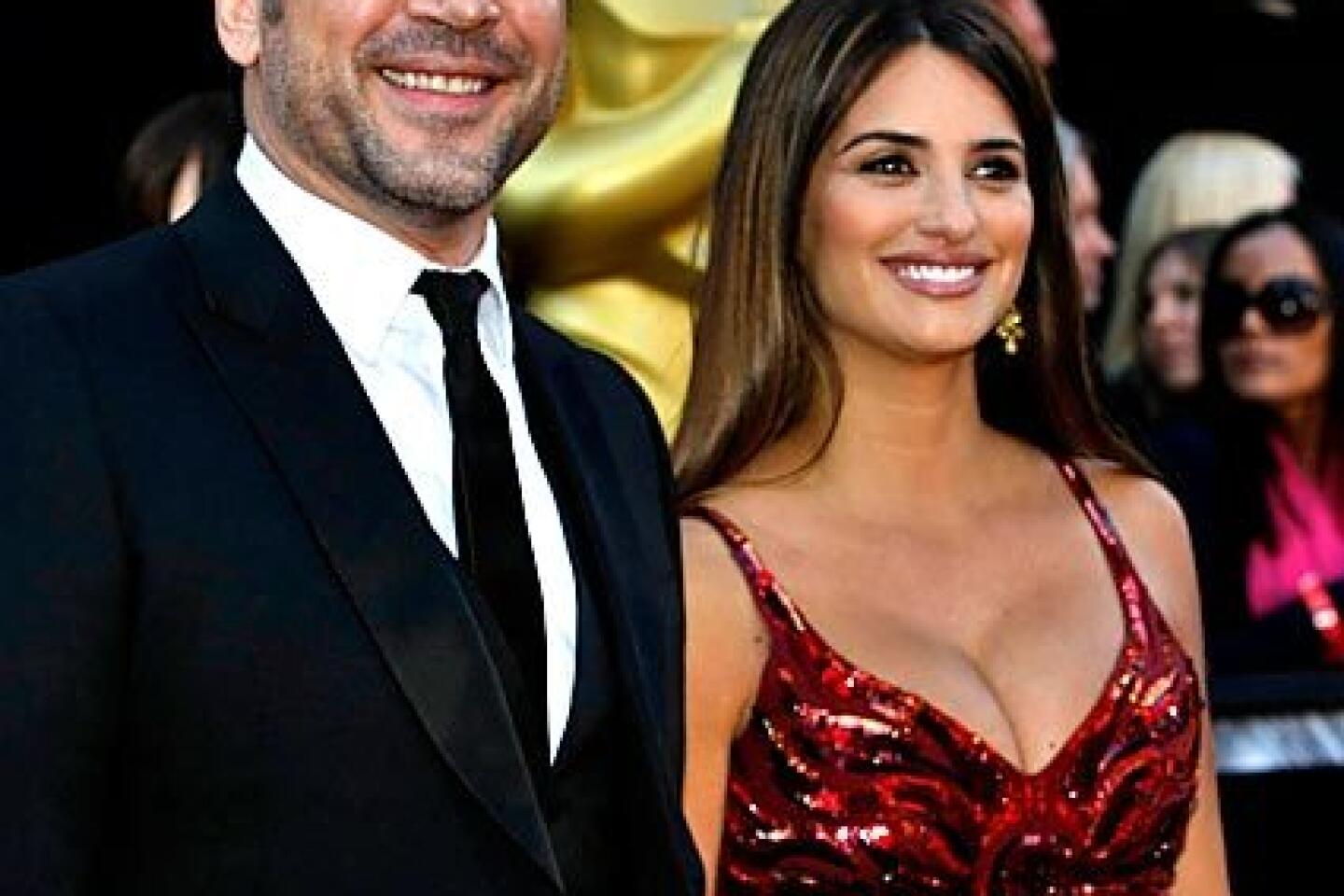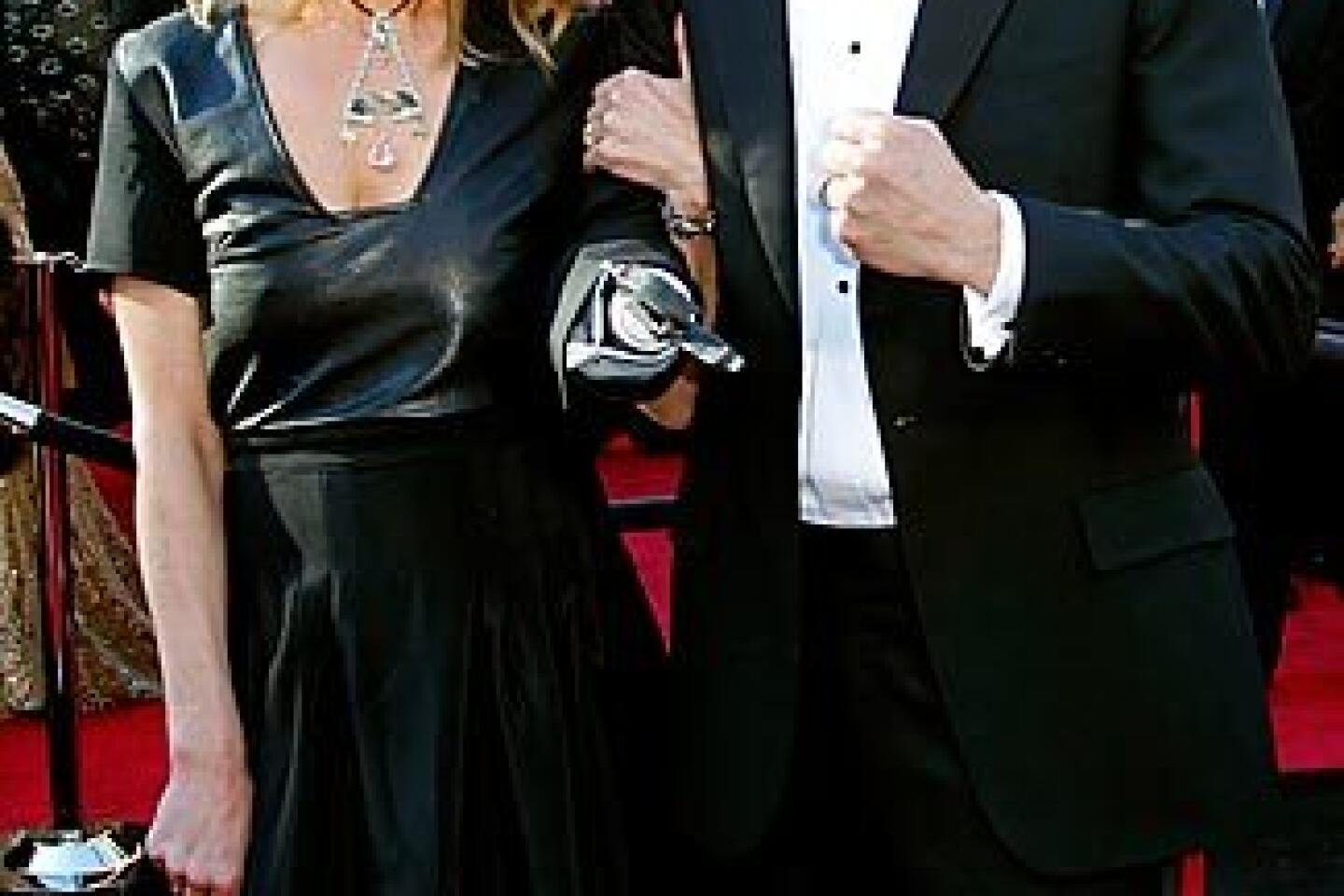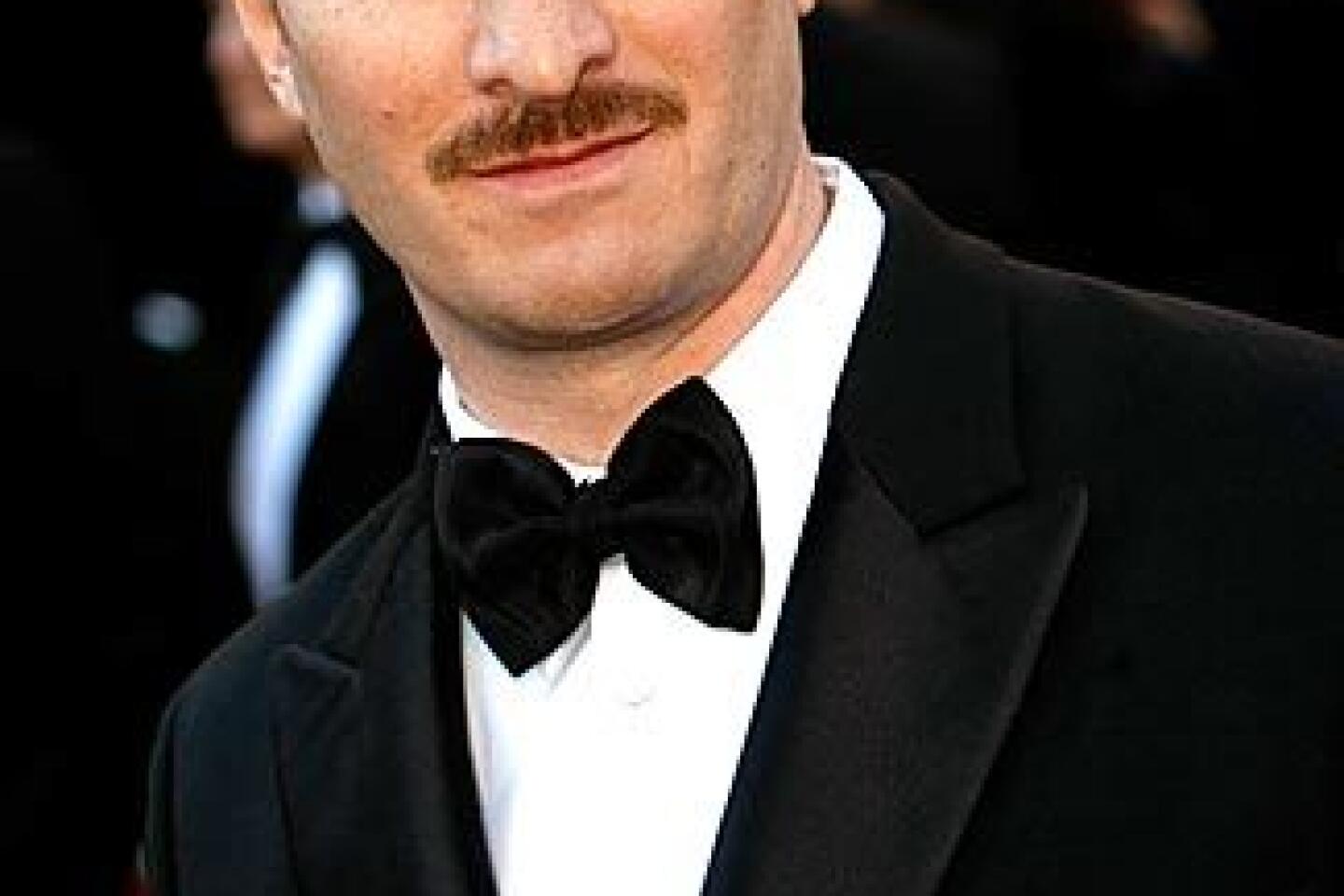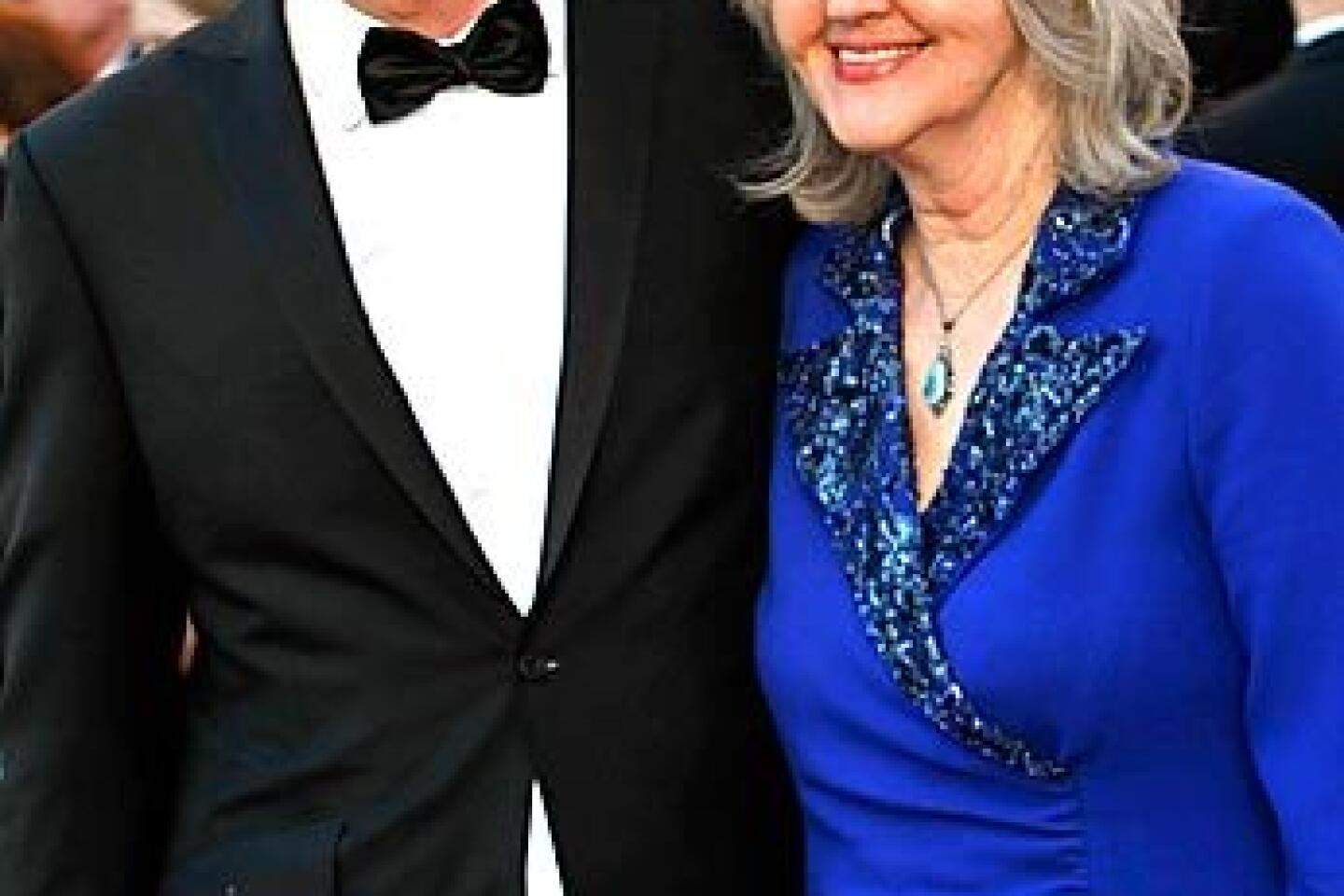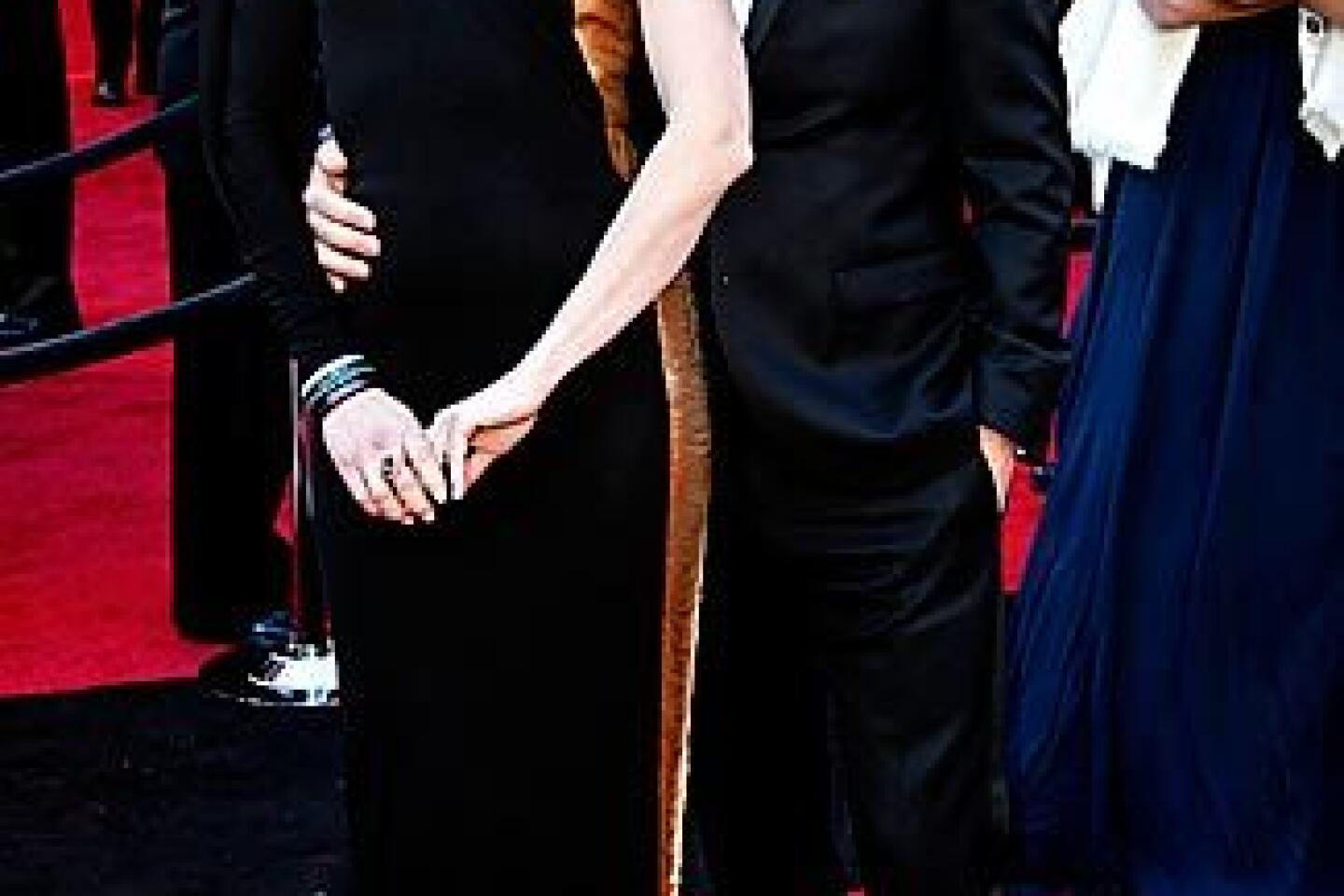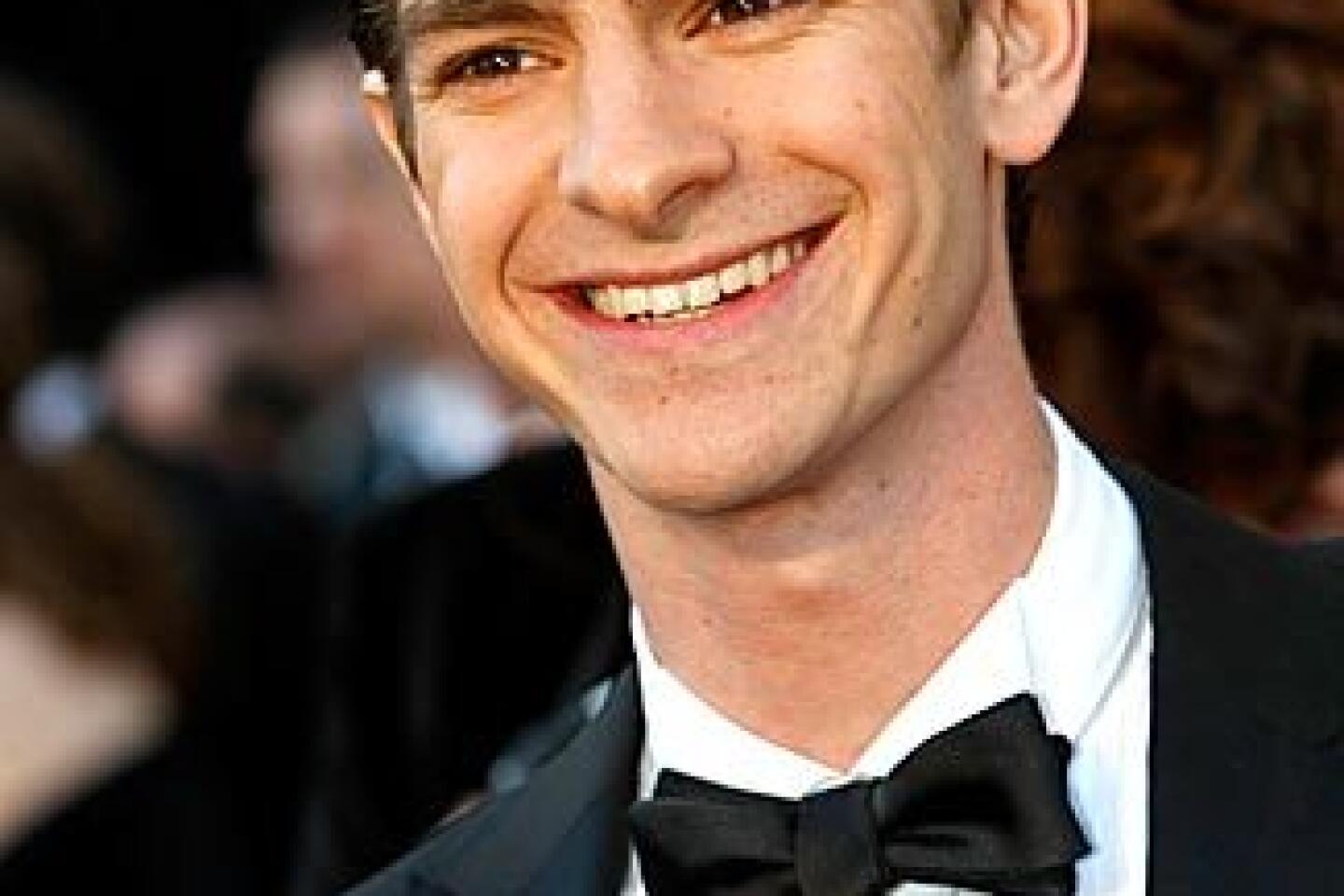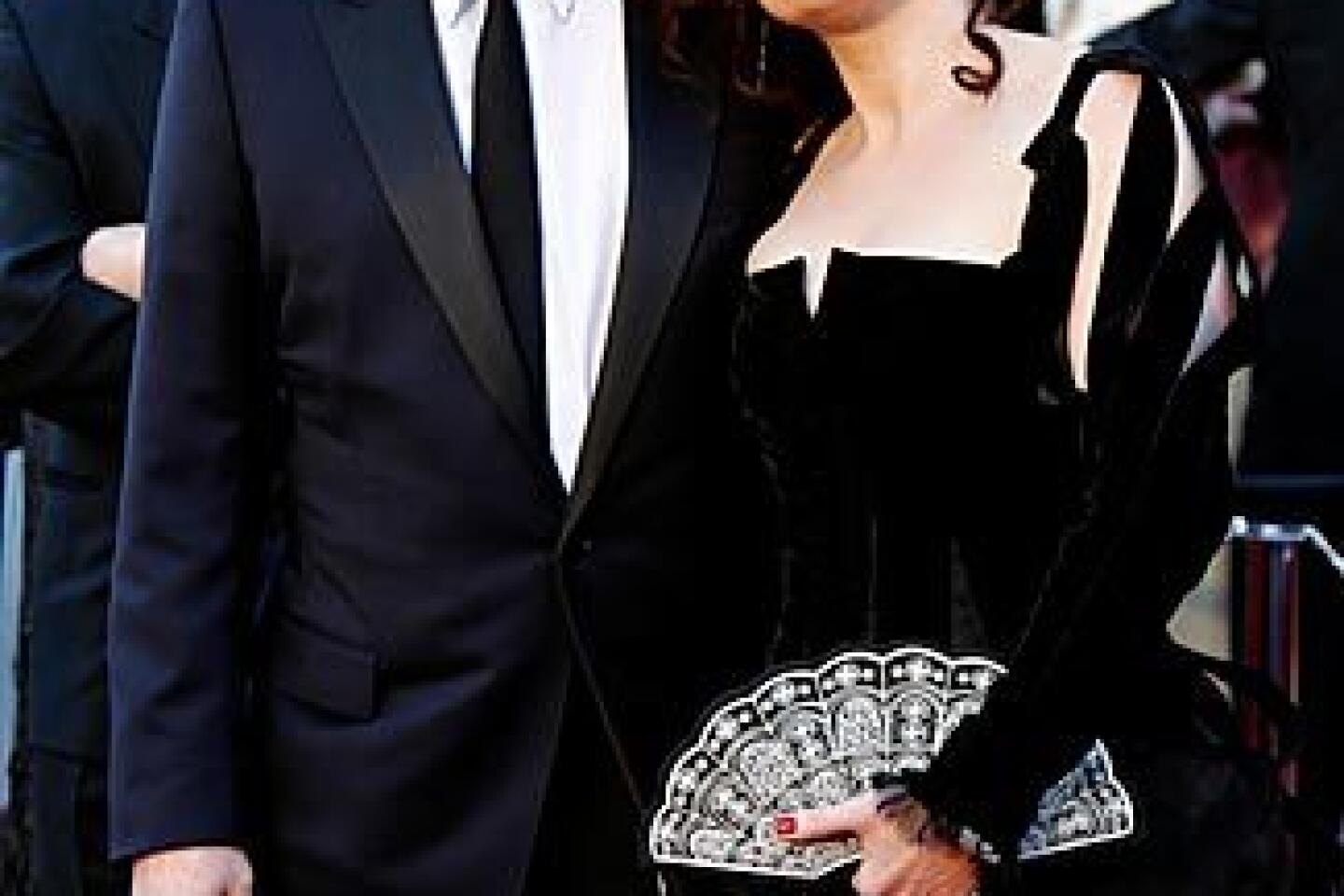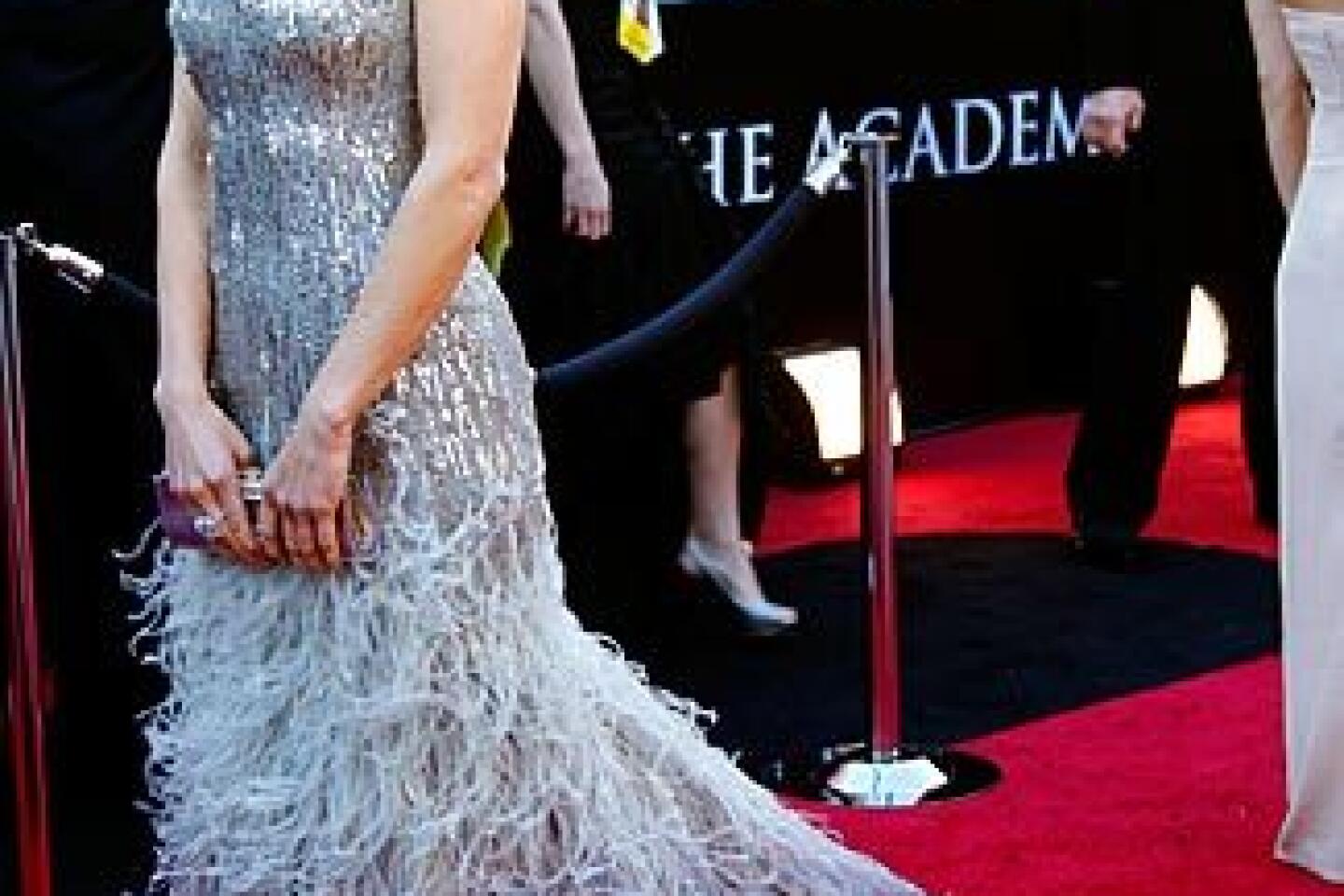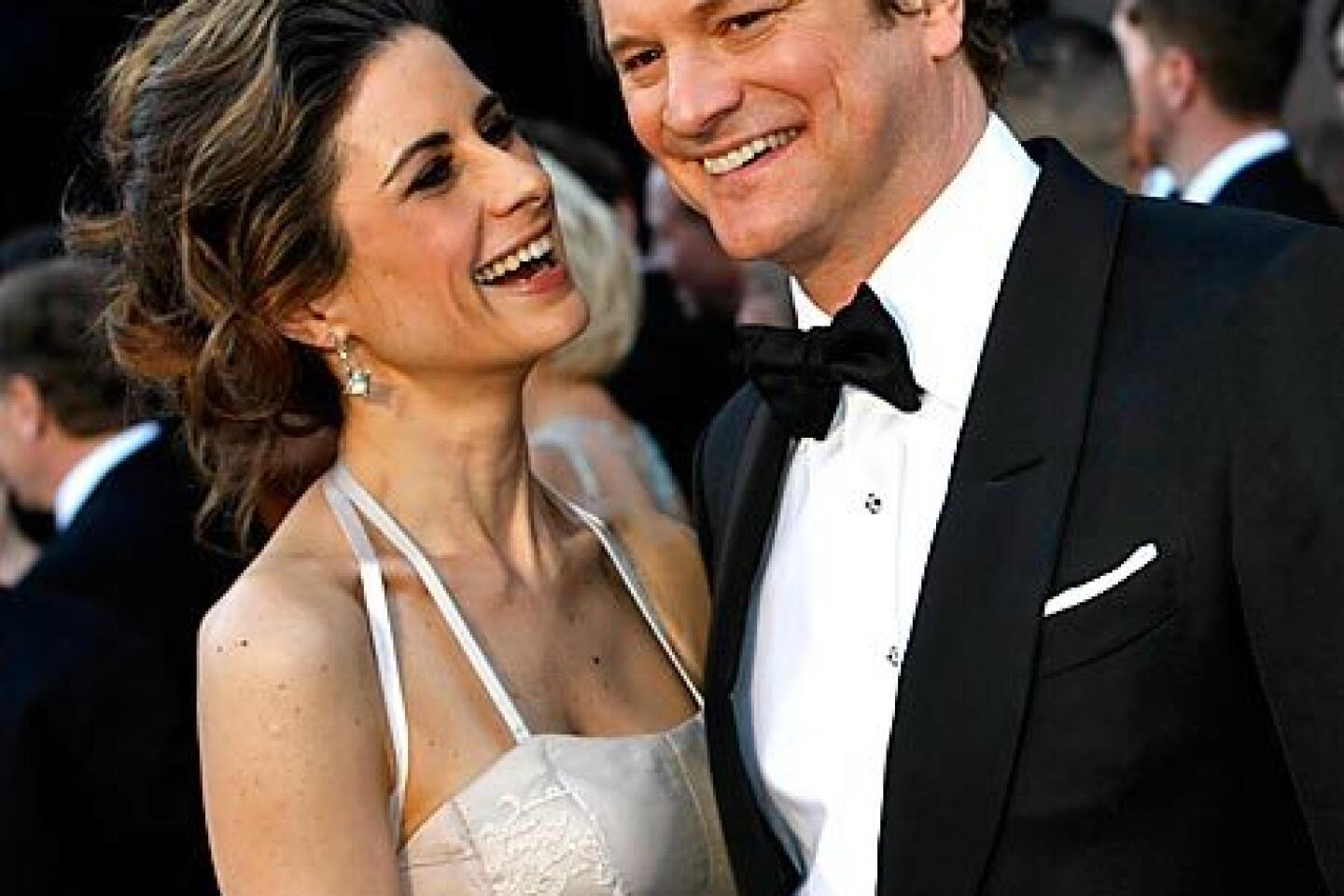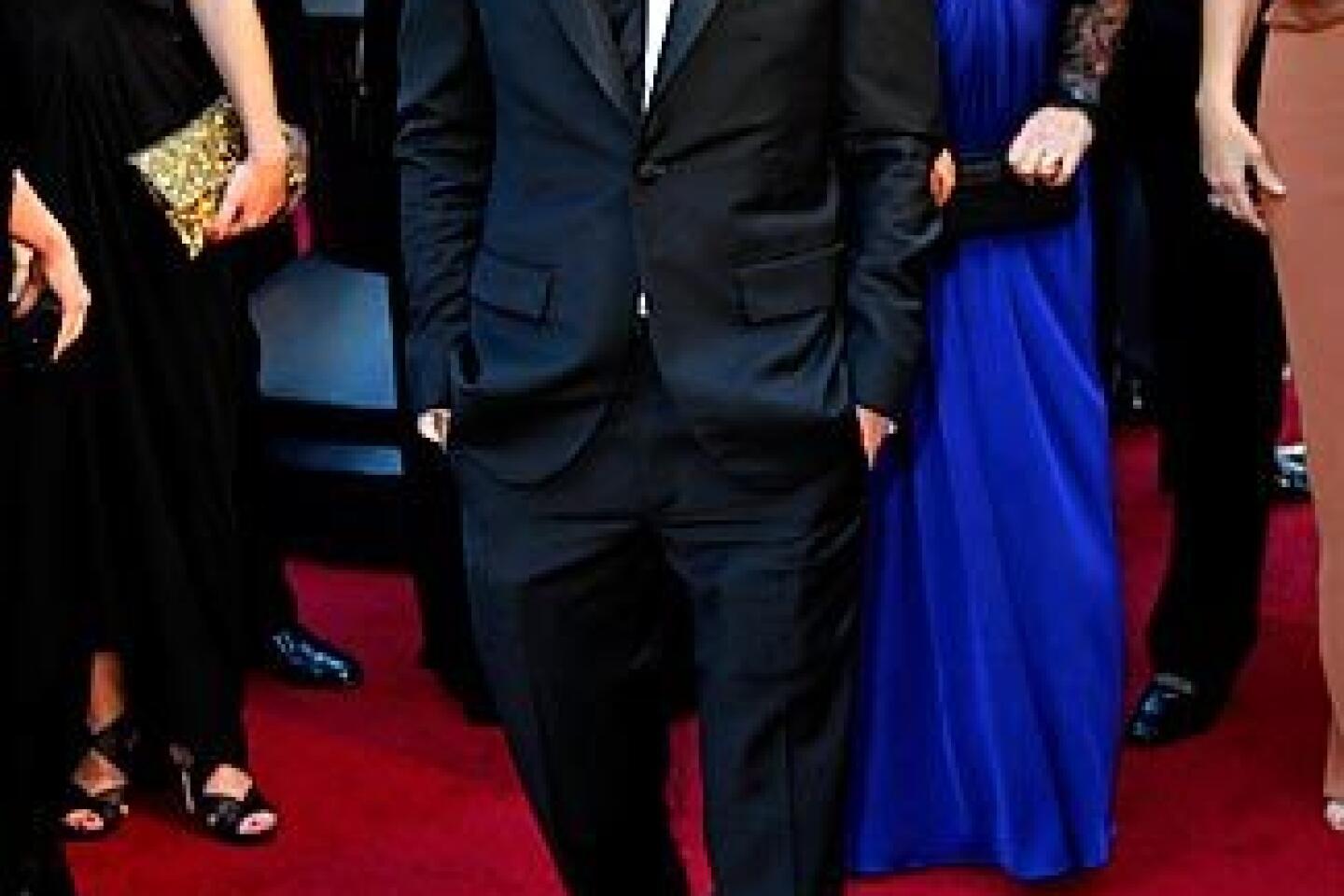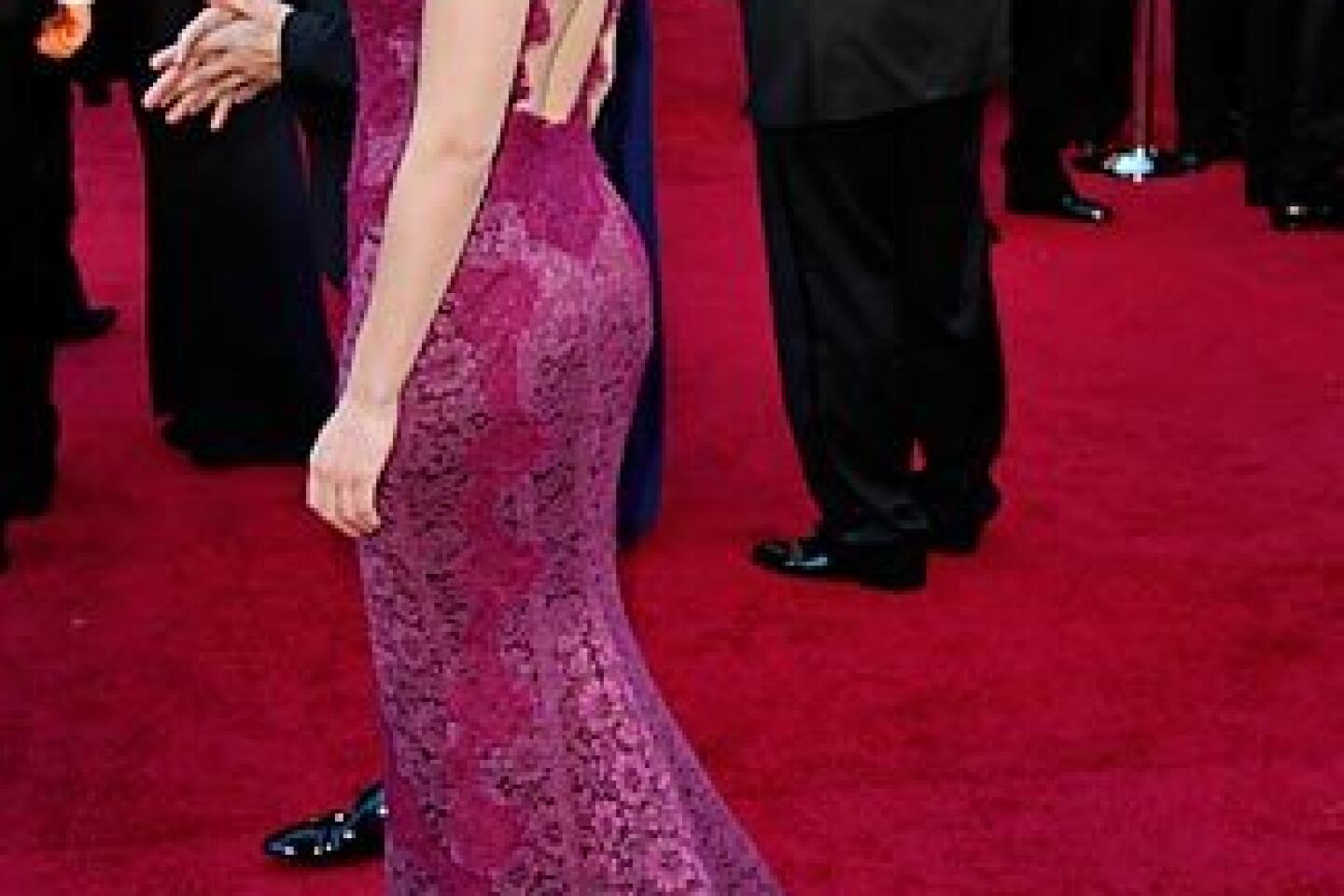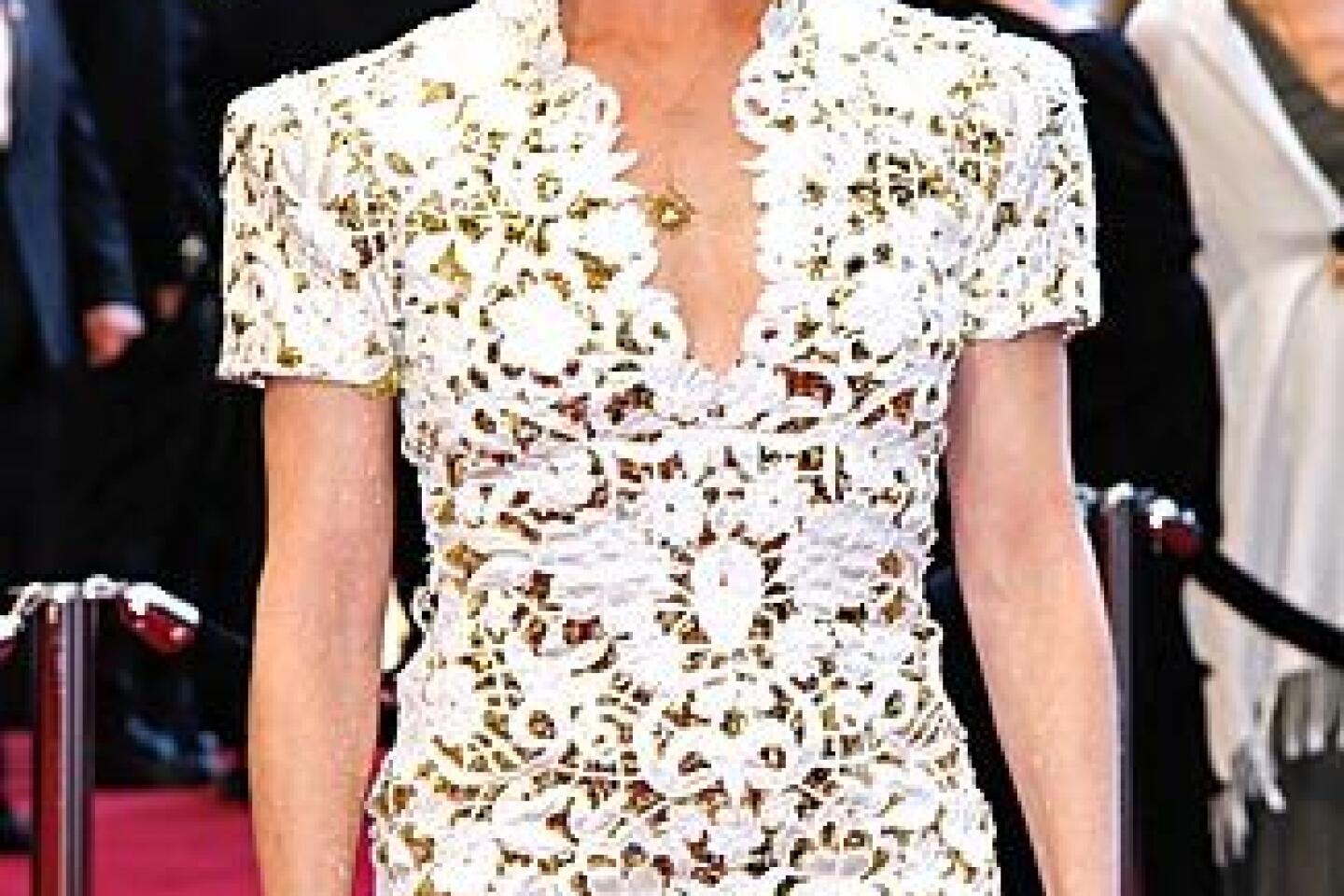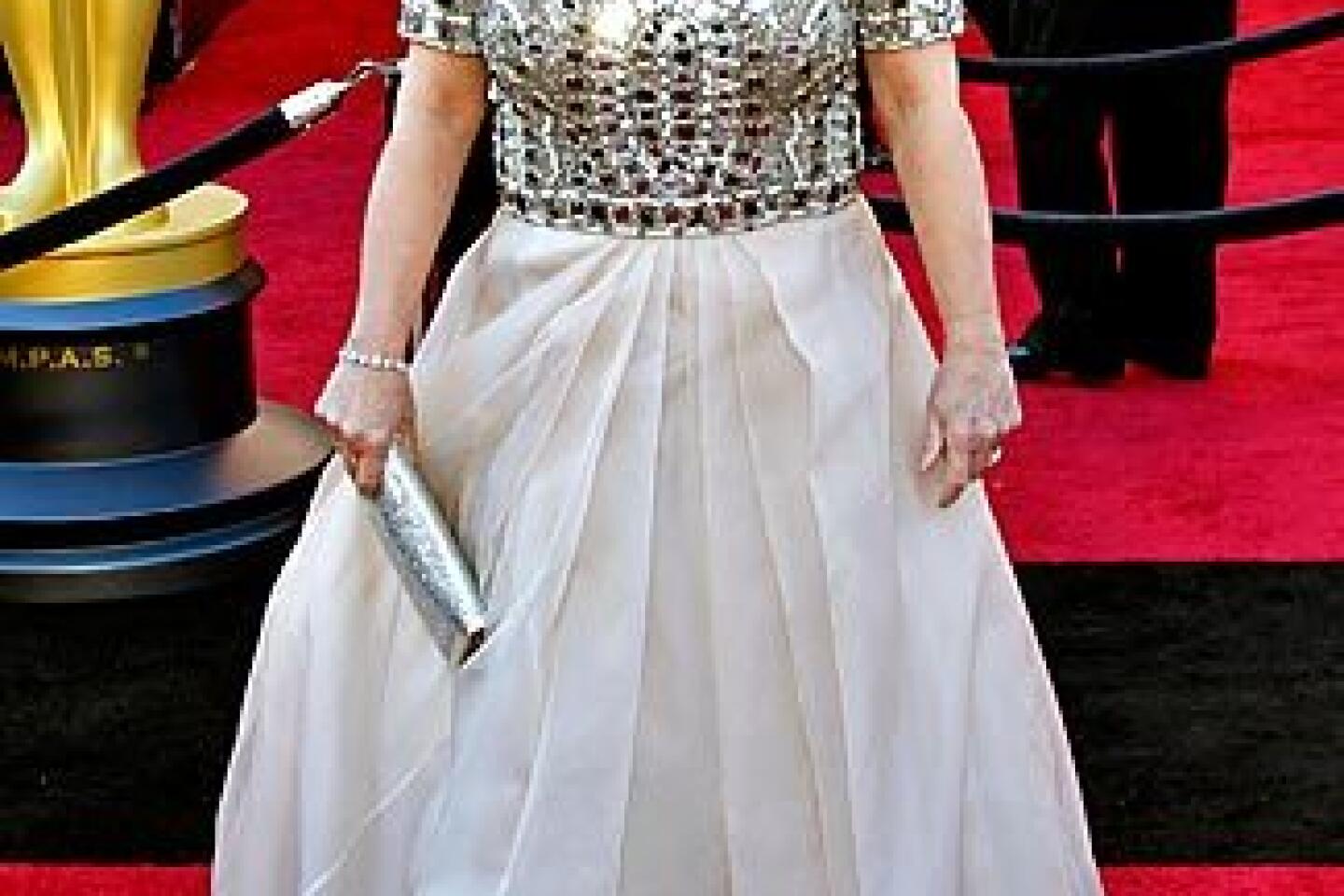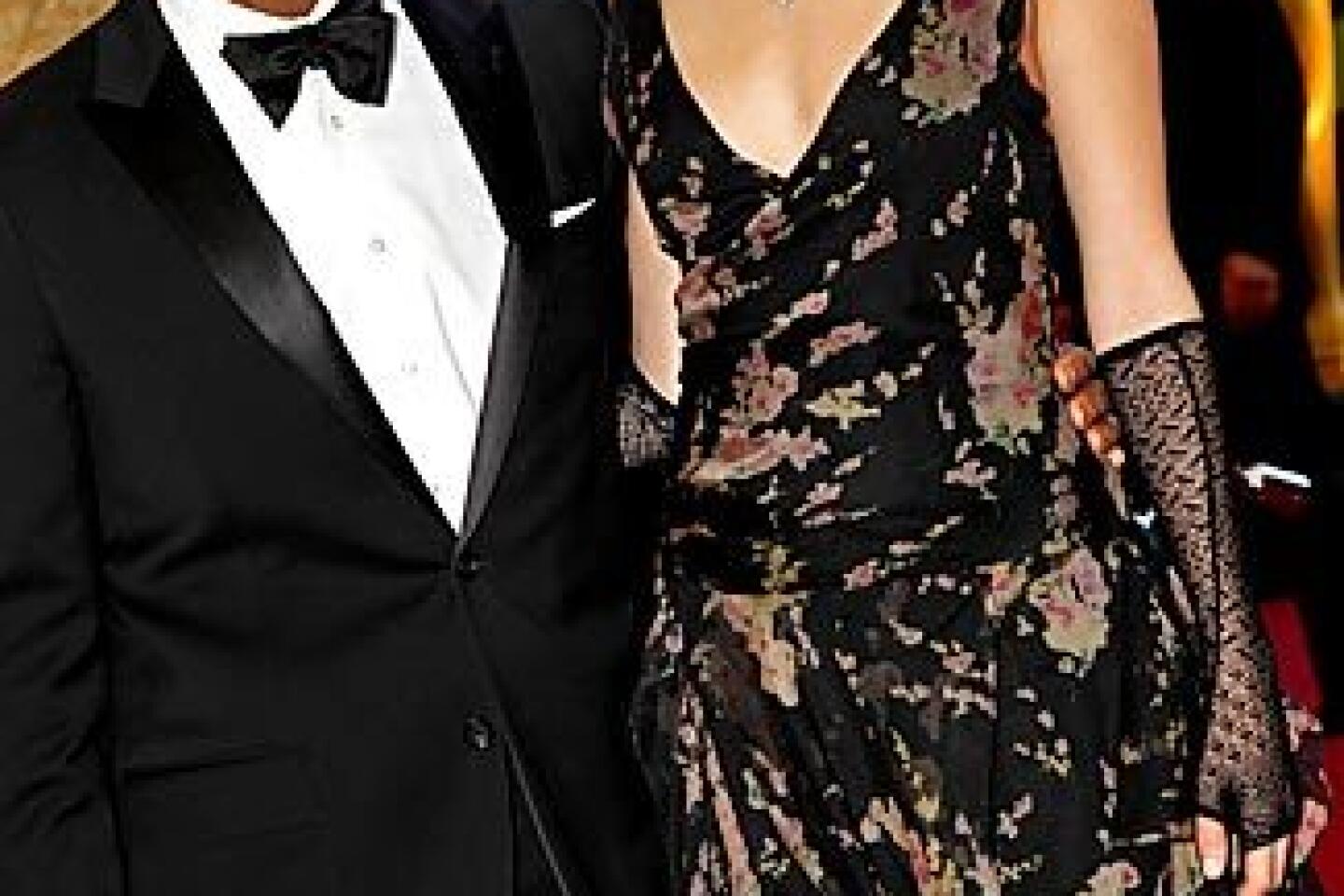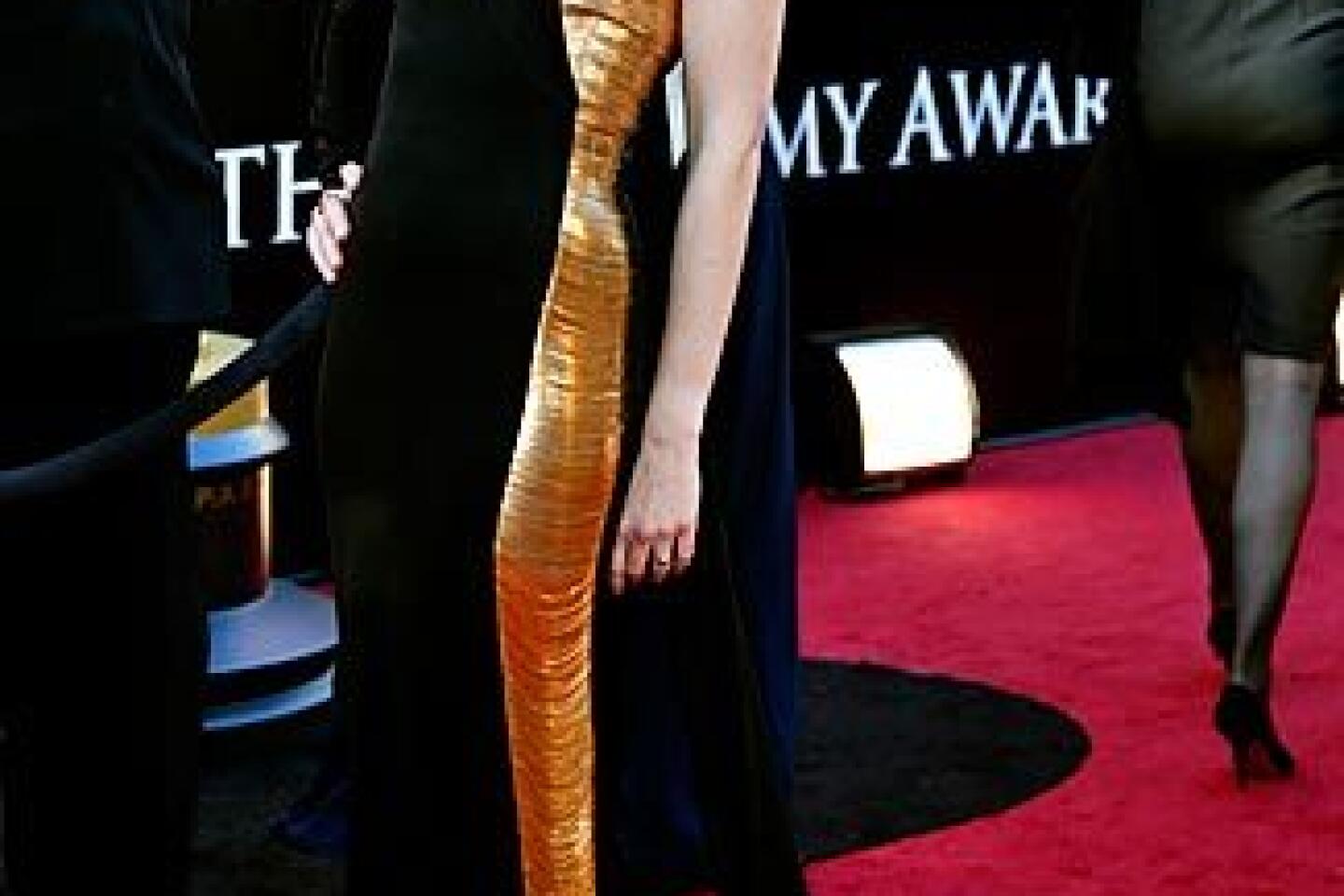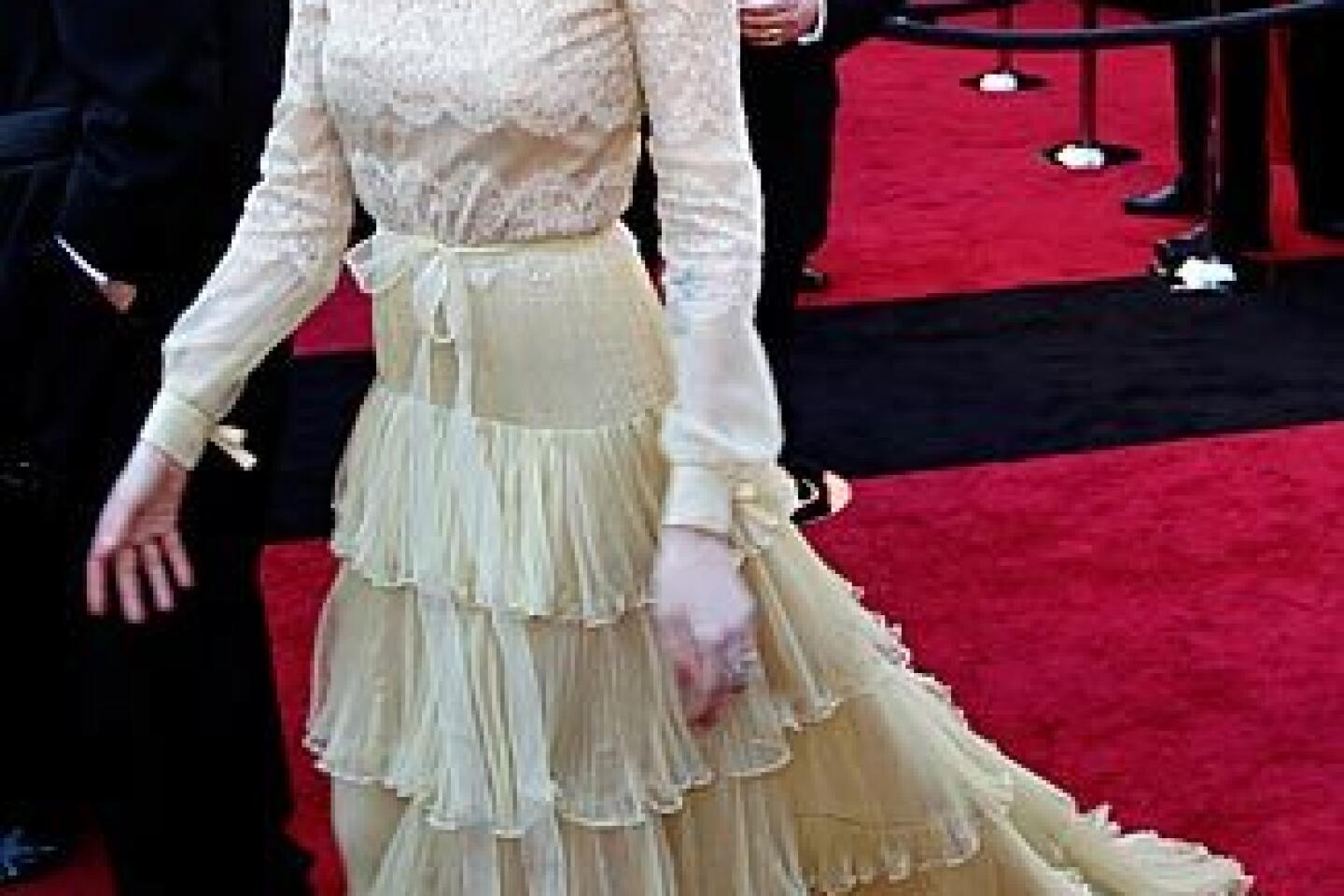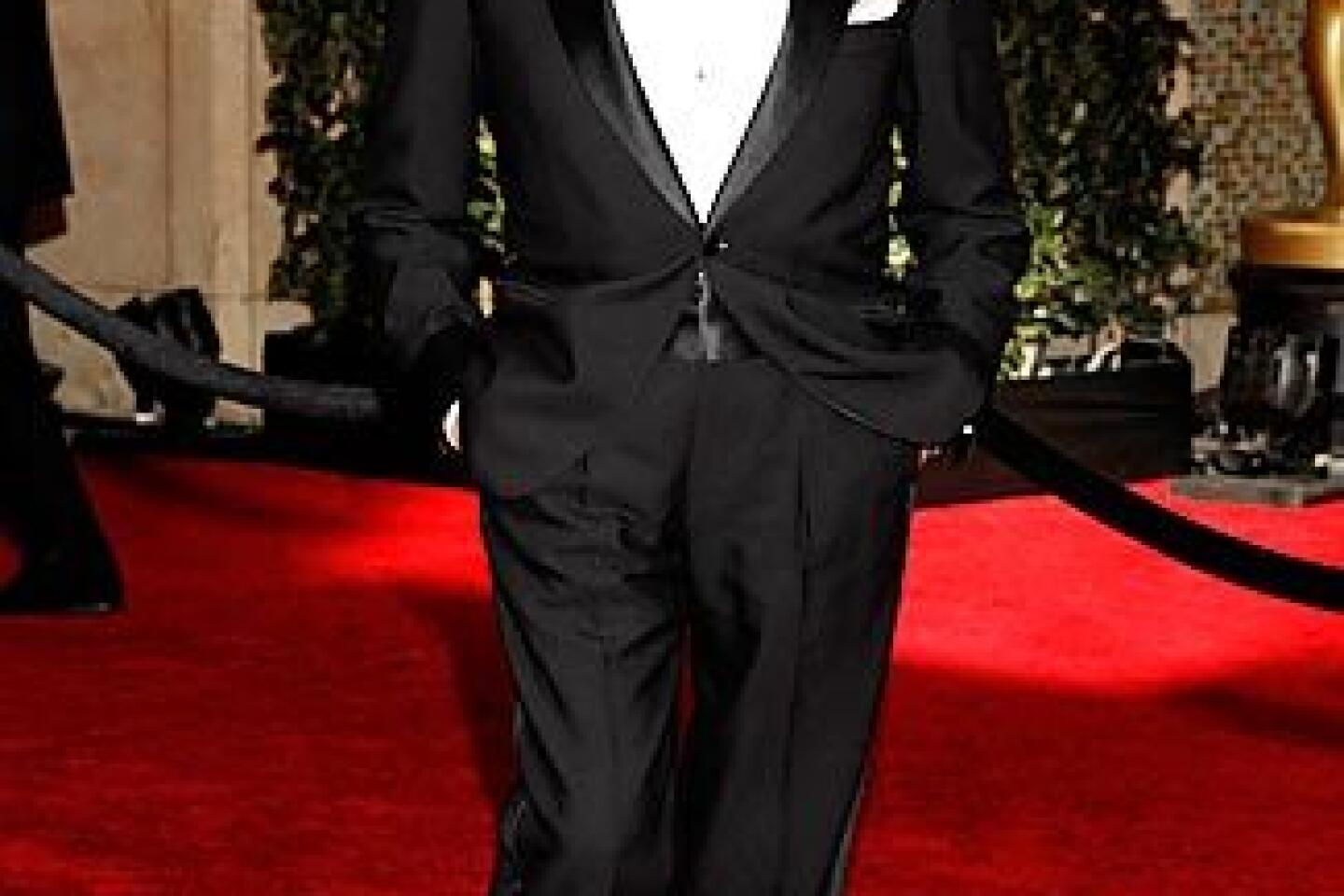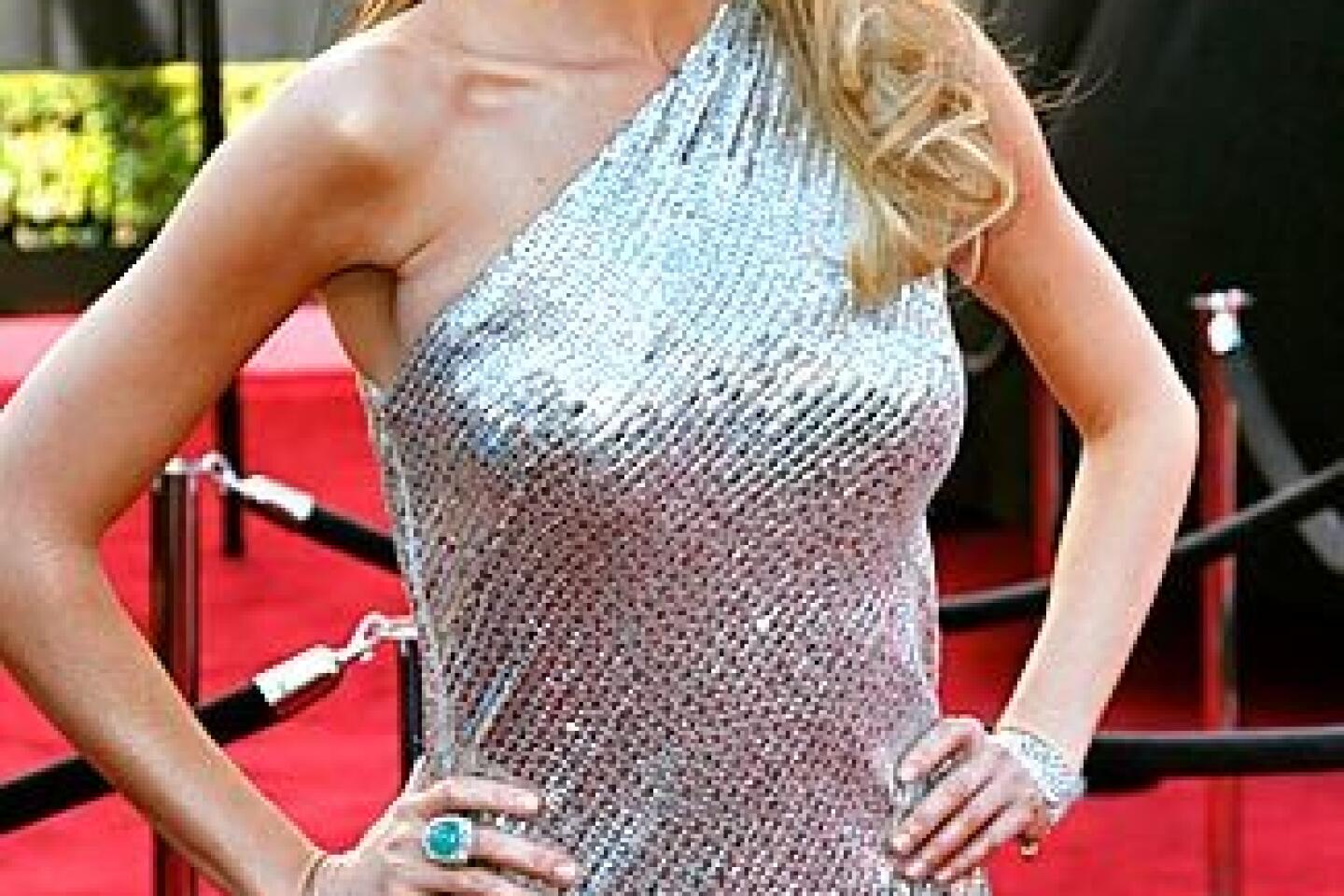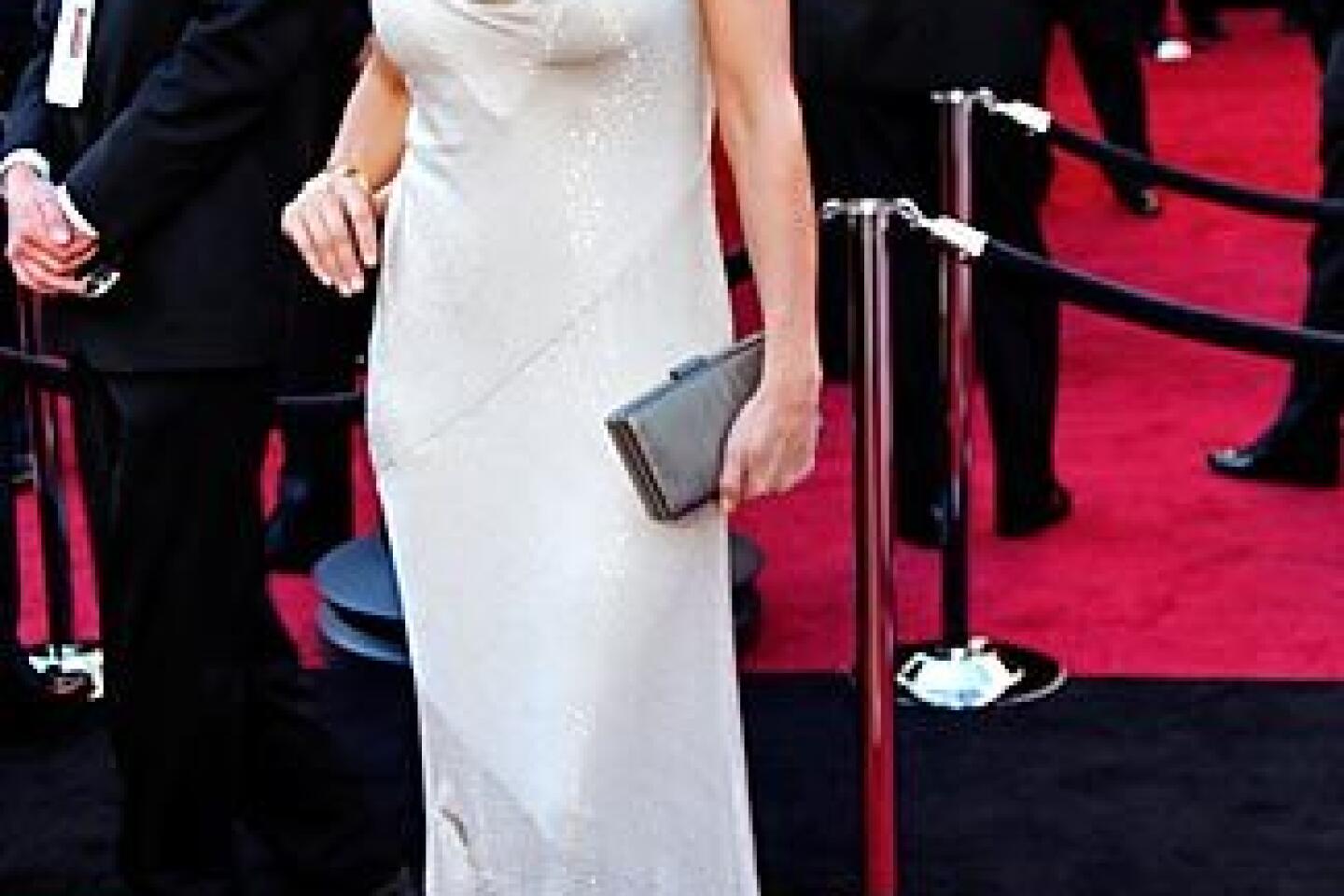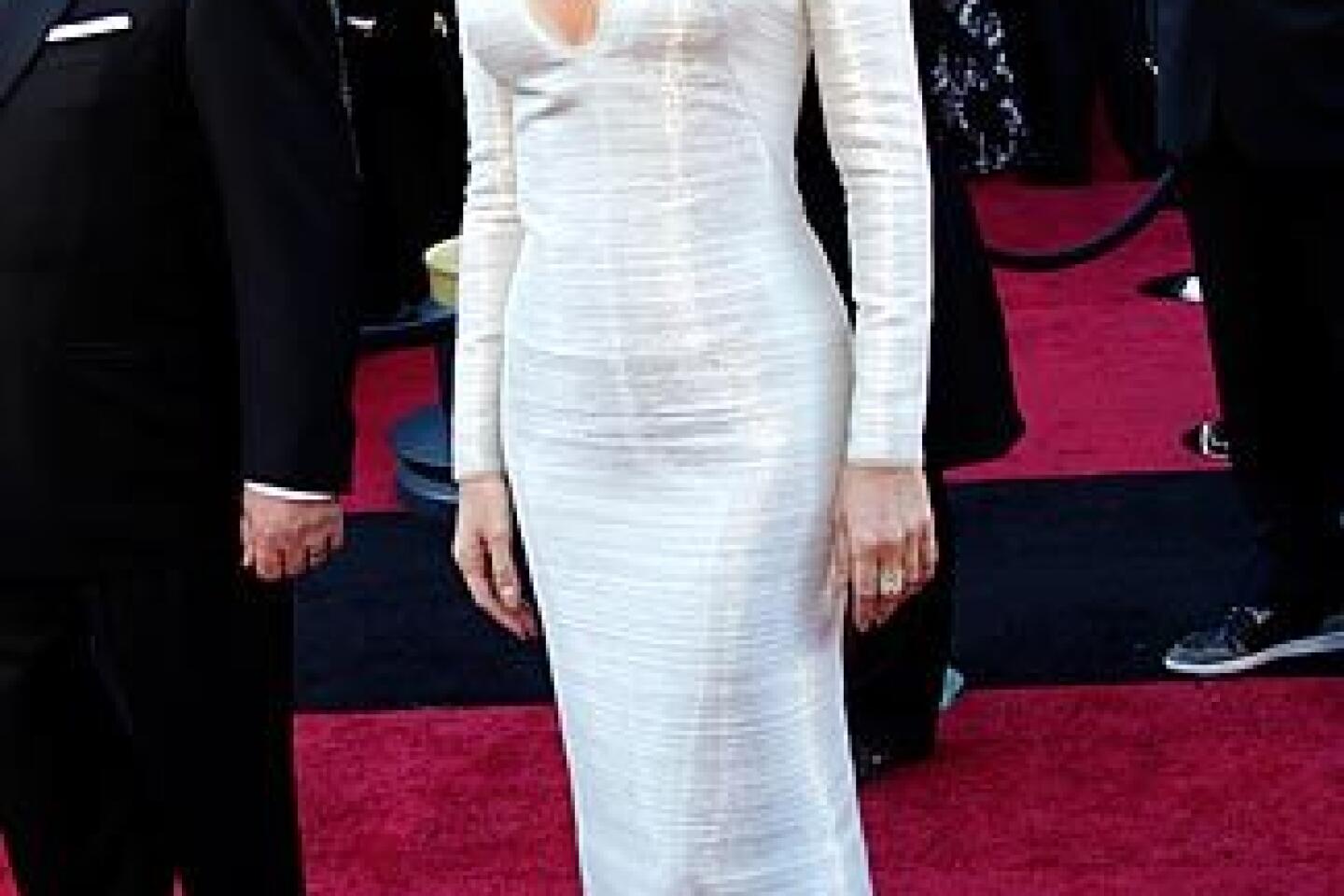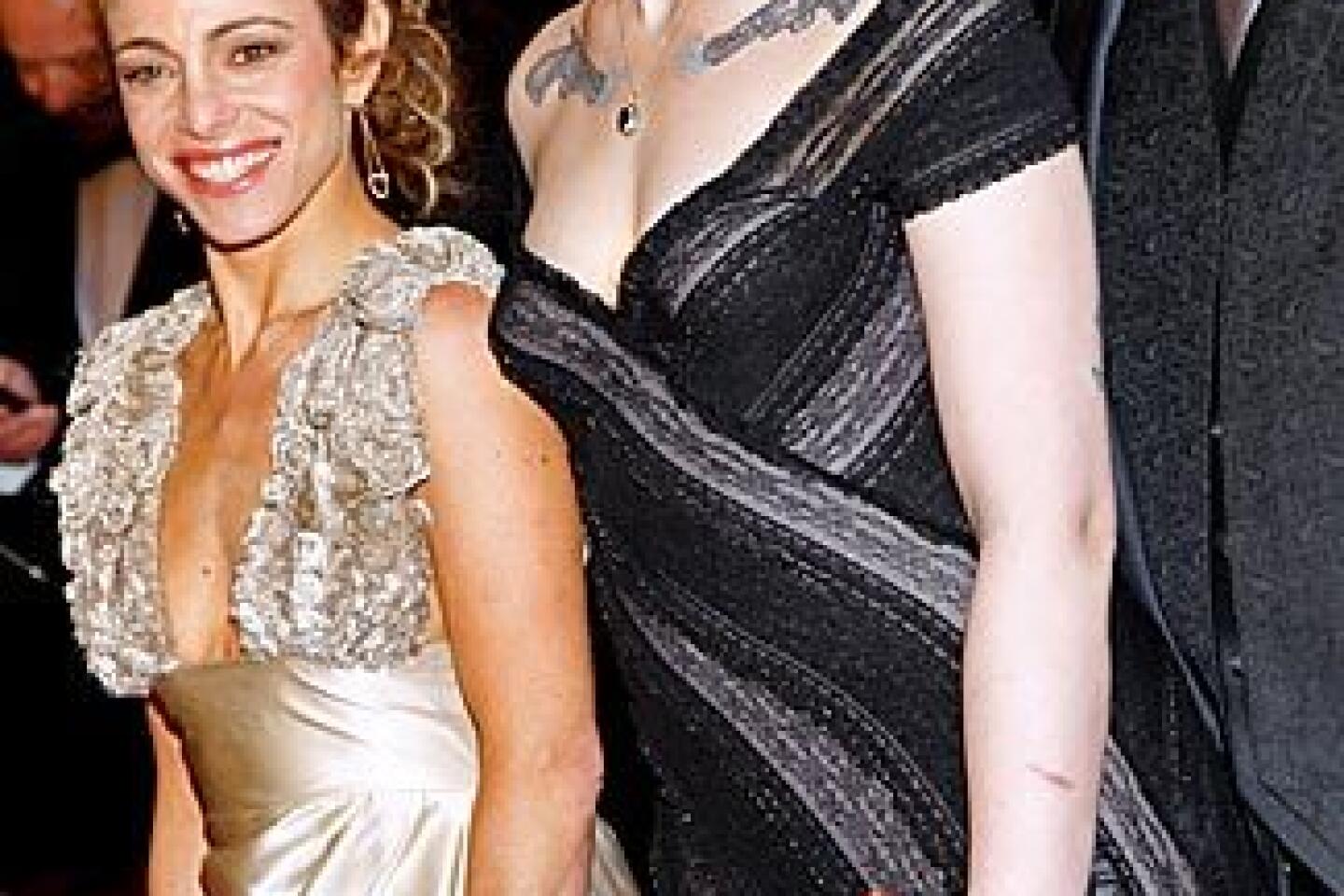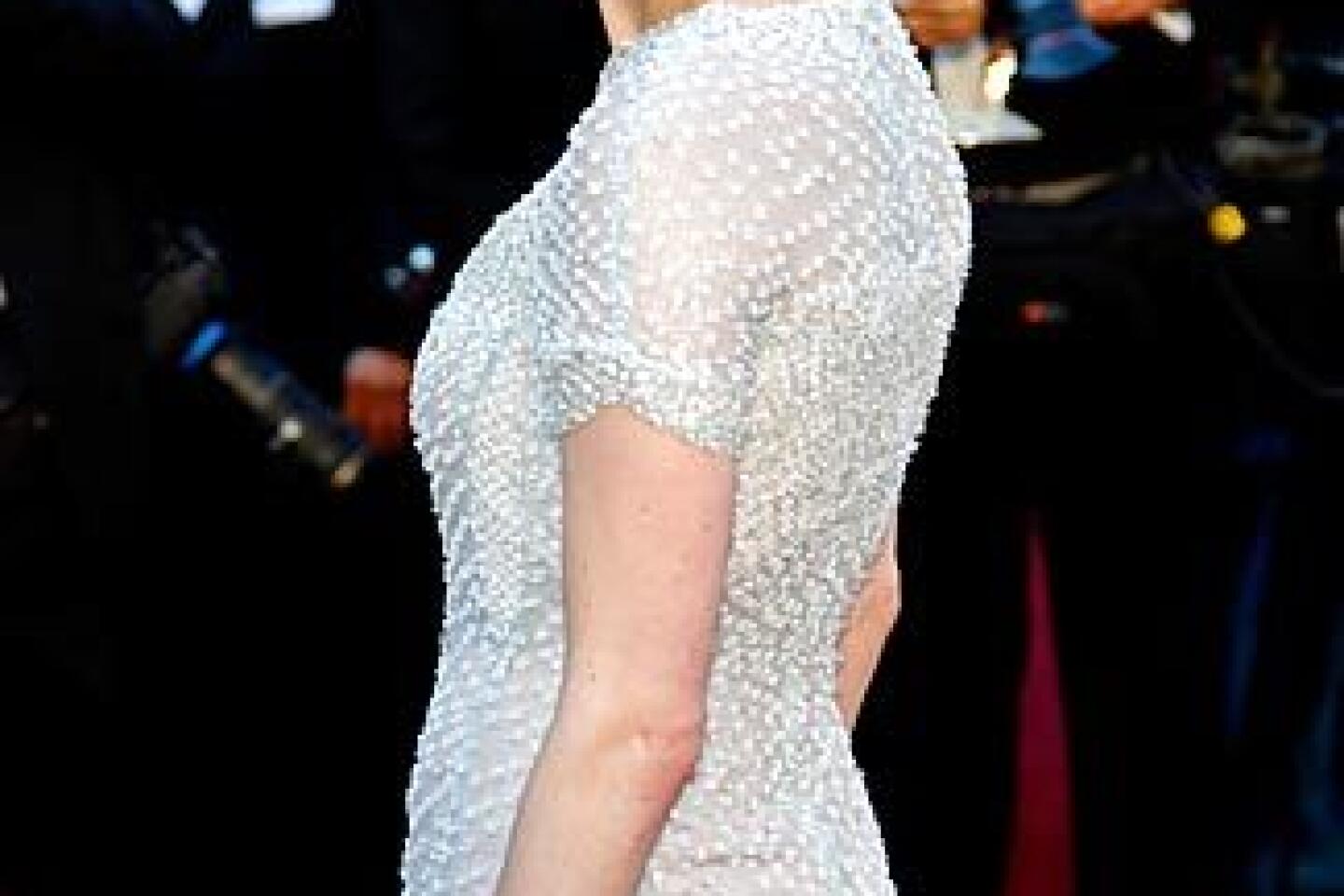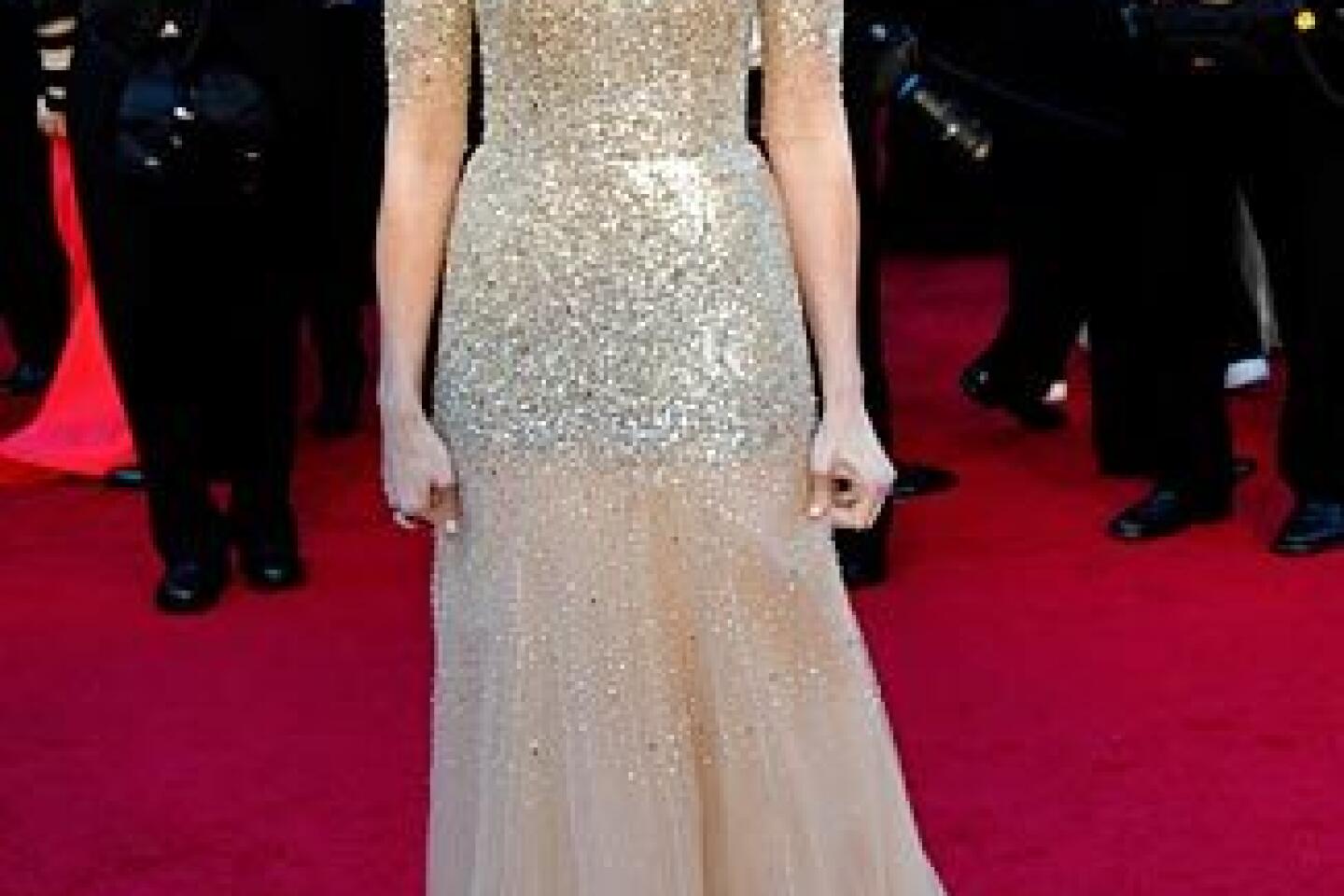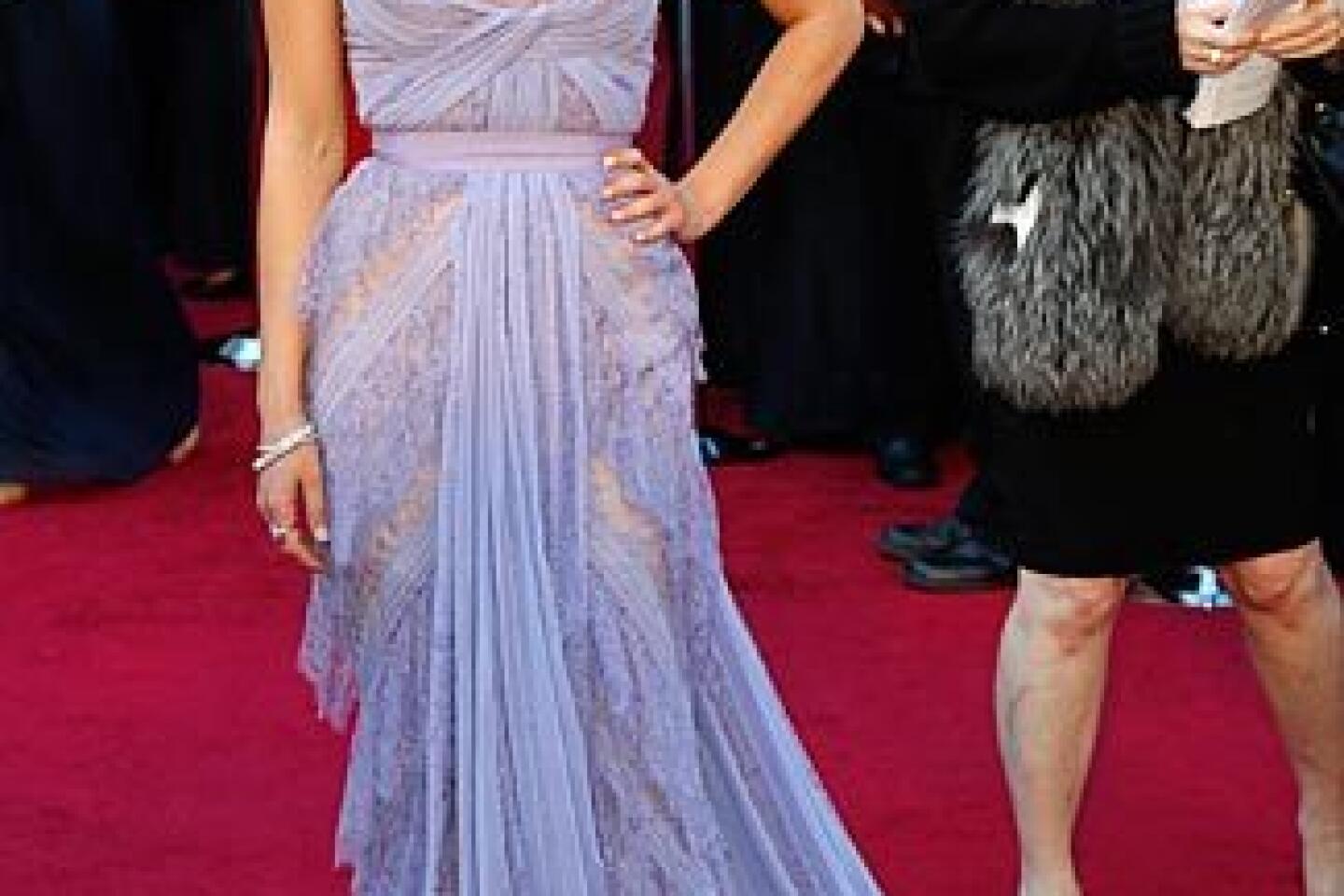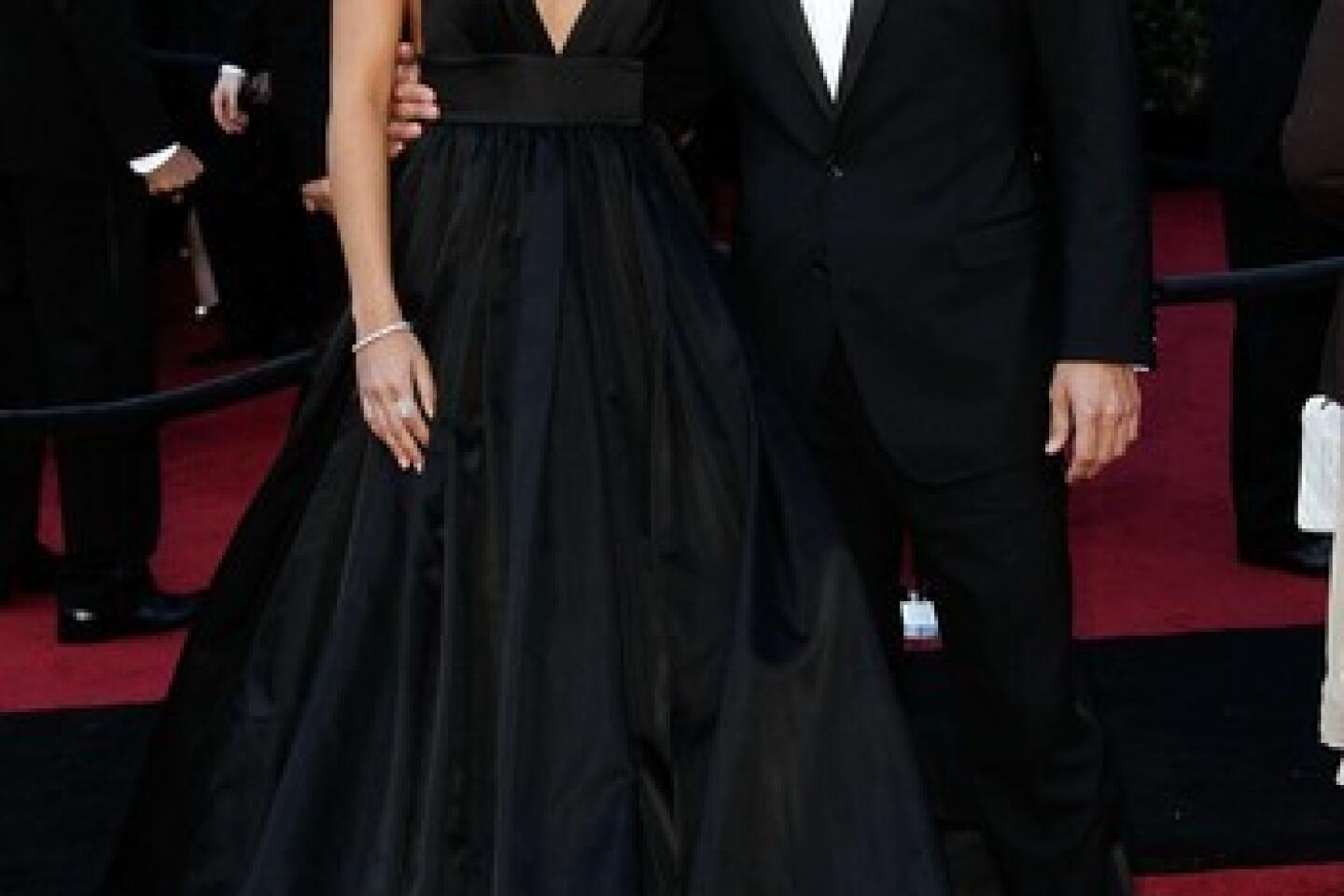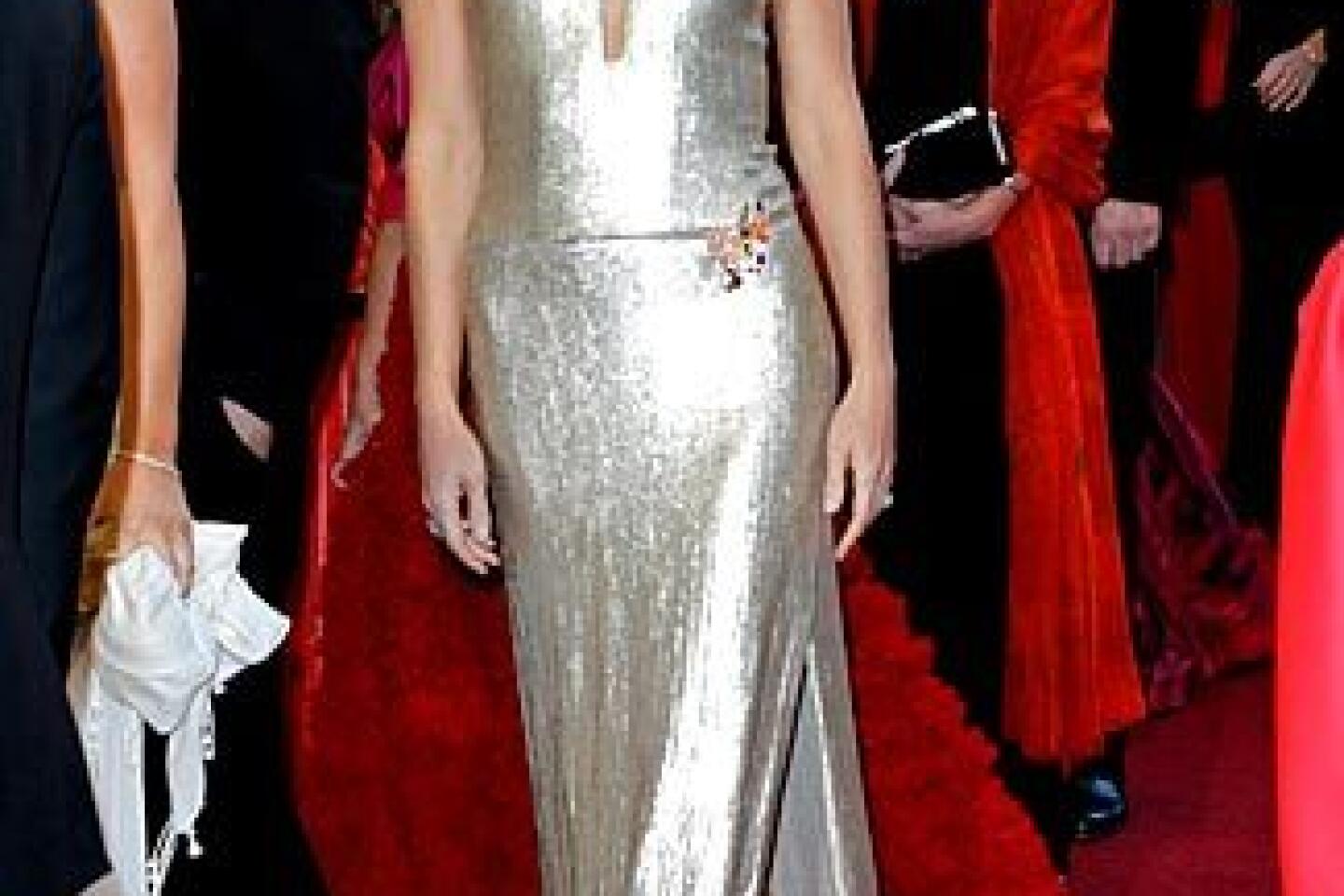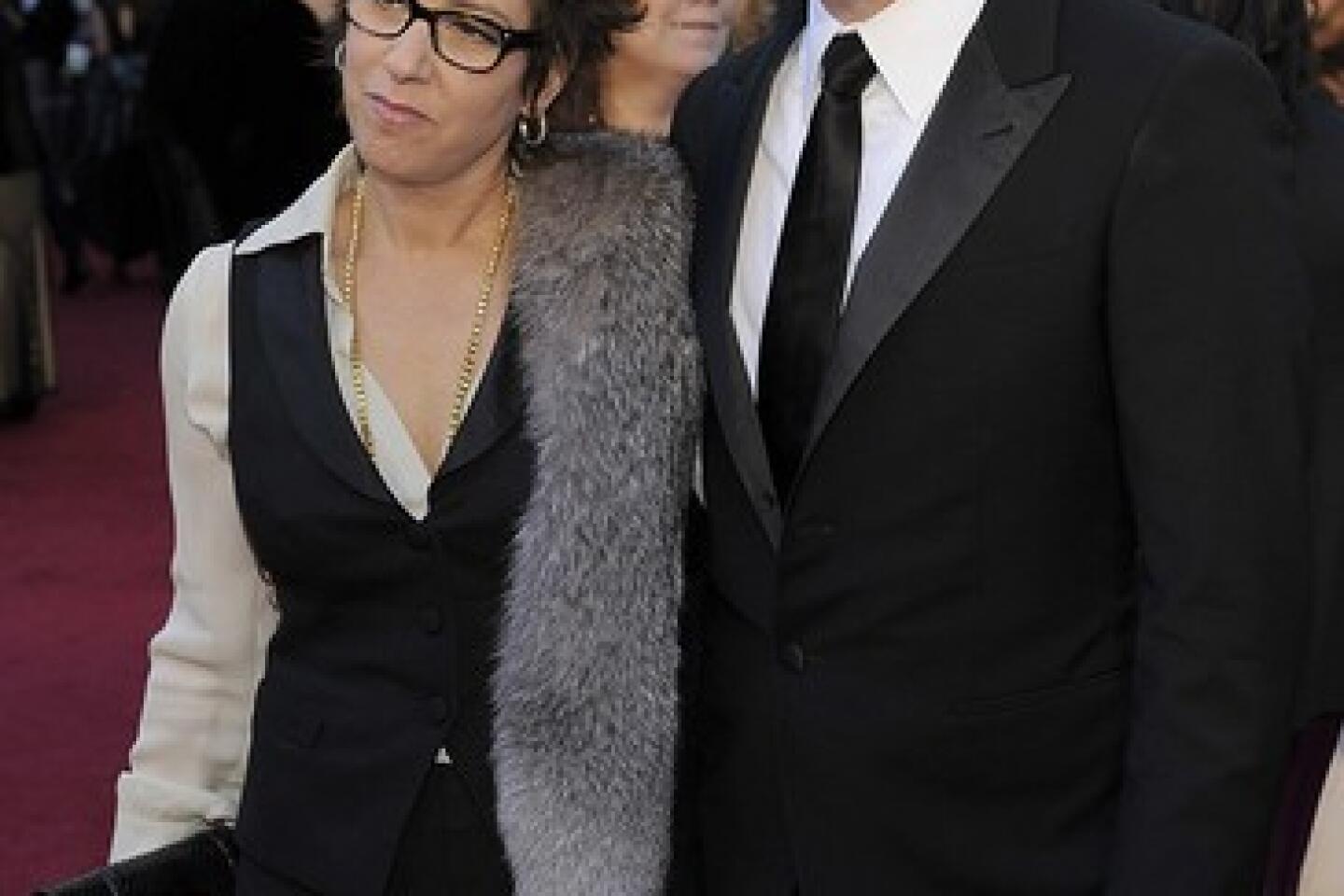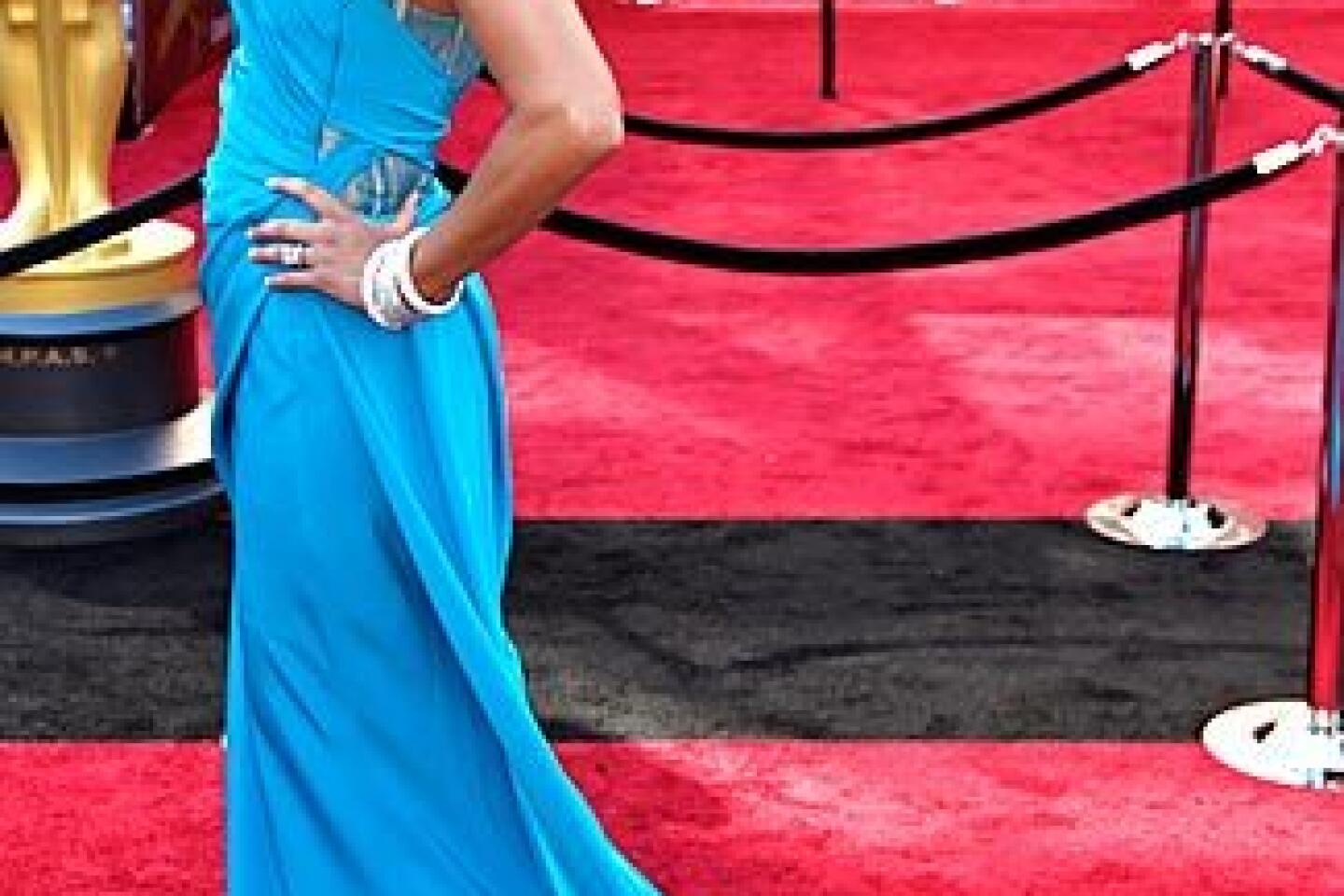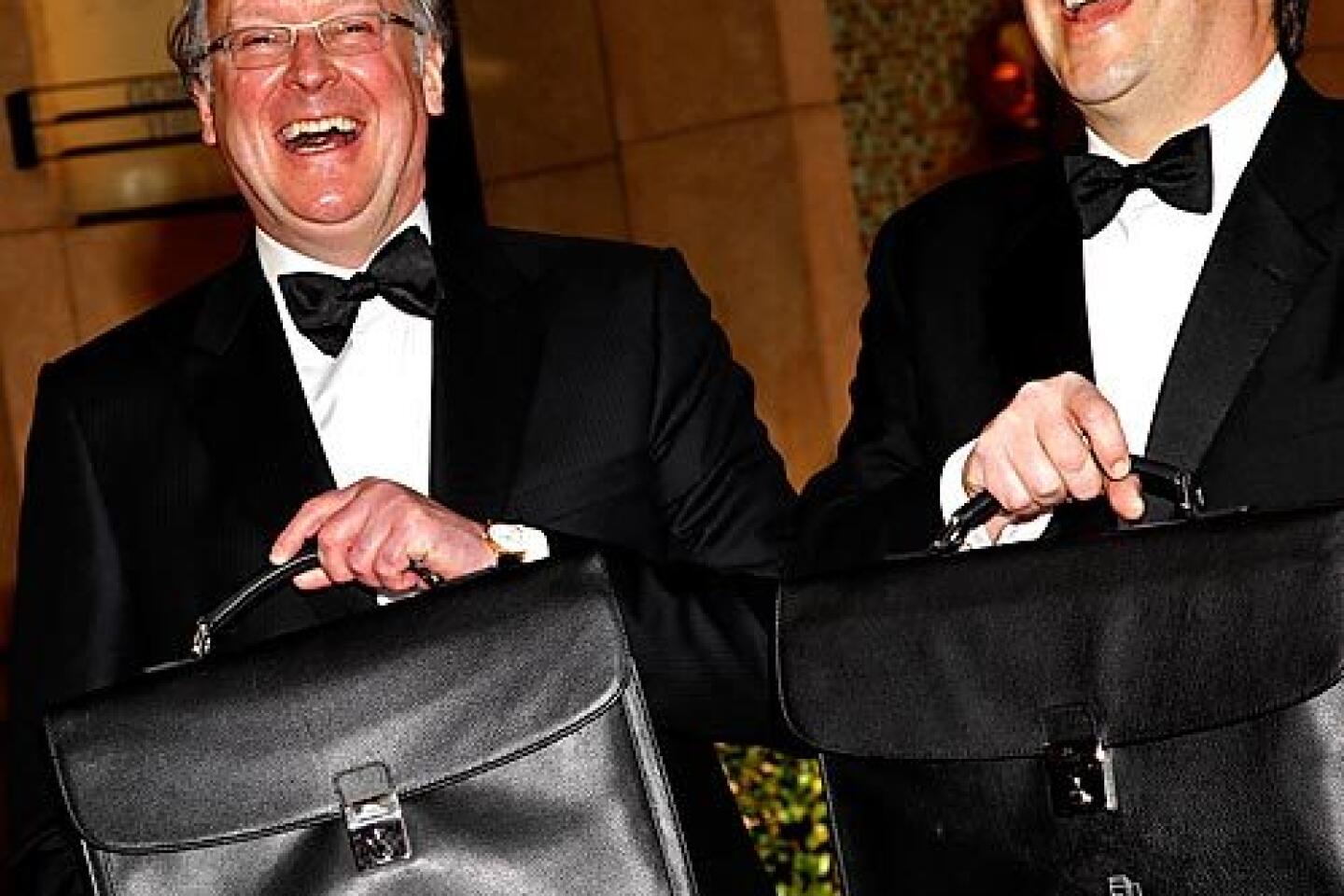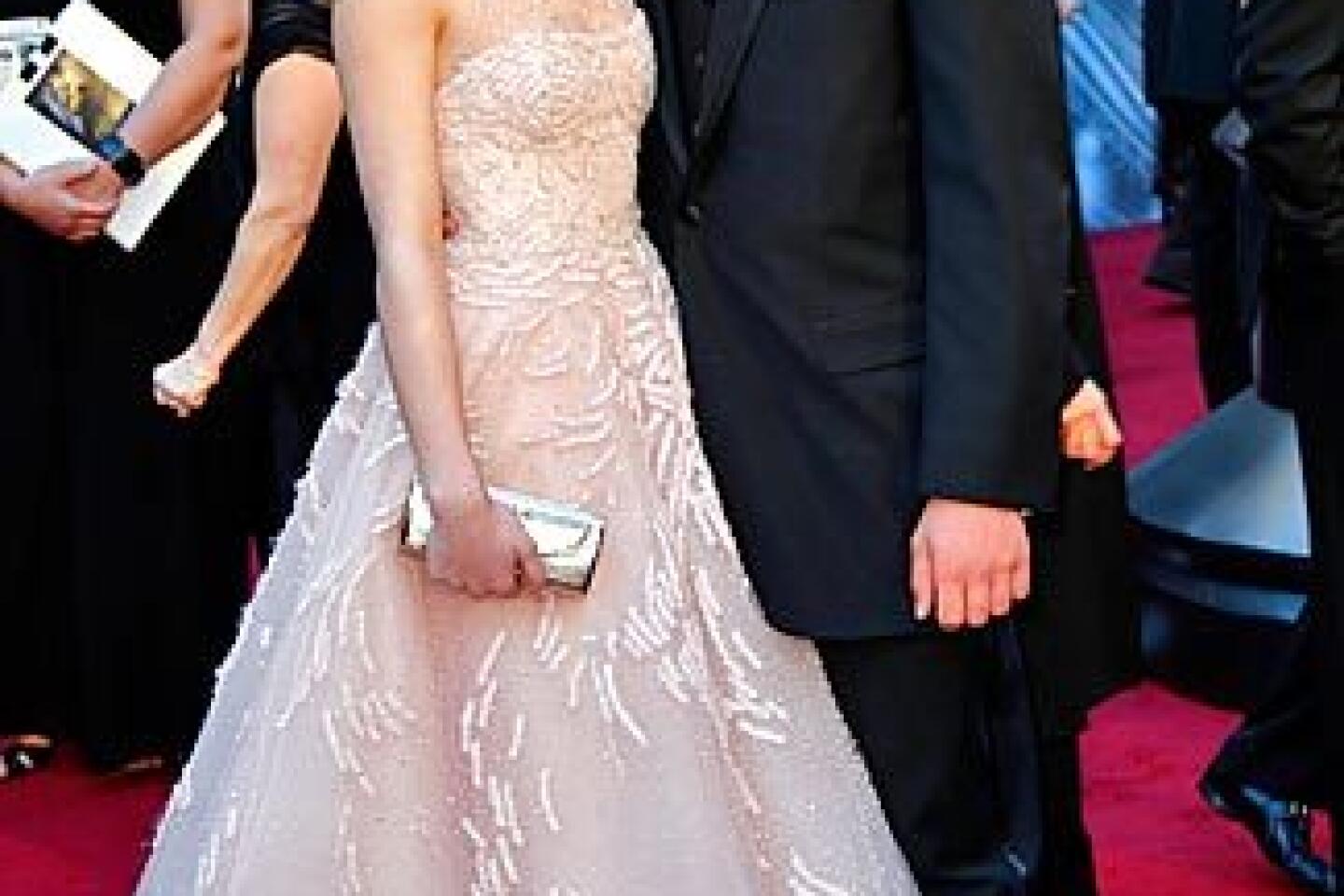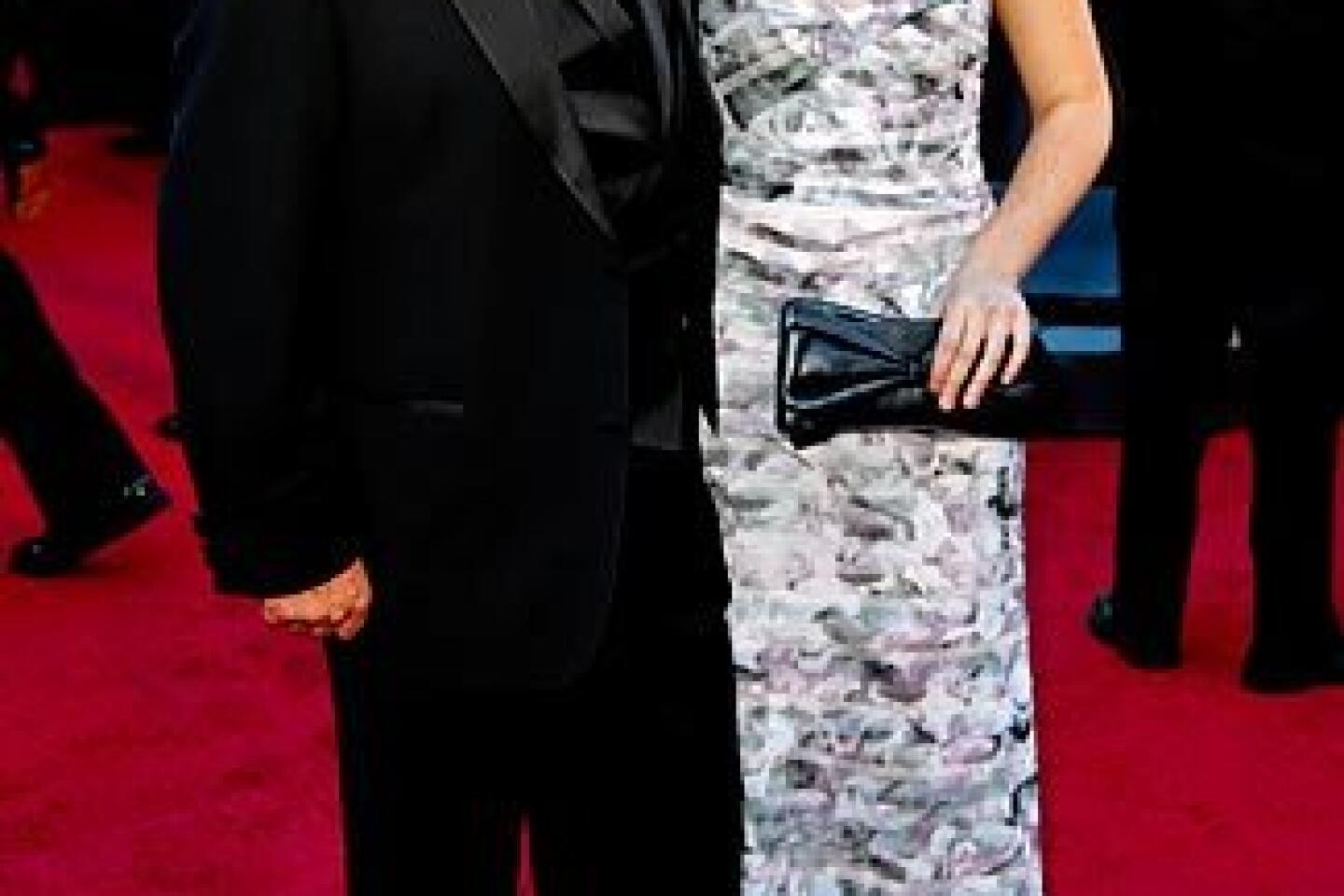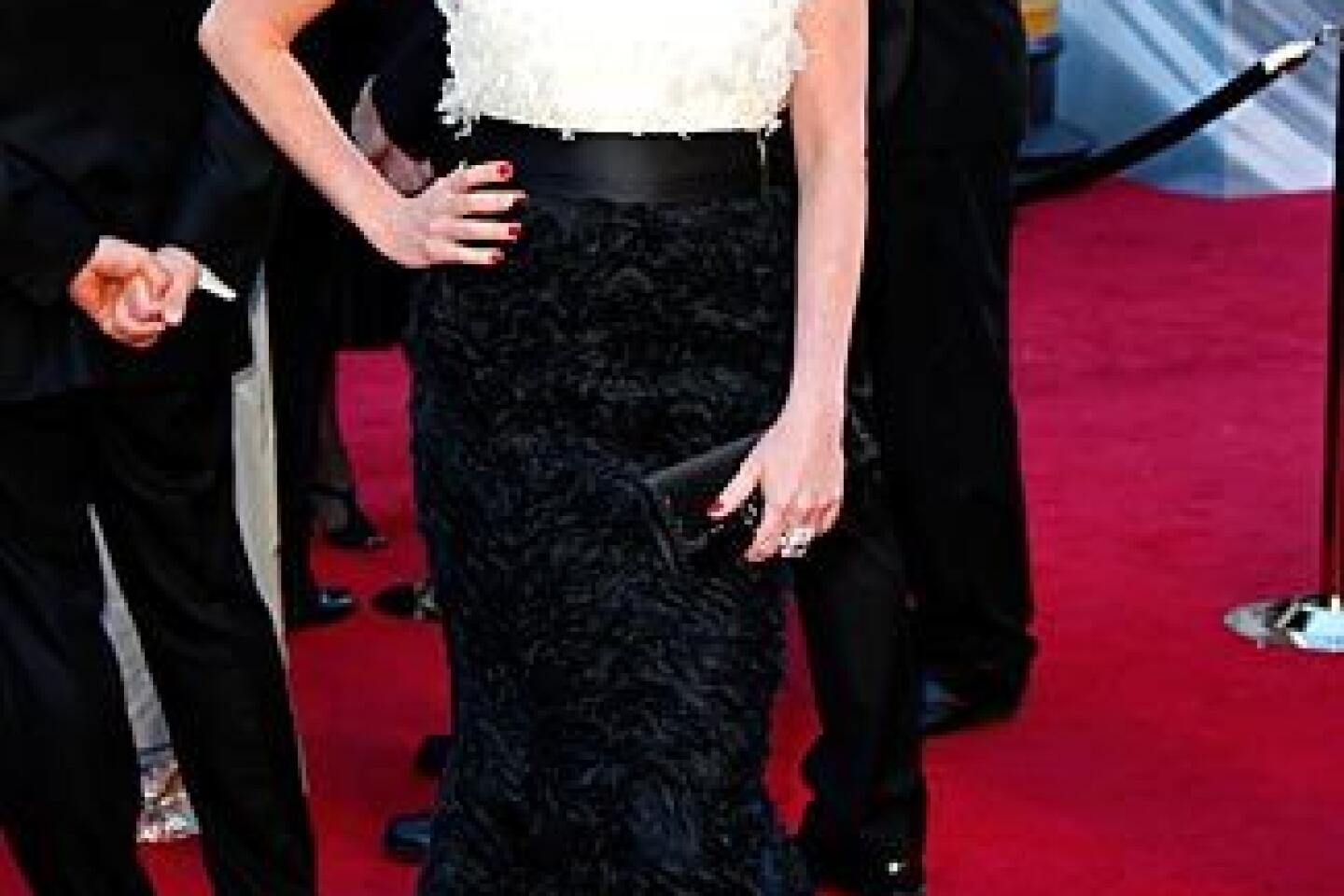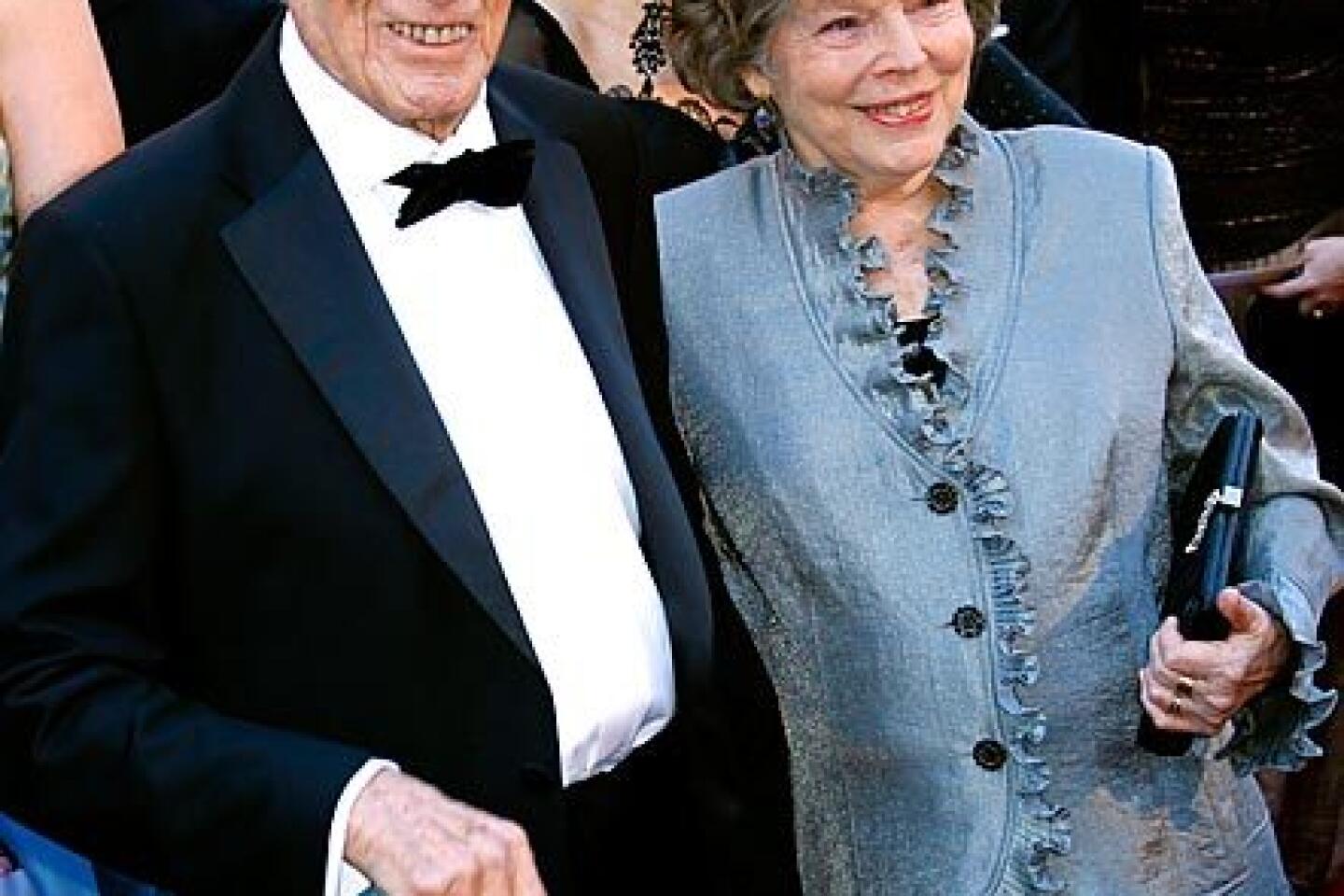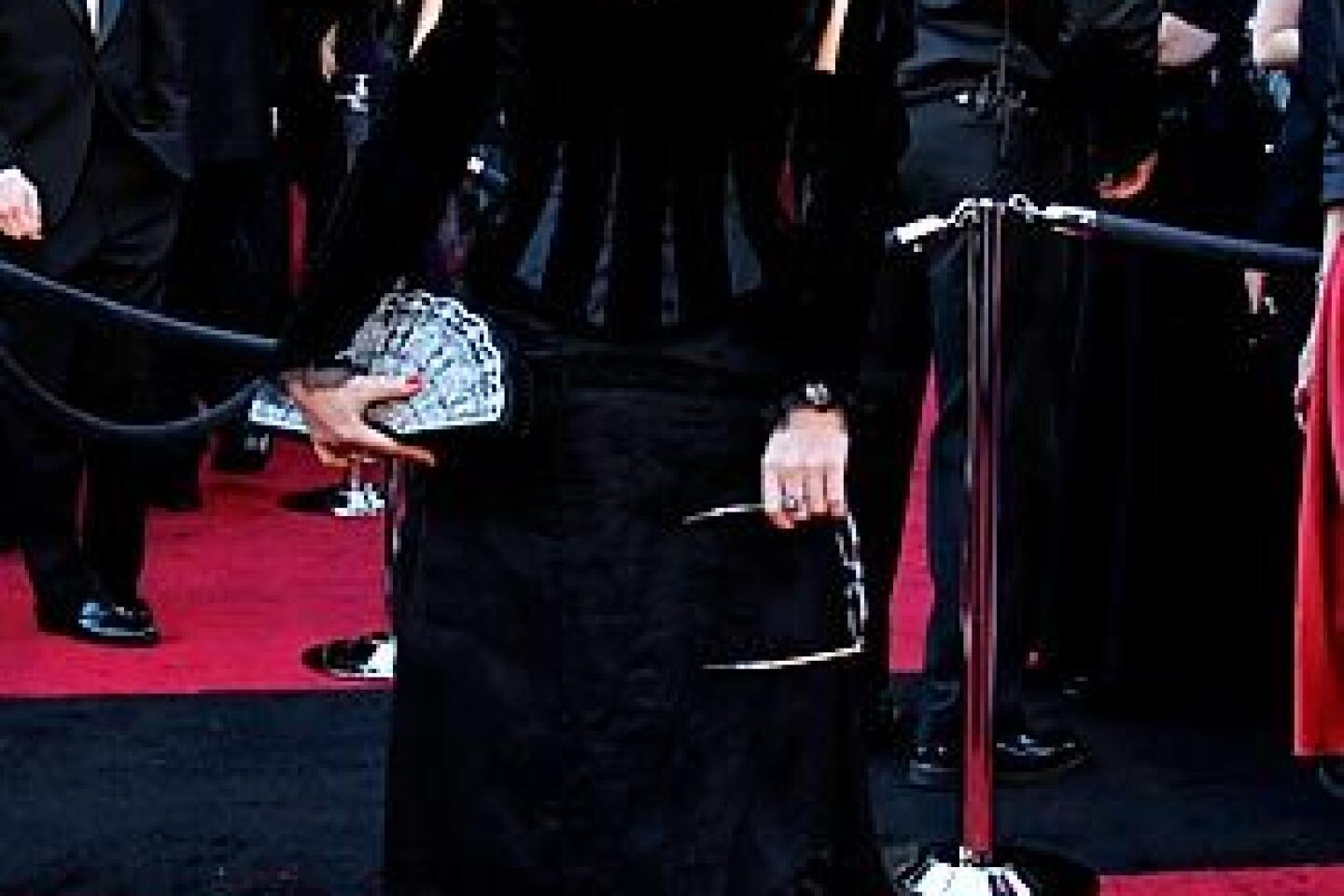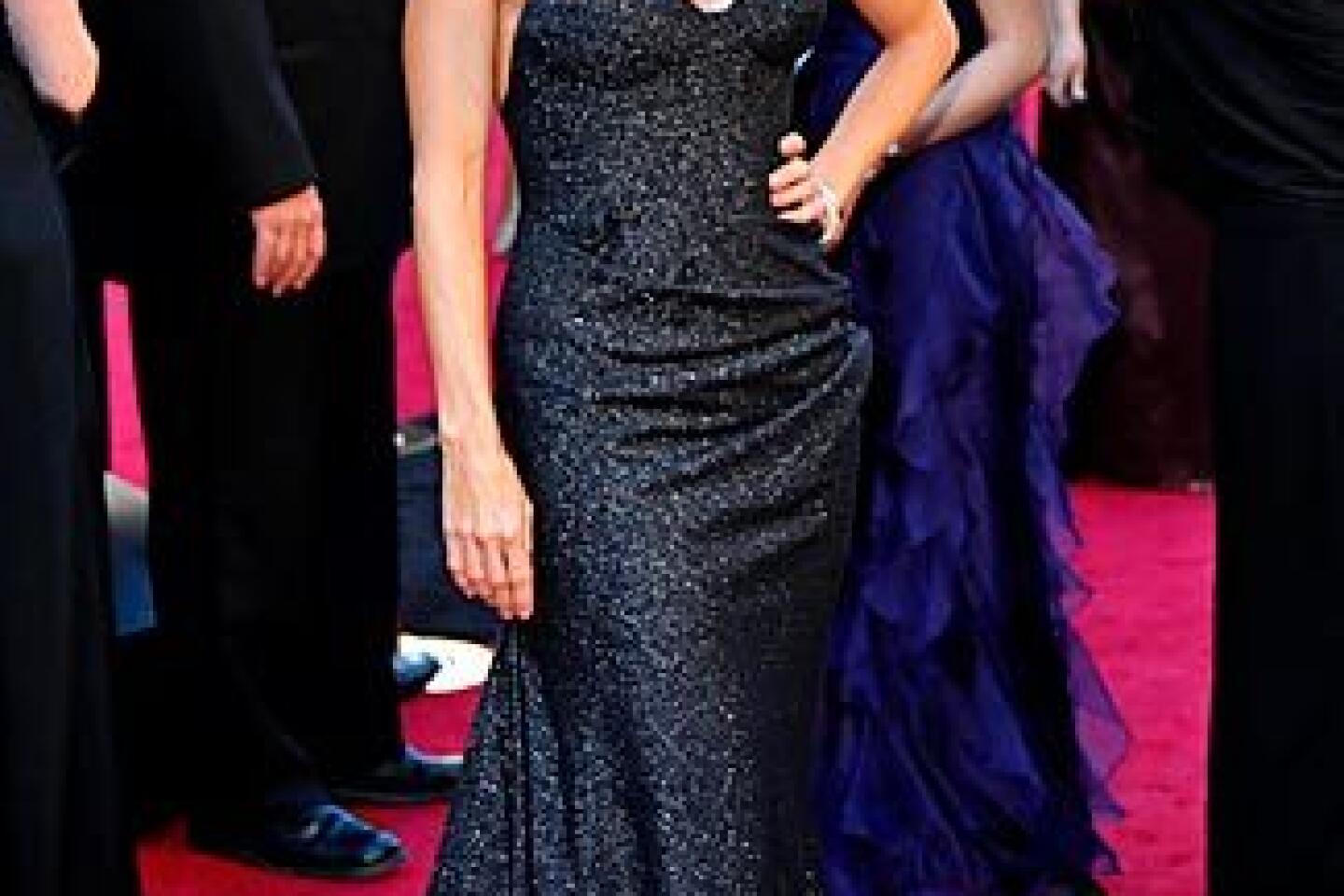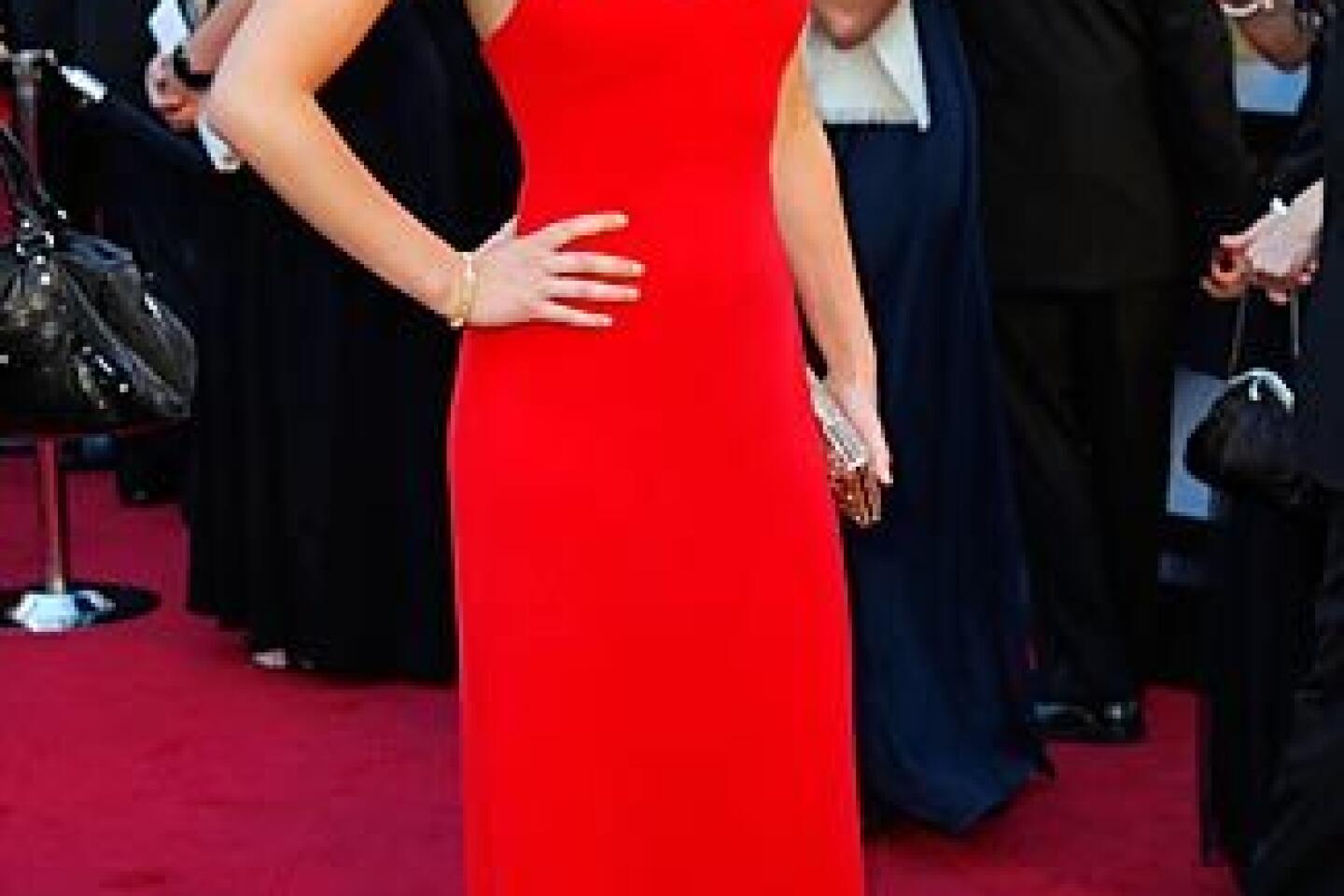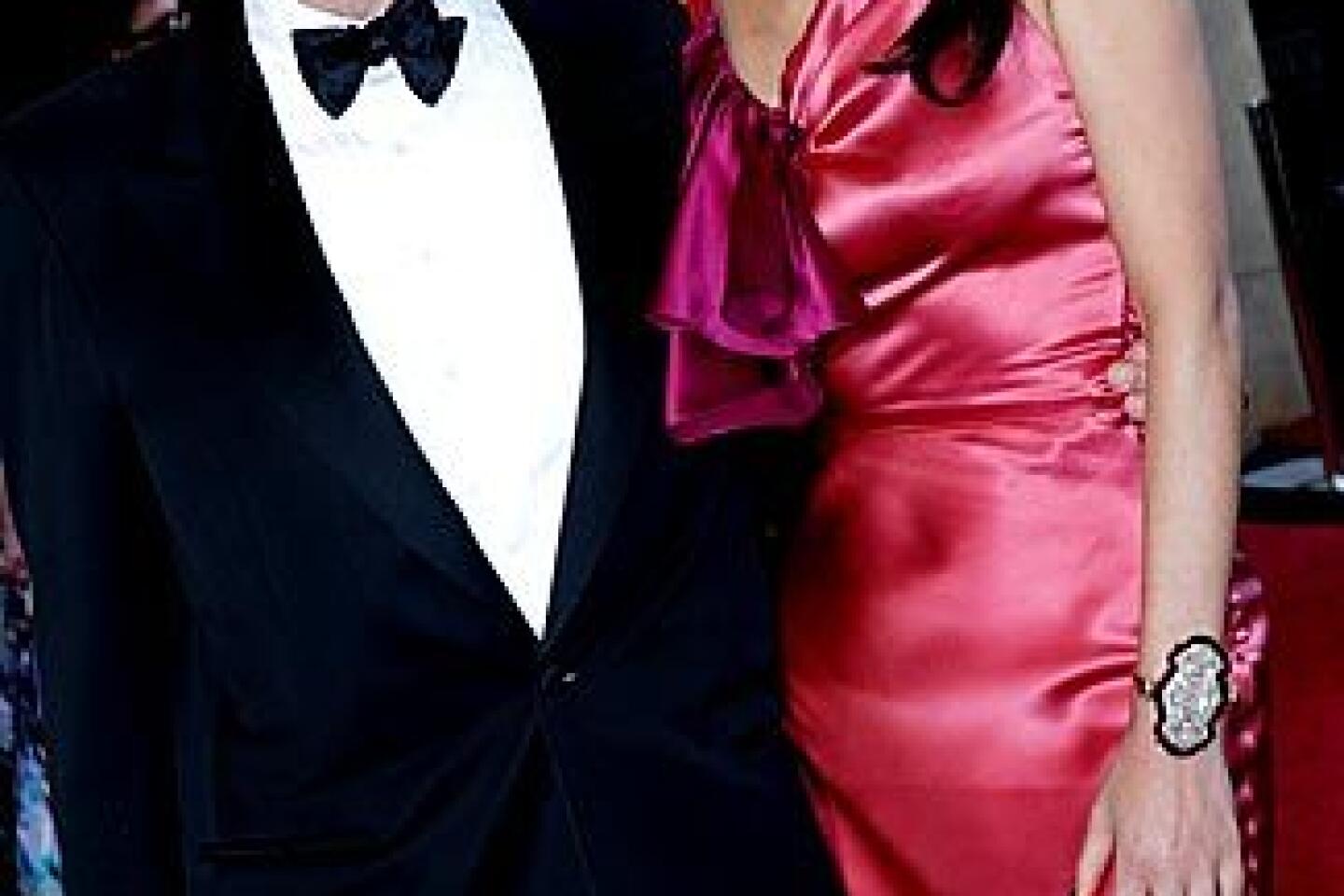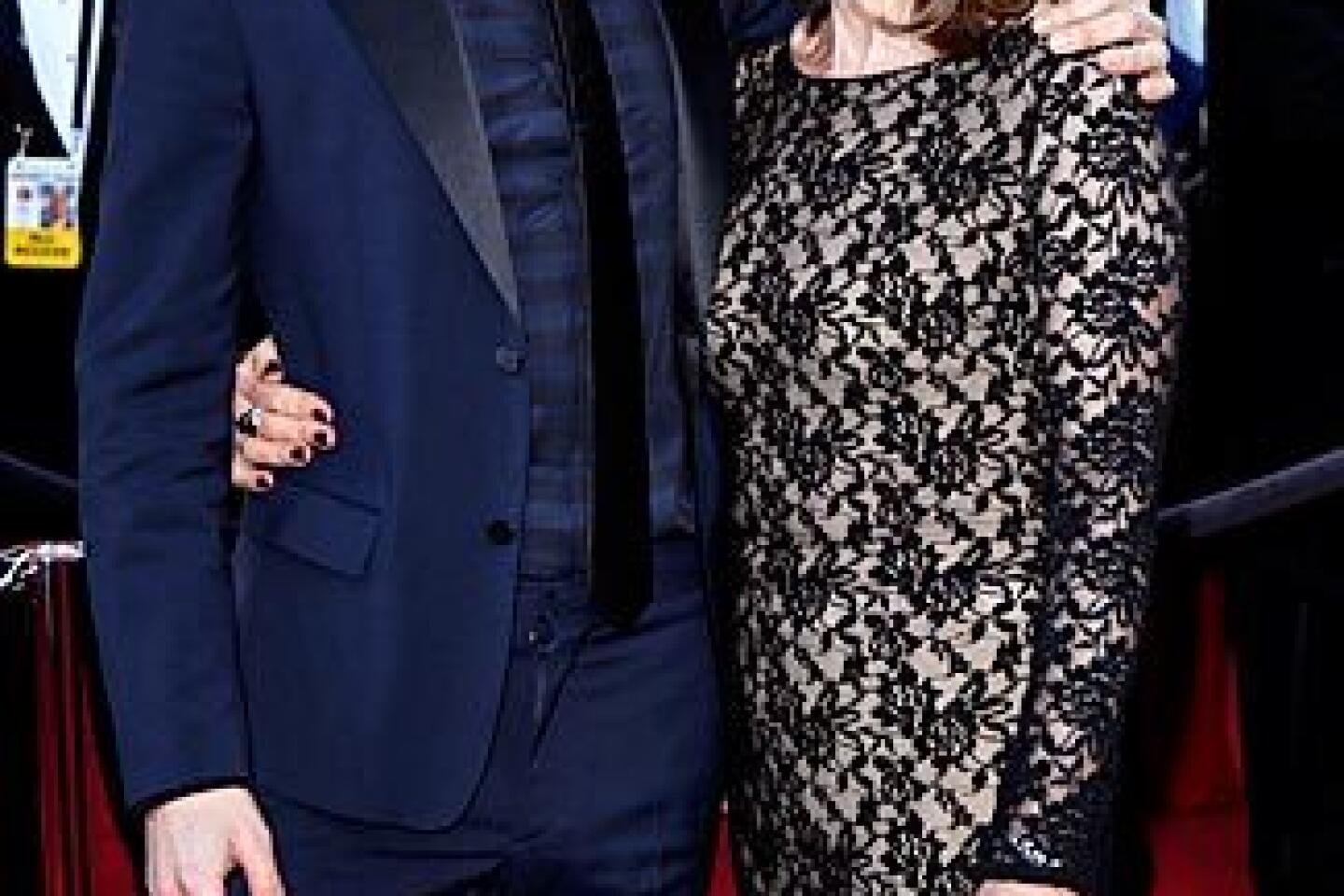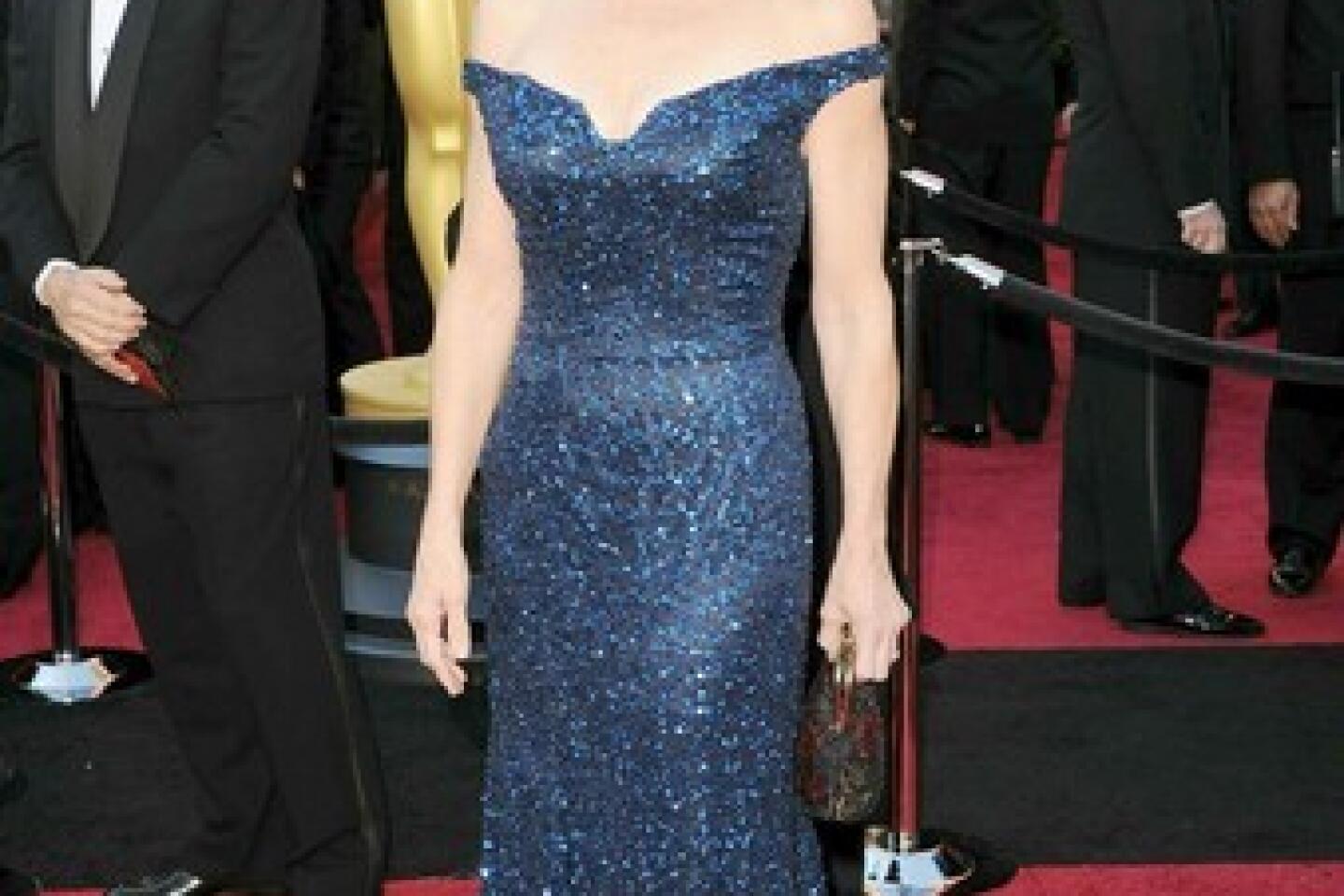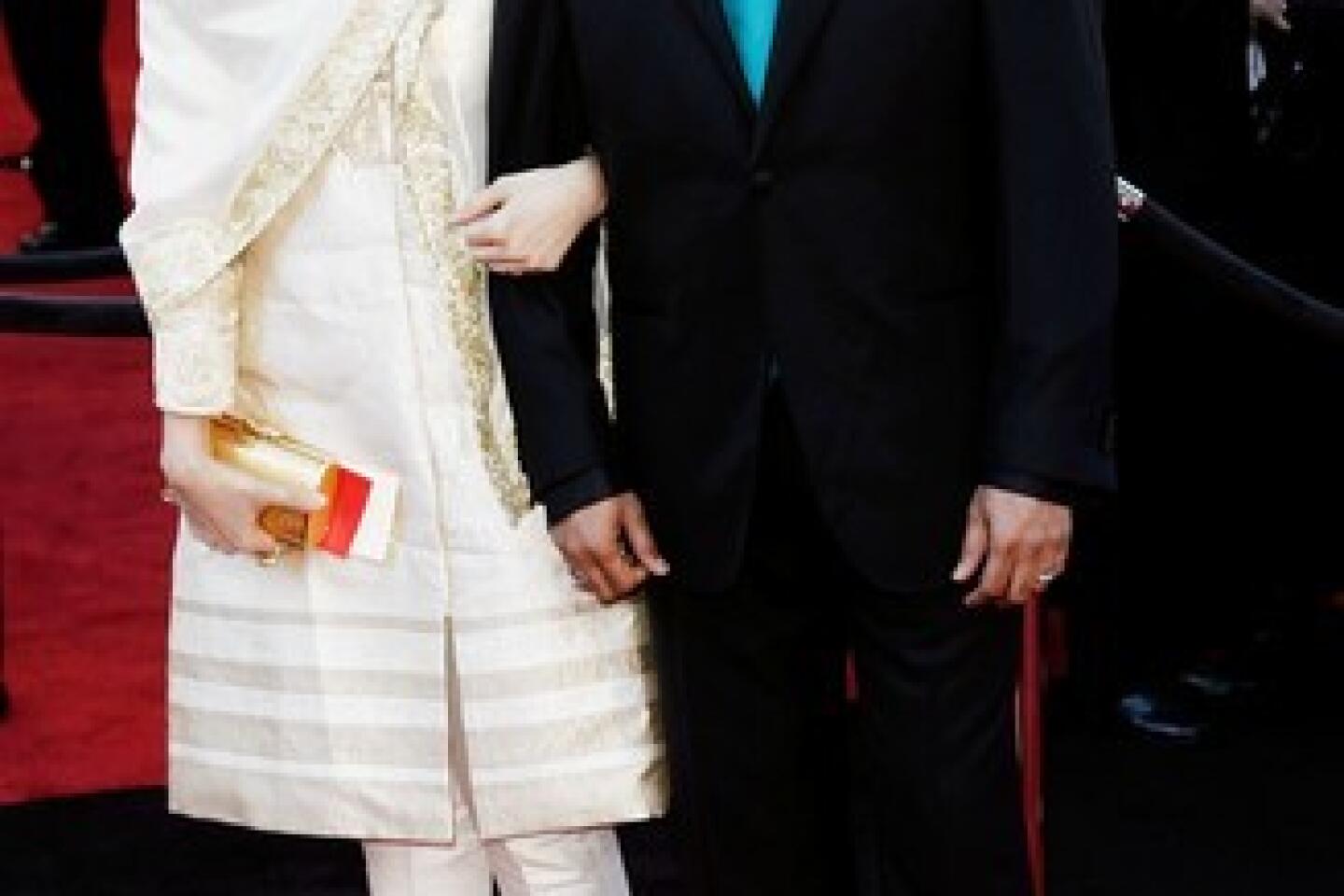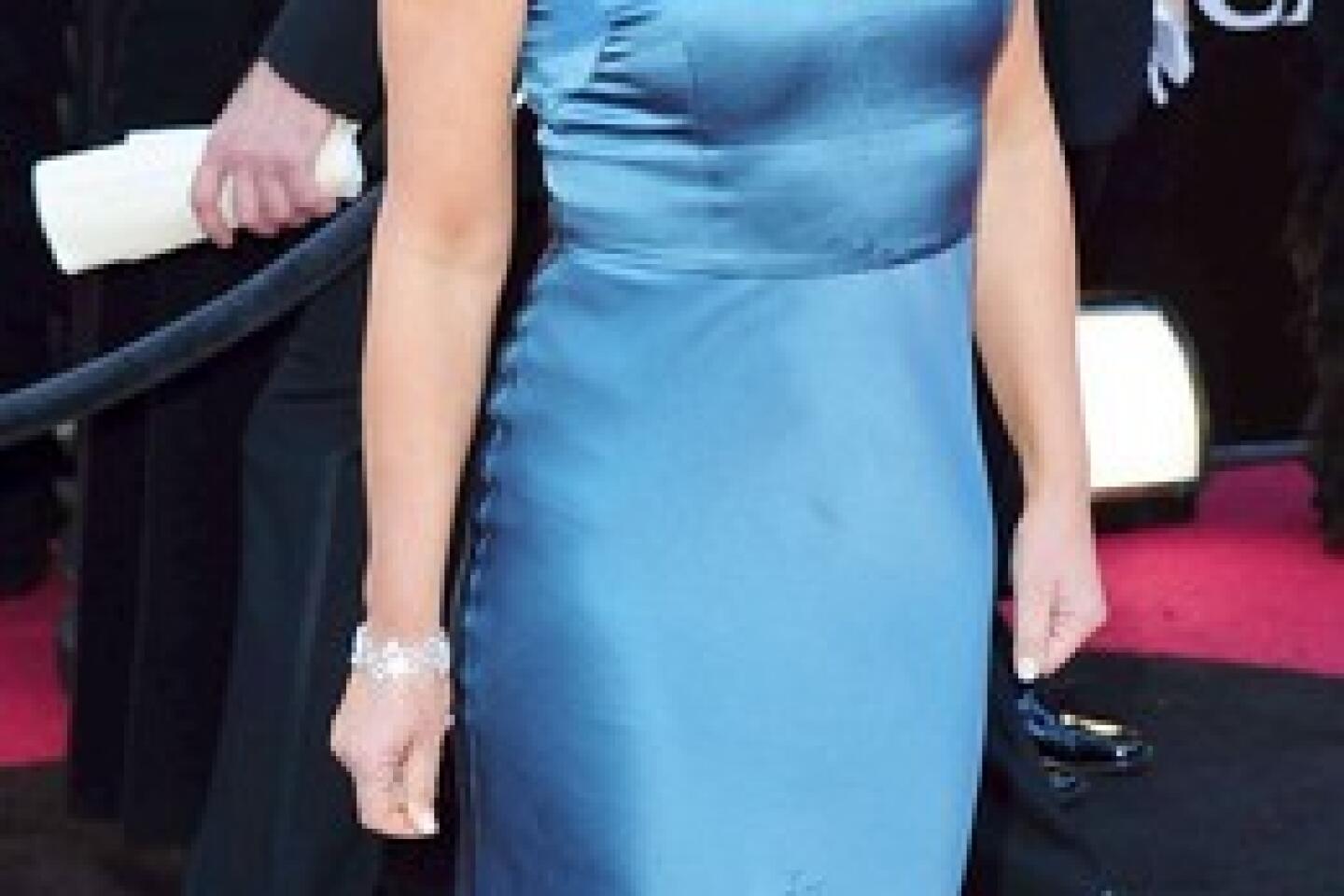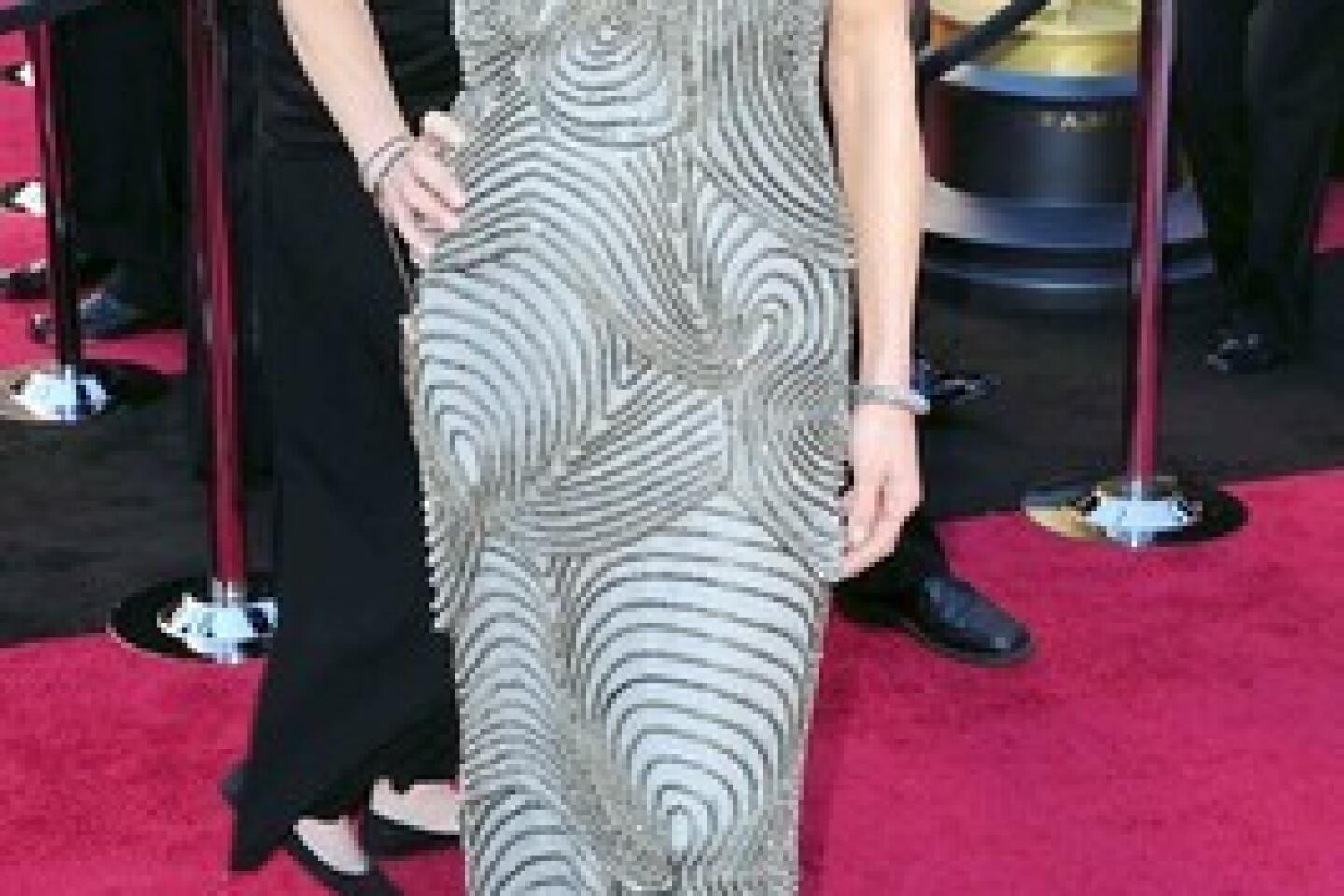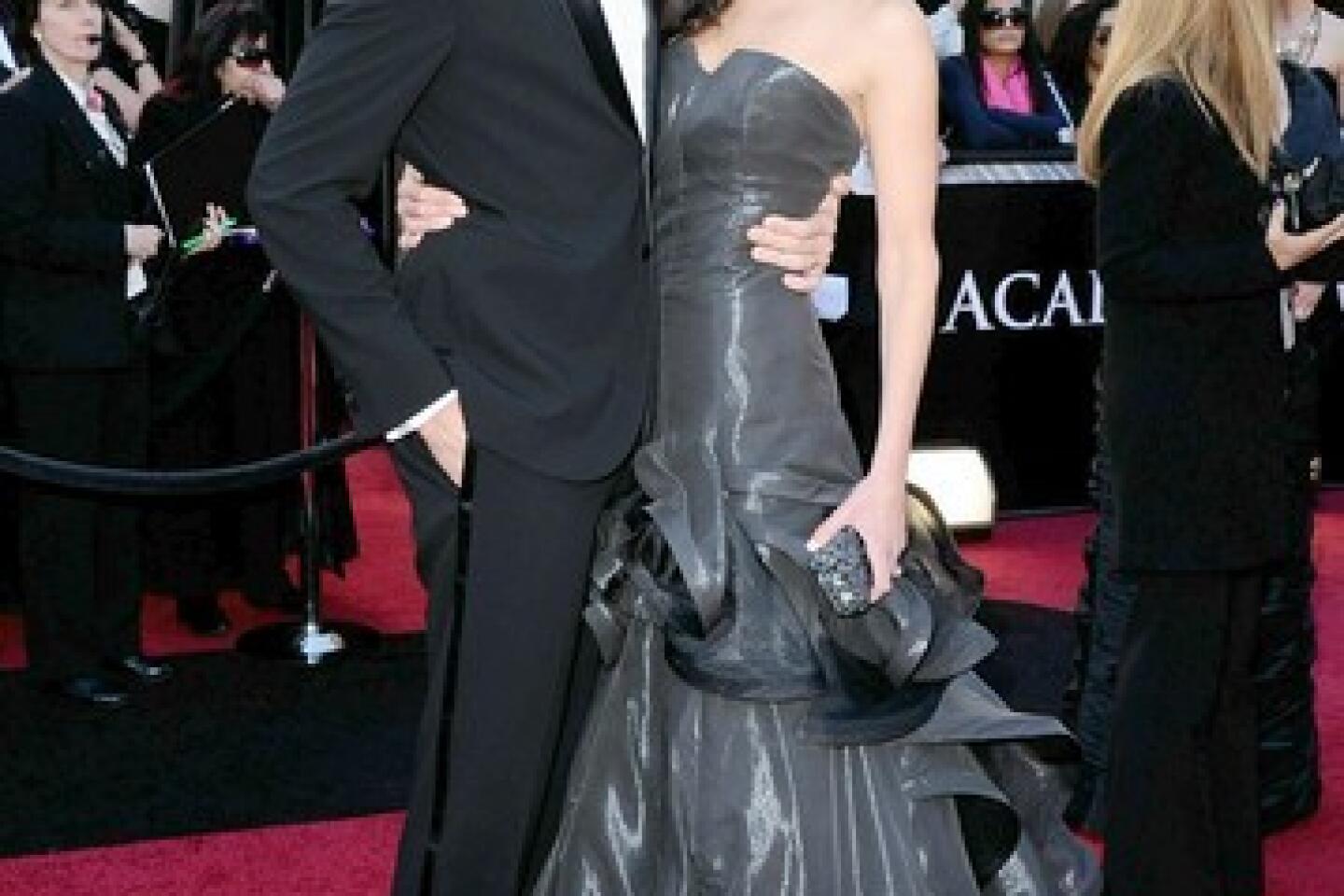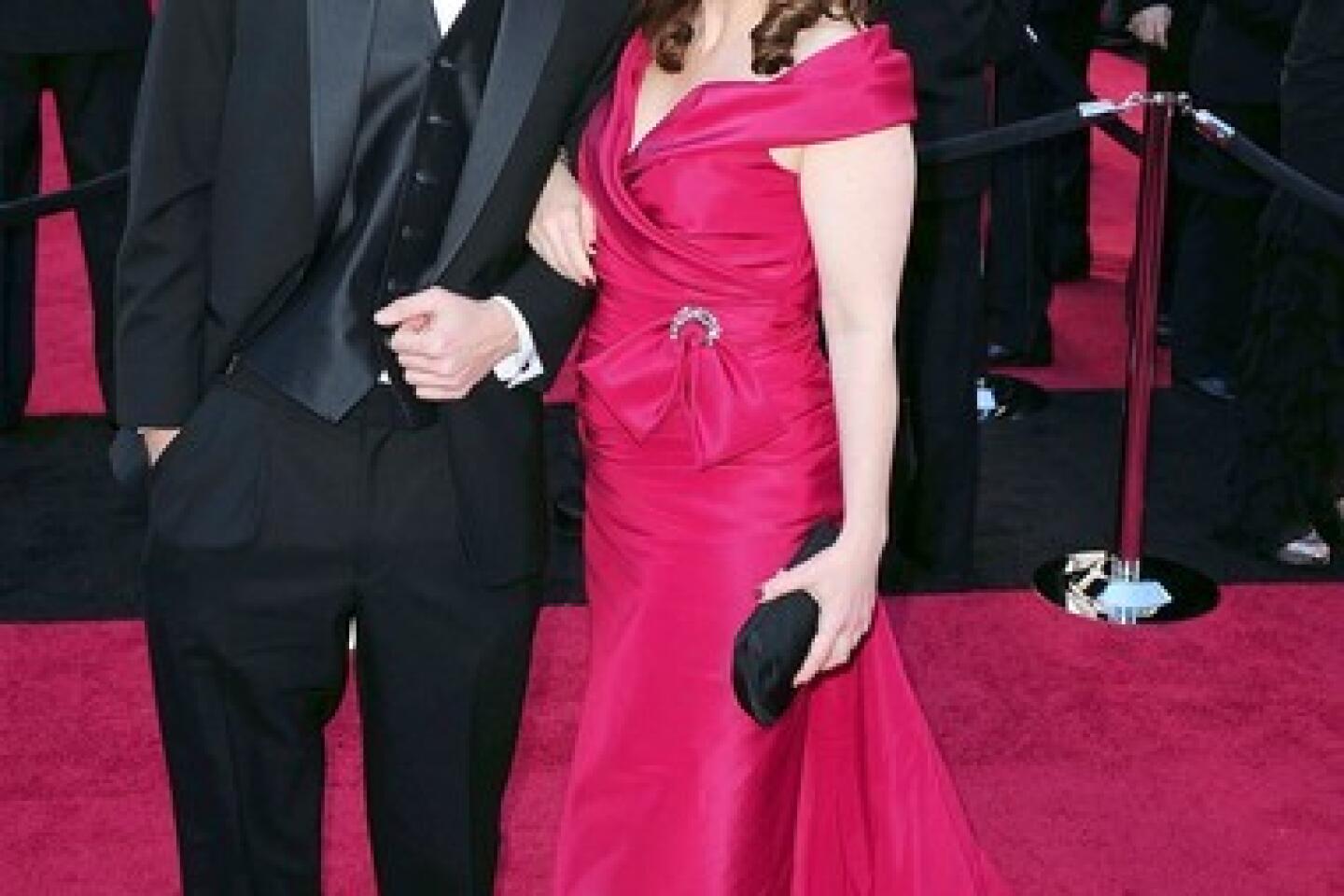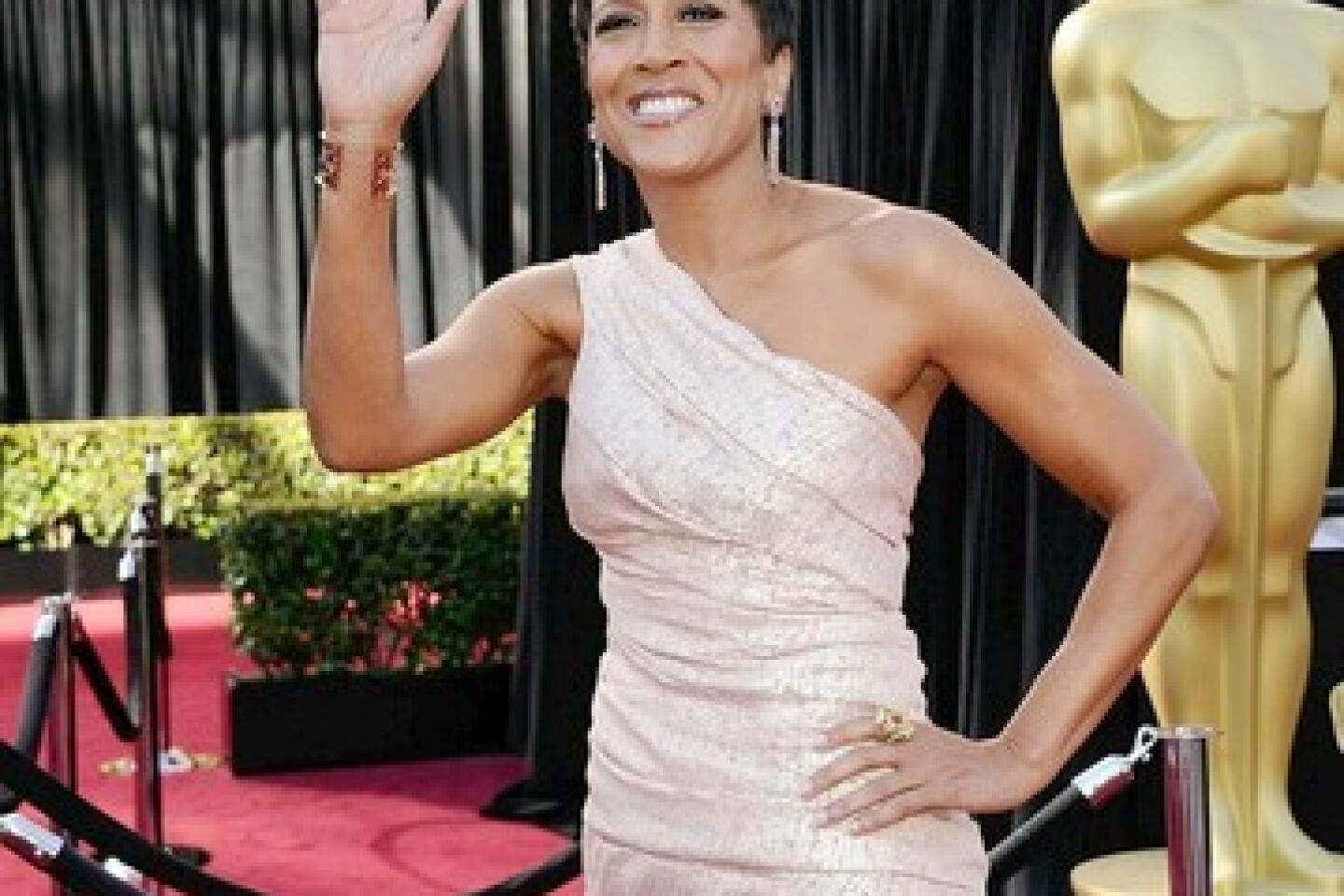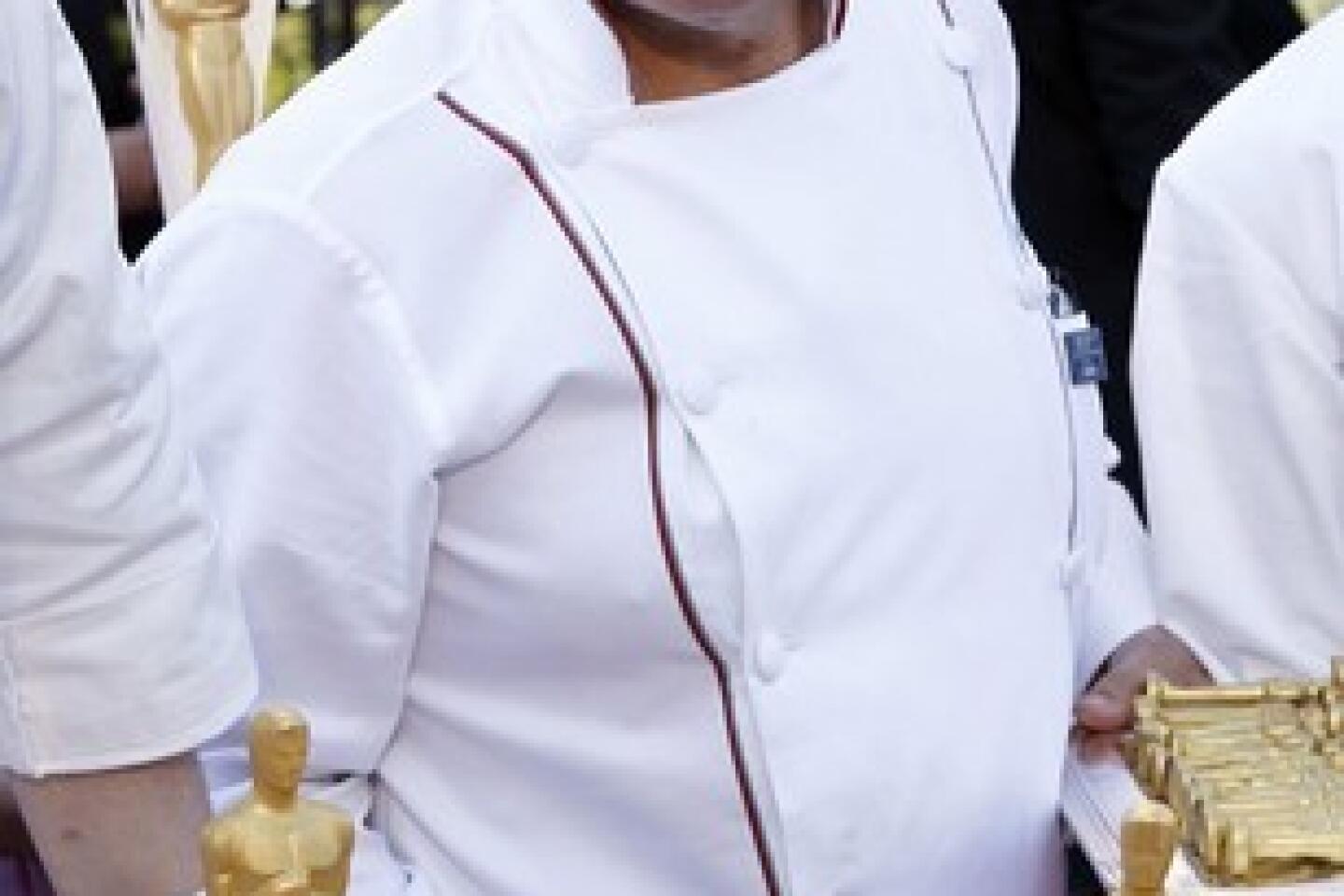‘The King’s Speech’ dethrones ‘The Social Network’
- Share via
Hollywood’s coronation of “The King’s Speech” culminated Sunday night when the story of stuttering King George VI and his speech therapist won four Academy Awards, including best picture. But if the Oscars completed the historical drama’s ascension, the ceremony also signaled the near abdication of former front-runner “The Social Network,” which collected three statuettes.
Though the outcome may not have been a total shock, it represented a dramatic fall for “The Social Network,” whose Oscar momentum felt nearly insurmountable less than two months ago — particularly at an opulent party thrown for the film by Sony Pictures.
As Spago’s chefs carved slices of rare roast beef and the restaurant’s bartenders poured Facebook-logo-inspired blue martinis at that early January bash, some senior Sony executives were predicting that the best picture Oscar was theirs. The film’s cast and top filmmaking team toasted their success with hundreds of well-wishers as they wooed Golden Globe voters and a supportive press corps. The movie was collecting national critical awards as fast it was selling tickets, Oscar prognosticators already had picked it as the ultimate Academy Award winner, and “The Social Network” would soon take the Golden Globe prize for drama film.
But just 16 days after that pricey party, “The Social Network” lost the Producers Guild of America contest to “The King’s Speech.” The following weekend, the British World War II drama scored an even bigger upset at the Directors Guild of America awards, and the next day secured the top prize from the Screen Actors Guild. All of “Social Network’s” momentum suddenly vanished.
“We didn’t steal it,” said “The King’s Speech” screenwriter David Seidler, who won the original screenplay Oscar. “It just happened.”
Oscar races, like political campaigns, are often filled with giant opinion swings, many of which cannot be explained, and there’s no shortage of recent best picture upsets — “Crash” prevailing over the favored “Brokeback Mountain,” or “Saving Private Ryan” losing to underdog “Shakespeare in Love.” Sunday’s ceremony featured any number of perceived close races, including the lead actress duel between Natalie Portman from “Black Swan” and Annette Bening from “The Kids Are All Right.”
“That’s the way it’s always gone with the history of the Oscars,” said Mike De Luca, one of the producers of “The Social Network.” “There’s more of a populist choice and more of a critics’ choice and you don’t know which way the academy will go.” But in the recent years, critical favorites “The Hurt Locker” in 2010, “Slumdog Millionaire” in 2009 and “No Country for Old Men” in 2008 all went on to also win the top Oscar.
When Oscar voters finally marked this year’s ballots, it could very well be that the plurality decided that “The King’s Speech” was simply the better film.
Whatever the reason, rarely has a pacesetter with such a wealth of early critical and awards support faded as fast as “The Social Network.”
“We were going to all these [events] and everyone was like ‘Social Network,’ ‘Social Network,’ ‘Social Network,’ and I kept saying, ‘This is not good — there is going to be a backlash,’ ” said Dana Brunetti, one of the producers of “The Social Network.” “It started at the PGA and went to the DGA and then SAG. It’s because we came out of the gate so hard, so fast and so early.”
Did Sony’s awards team make any strategic blunders? Might “The Social Network’s” marketers have put too much faith in the endorsements of film reviewers and critics’ organizations? Did voters come to see “The Social Network” and its key creators as being as arrogant and entitled as Mark Zuckerberg was portrayed as being in the movie? Are academy voters simply too old to appreciate a movie about the Internet’s top social networking site?
For the most part, Sony and the filmmakers were not volunteering answers about what might have gone wrong, but interviews with several people close to the film and rival awards strategists suggest that even if “The King’s Speech” was destined to win, “The Social Network” could have played its cards more effectively.
“The Social Network” was the critical favorite from the outset, recognized for its topical relevance and topping most of the year’s “best of” lists. Rolling Stone critic Peter Travers called it the movie of the year, saying, “[Director David] Fincher and [screenwriter Aaron] Sorkin triumph by taking it further. Lacing their scathing wit with an aching sadness, they define the dark irony of the past decade.”
But the film is also focused on a male elite from Harvard, and its women characters serve mainly as sexual conquests. Audiences often leave the theater contemplative and eager for discussion but rarely having a rooting interest for any one character. With its contemporary themes and au courant topic, many question whether the film was too young for the Academy of Motion Picture Arts and Sciences, which is primarily made up of industry insiders over 50.
In contrast, “The King’s Speech” though set in the 1930s was positioned by its Oscar campaign as a timeless story about friendship, loyalty and courage. And while characters can’t get more elite than King George VI, his struggle for a voice made him far easier to relate to than anyone in “The Social Network.” It played to rousing receptions at its first screenings at the Telluride and Toronto film festivals, and even Oscar producer Bruce Cohen emerged from an early showing declaring “The King’s Speech” a shoo-in for a best picture nomination.
Despite the overwhelming acclaim that accompanied the film’s release, “The Social Network” faced some difficult obstacles from the very start, chiefly the film’s comparatively early release of Oct. 1 (“The King’s Speech” premiered in a limited number of theaters on Nov. 26). In effect, “The Social Network” was forced to maintain its front-runner status for five months — an eternity in movie time. “The King’s Speech,” for comparison, did not reach its widest point of release until the first weekend of February.
“The Social Network’s” Oscar strategists took advantage of the high praise bestowed by critics nationwide (the film was among the best-reviewed in the year, according to three websites that aggregate reviews), hyping the film as the best picture from the beginning — almost daring Oscar voters not to get on the train.
It didn’t seem to help that Sony Pictures seemed overly eager to win the best picture Oscar — an accolade that had been out of its reach since “The Last Emperor” in 1988. Rival campaigners estimated that Sony spent more than $10 million on its awards push, but the studio said the figure was closer to $7.5 million.
Some of that money was used to send DVD screeners to SAG’s entire membership of close to 100,000 in a bid to win that guild’s top award, but “The Social Network” walked away empty-handed. Actors are the largest voting bloc in the academy, and sources on “The Social Network’s” campaign said they believed they needed the support from the actors union to capture the best picture trophy. (“The King’s Speech” won SAG’s ensemble honor.)
In contrast, the cash-strapped Weinstein Co., the distributor of “The King’s Speech,” didn’t have the money to match Sony, which not only helped position “The King’s Speech” as an underdog but also as more of a discovery for Oscar voters. The Weinstein Co. spent an estimated $6 million on its awards promotions.
It also helped that polarizing studio chief Harvey Weinstein, the man who single-handedly modernized today’s Oscar campaigns, often with borderline tactics (his publicist once ghost-wrote a letter for ailing academy president Robert Wise praising Martin Scorsese’s “Gangs of New York”), largely stayed in the shadows with “The King’s Speech’s” campaign. Weinstein wasn’t at every party, and he didn’t attend all the award shows; for one of the rare times in a career that includes 20 best picture nominations, Weinstein let the movie speak for itself.
That proved to be a stark contrast to “The Social Network” producer Scott Rudin, who was as ubiquitous as Facebook status updates—except for Oscar night when he stayed back in New York to work on his upcoming film and theatrical productions.
The New York-based producer works tirelessly for his films (he produced 2008’s best picture winner “No Country for Old Men”) but due to his famous short temper is as divisive as Weinstein.
At the Beverly Hills premiere of Rudin’s production of “True Grit” at the academy’s headquarters in December, the western’s writers and directors received sustained applause, as did the film’s composer and cinematographer. But in a revealing moment, the theater fell silent when Rudin’s name appeared.
“Social Network” helmer Fincher, who was probably more favored to nab the director prize than “King’s Speech” helmer Tom Hooper, may not have helped the cause. He has never been a fan of Oscar campaigns and, while he was in Sweden for the majority of the campaign shooting “The Girl with the Dragon Tattoo,” during his select award appearances, he often came across as prickly.
Voters also may have been drawn to the against-all-odds story of how “The King’s Speech” got made.
With screenwriter David Seidler having been a childhood stutterer and the film’s two producers, British Iain Canning and Australian Emile Sherman, jumping on board because the film’s friendship reminded them of their own, “The King’s Speech” has been a Cinderella story from the beginning. Tom Hooper was encouraged to direct the film at his mother’s behest, and Geoffrey Rush signed on to the movie only after the screenplay was hand-delivered to his Australian home by a producer’s eager assistant.
“People connected emotionally to the film’s character,” said Canning. “It’s not a movie about royalty. I think we all feel that we could be Lionel Logue or the Duke of York.”
Times staff writers Jessica Gelt, Steven Zeitchik and Patrick Goldstein contributed to this report.
More to Read
The biggest entertainment stories
Get our big stories about Hollywood, film, television, music, arts, culture and more right in your inbox as soon as they publish.
You may occasionally receive promotional content from the Los Angeles Times.
